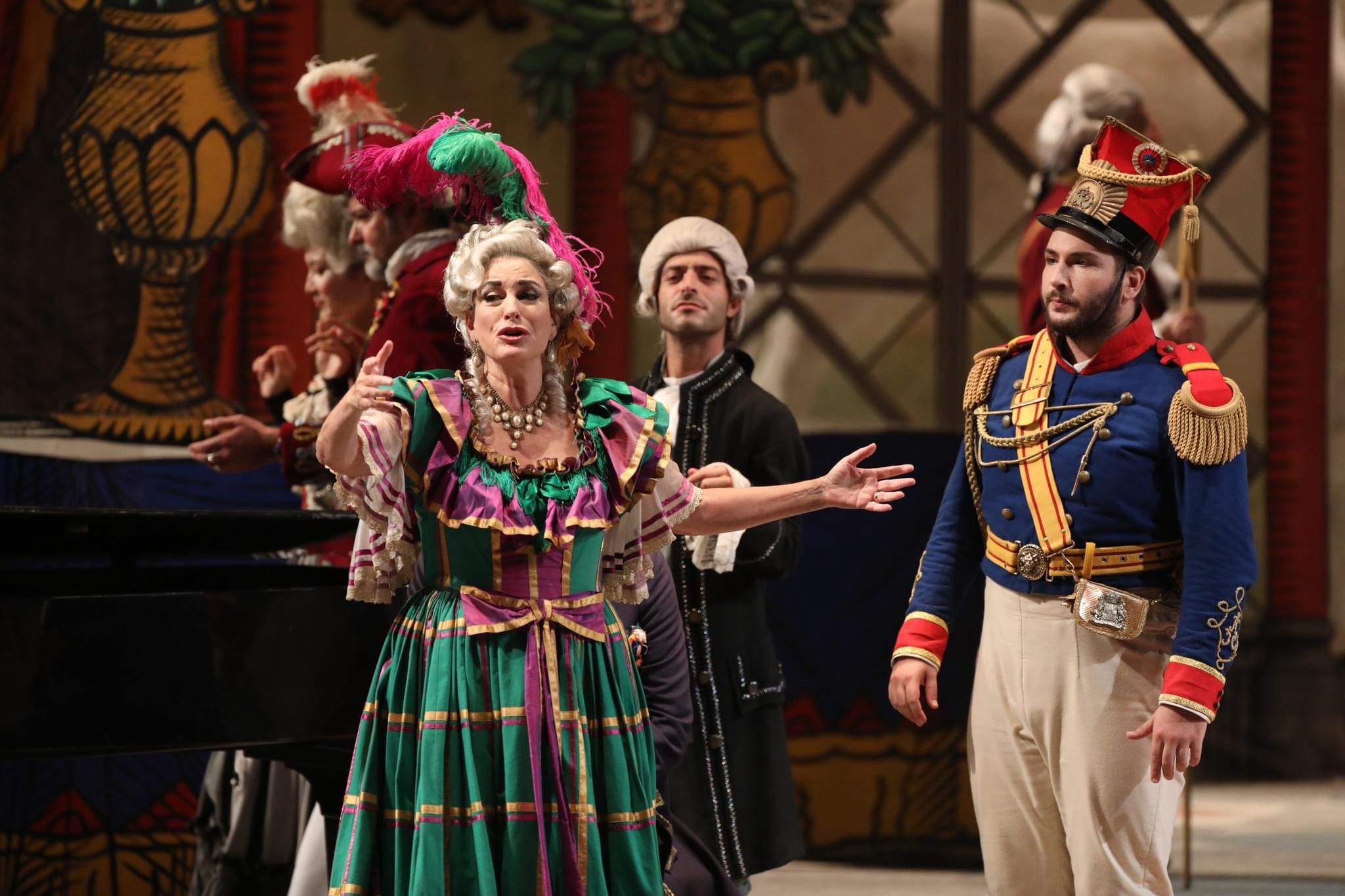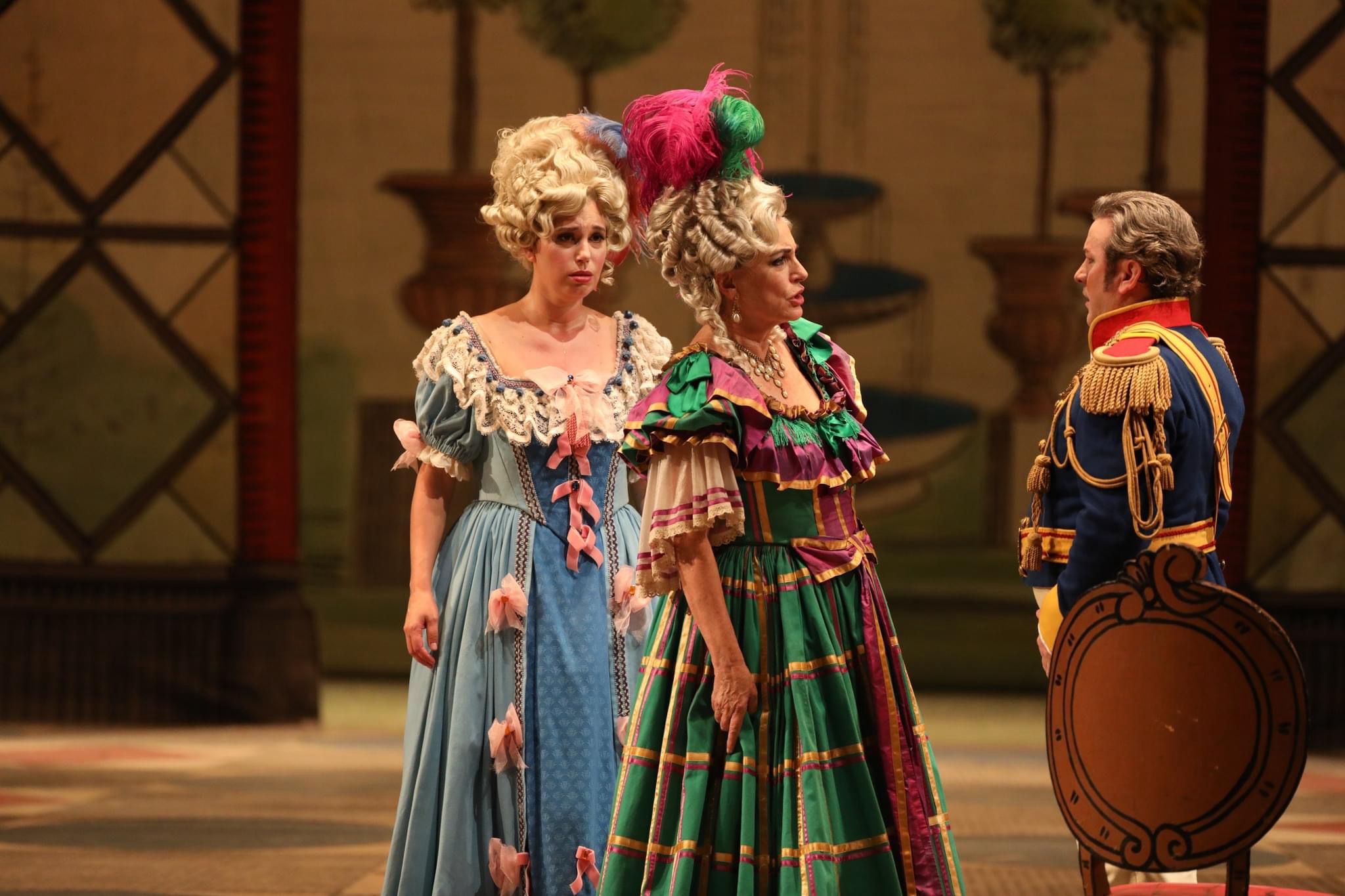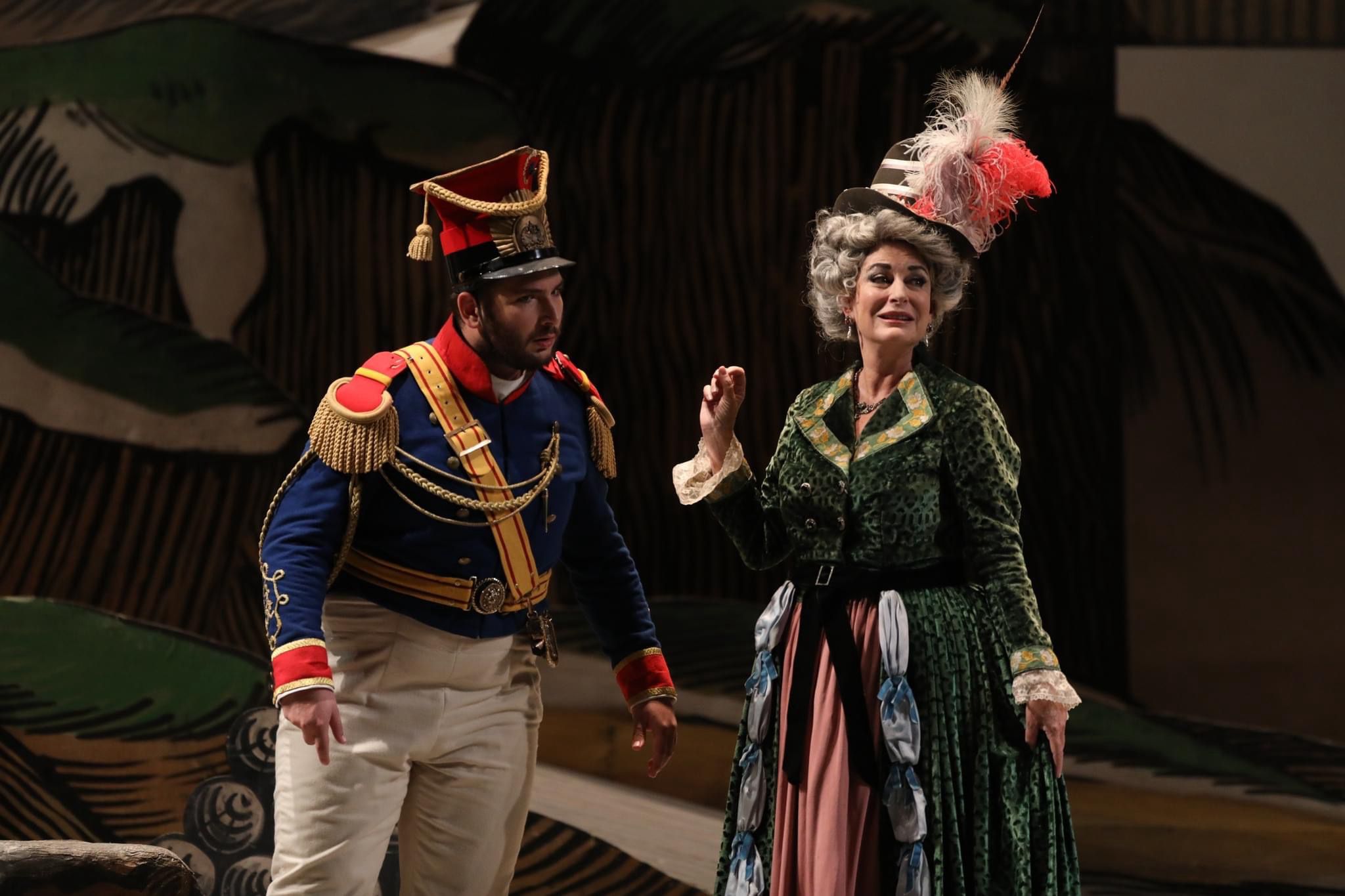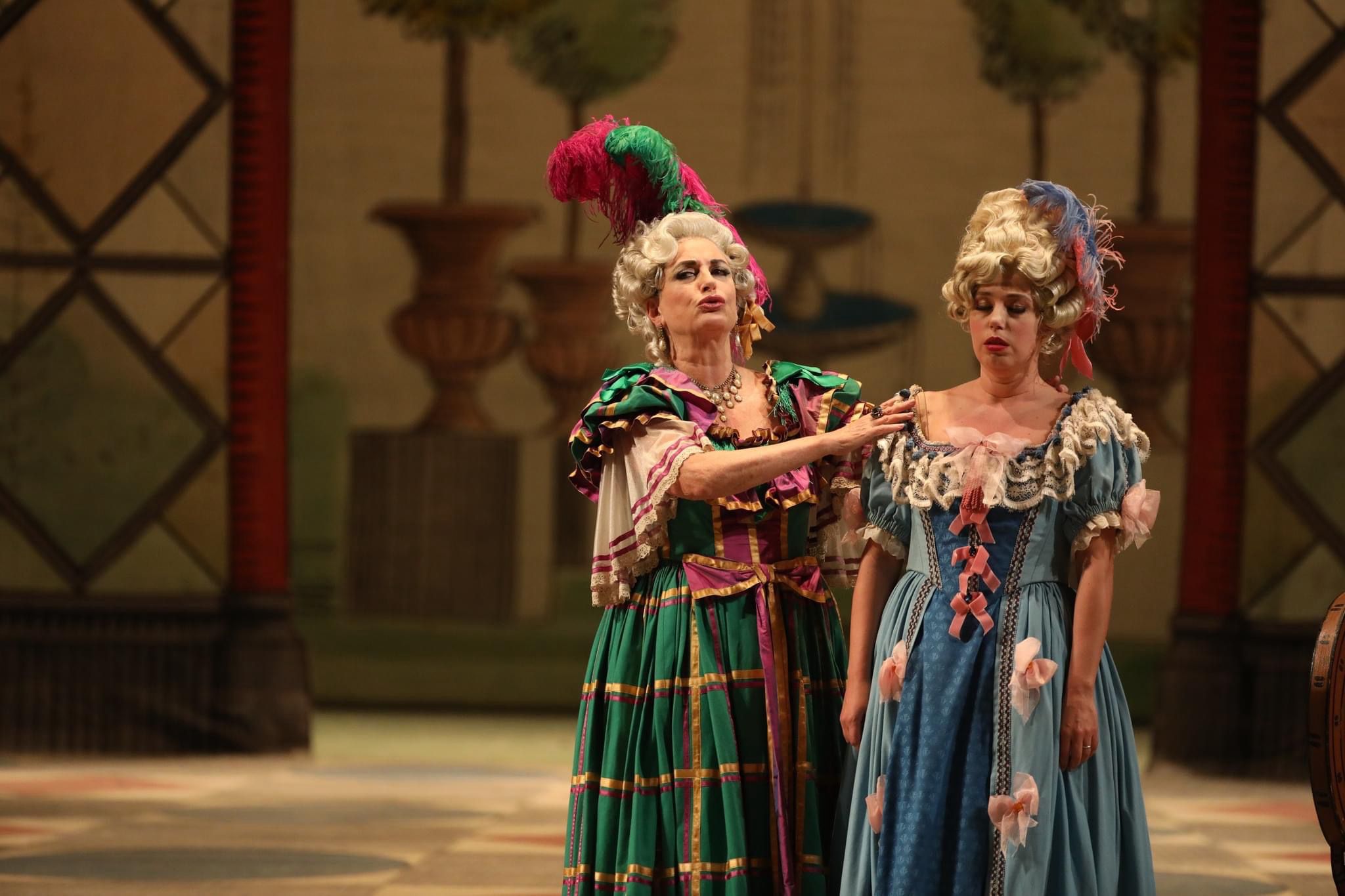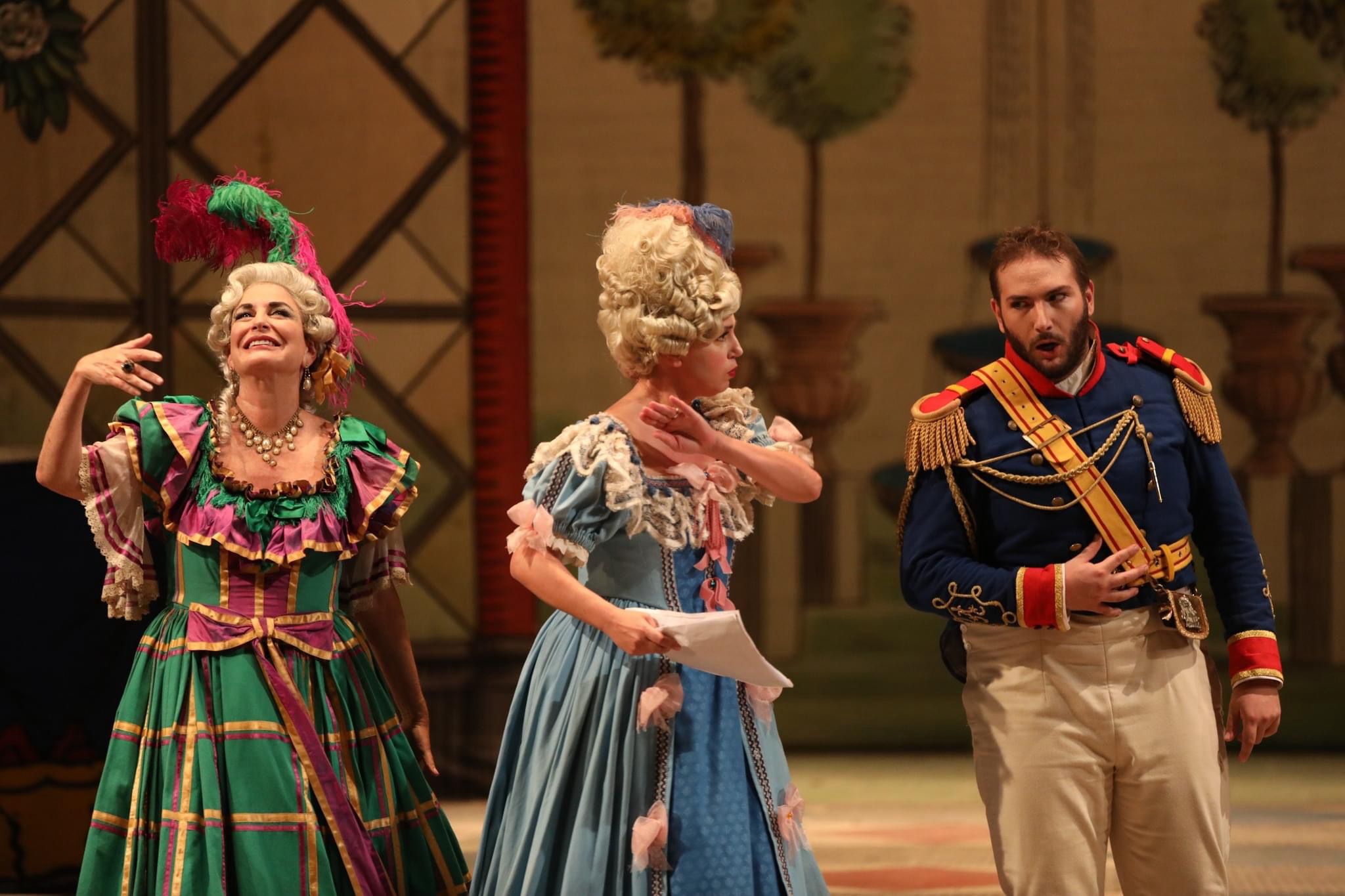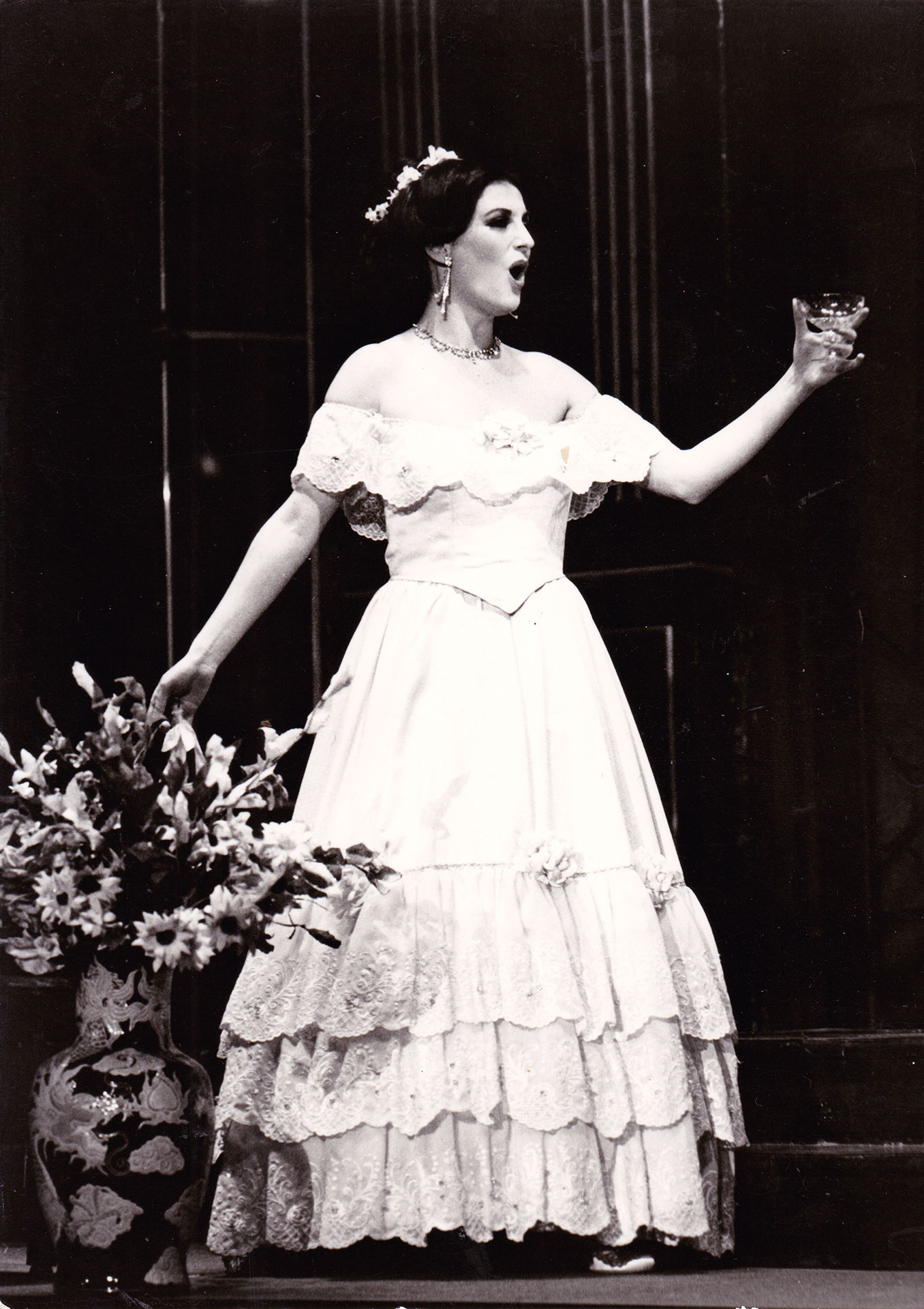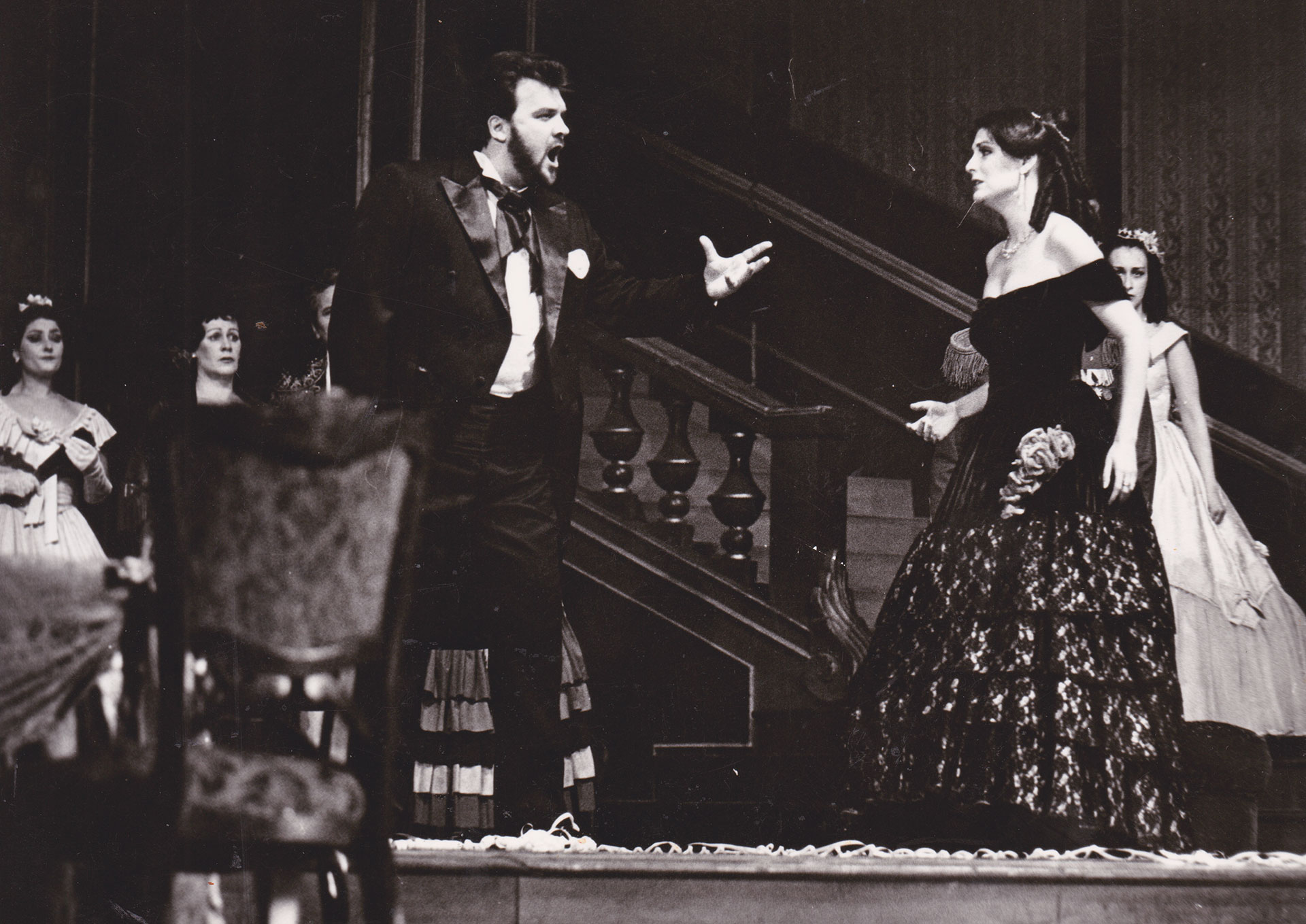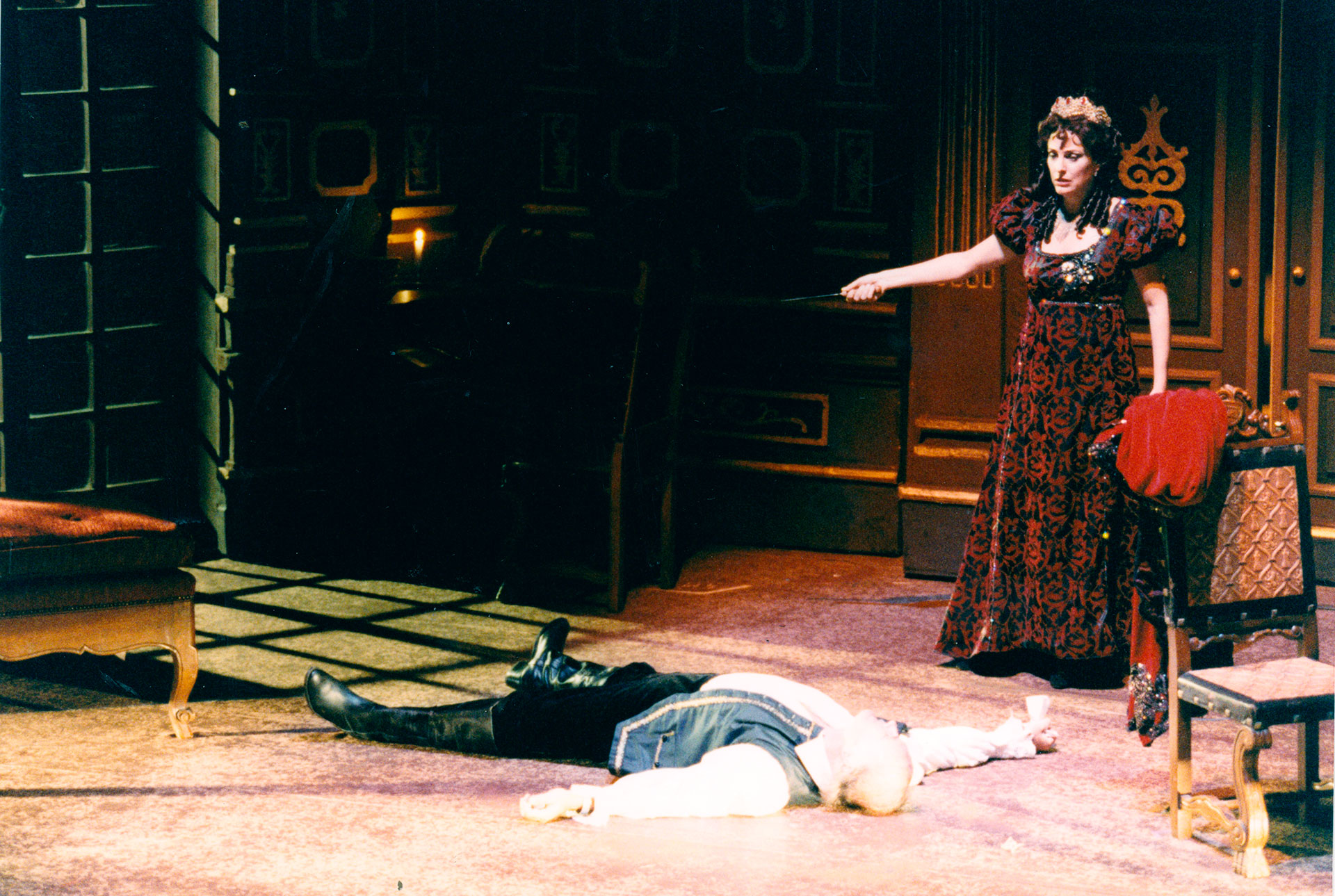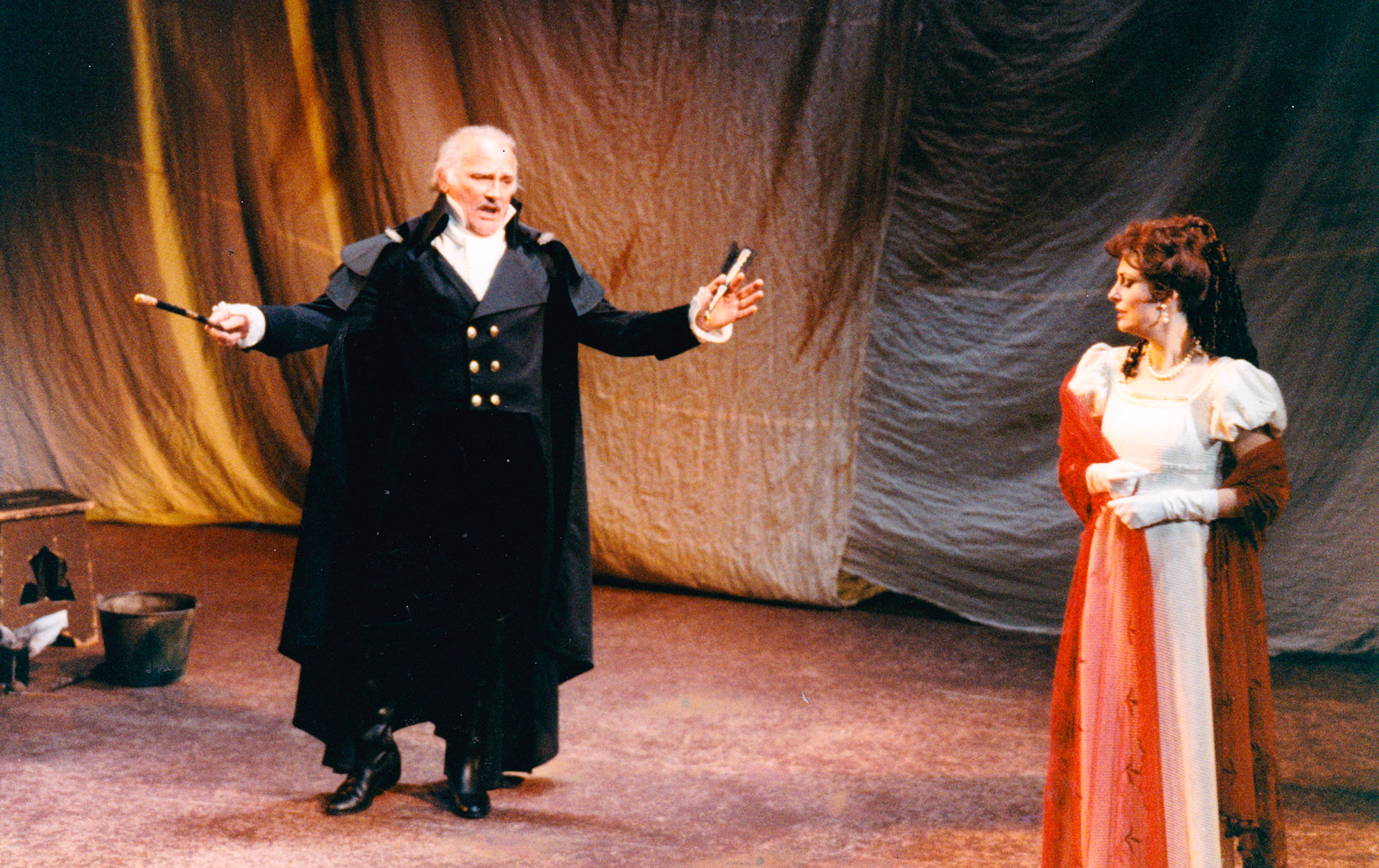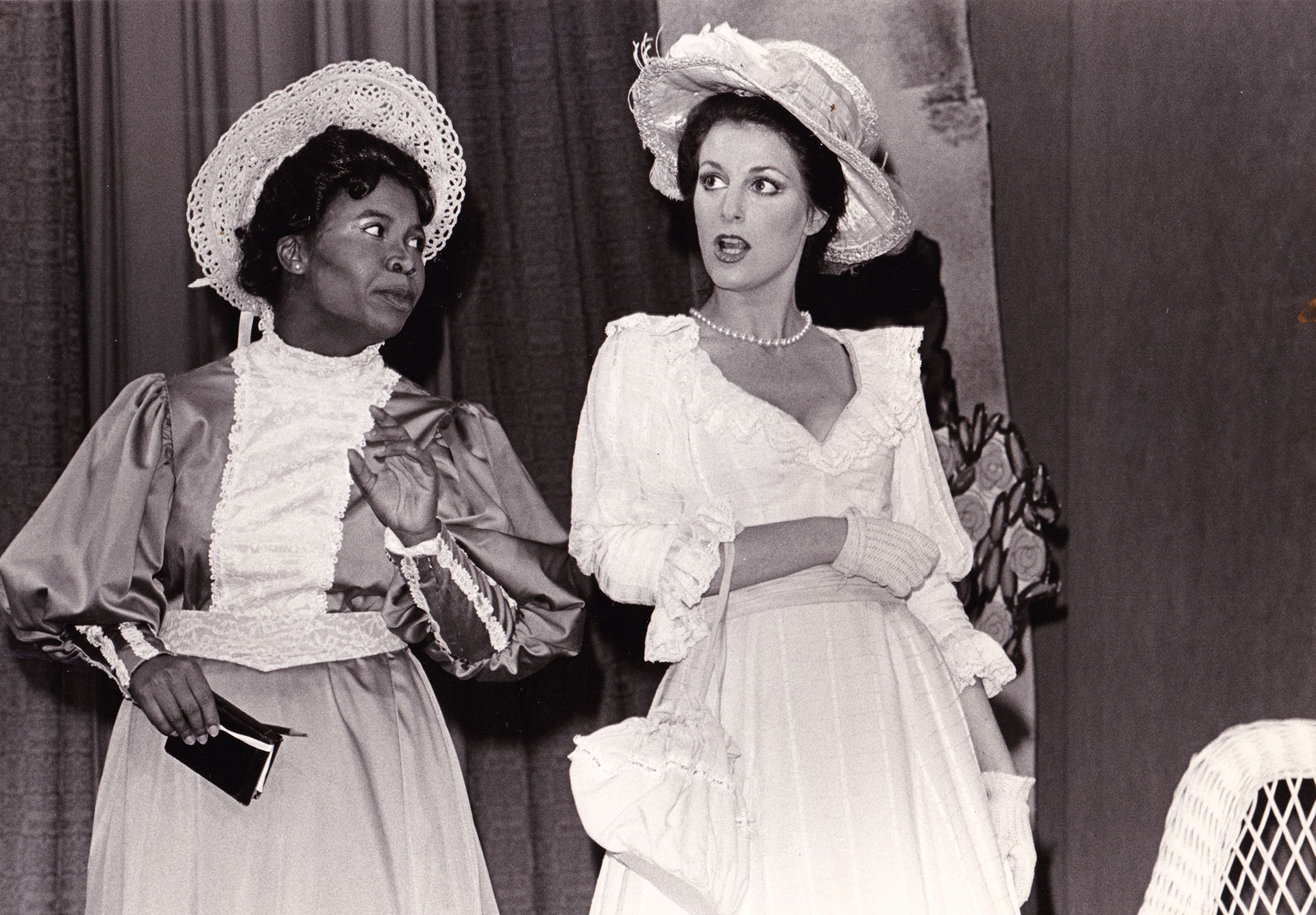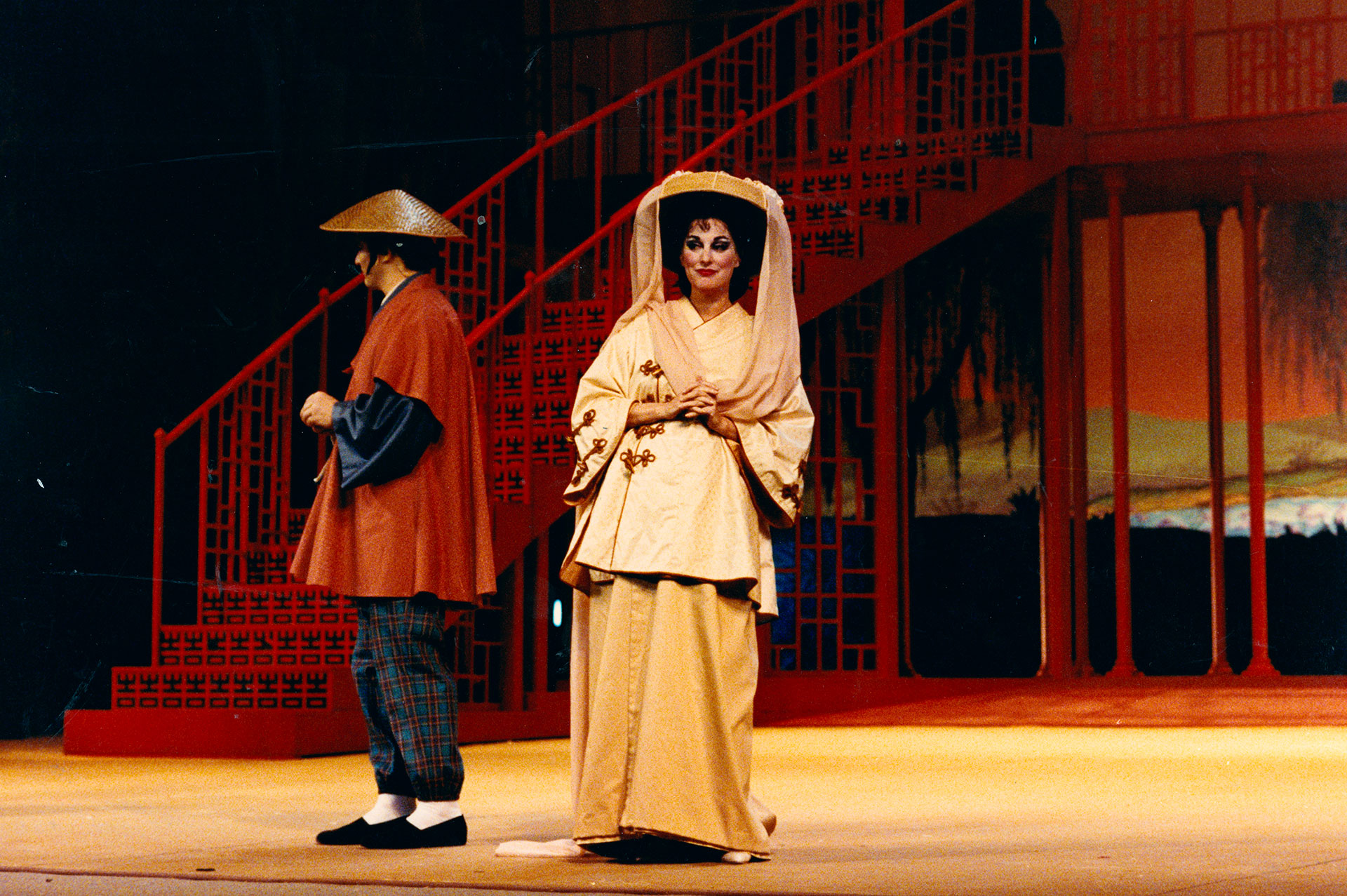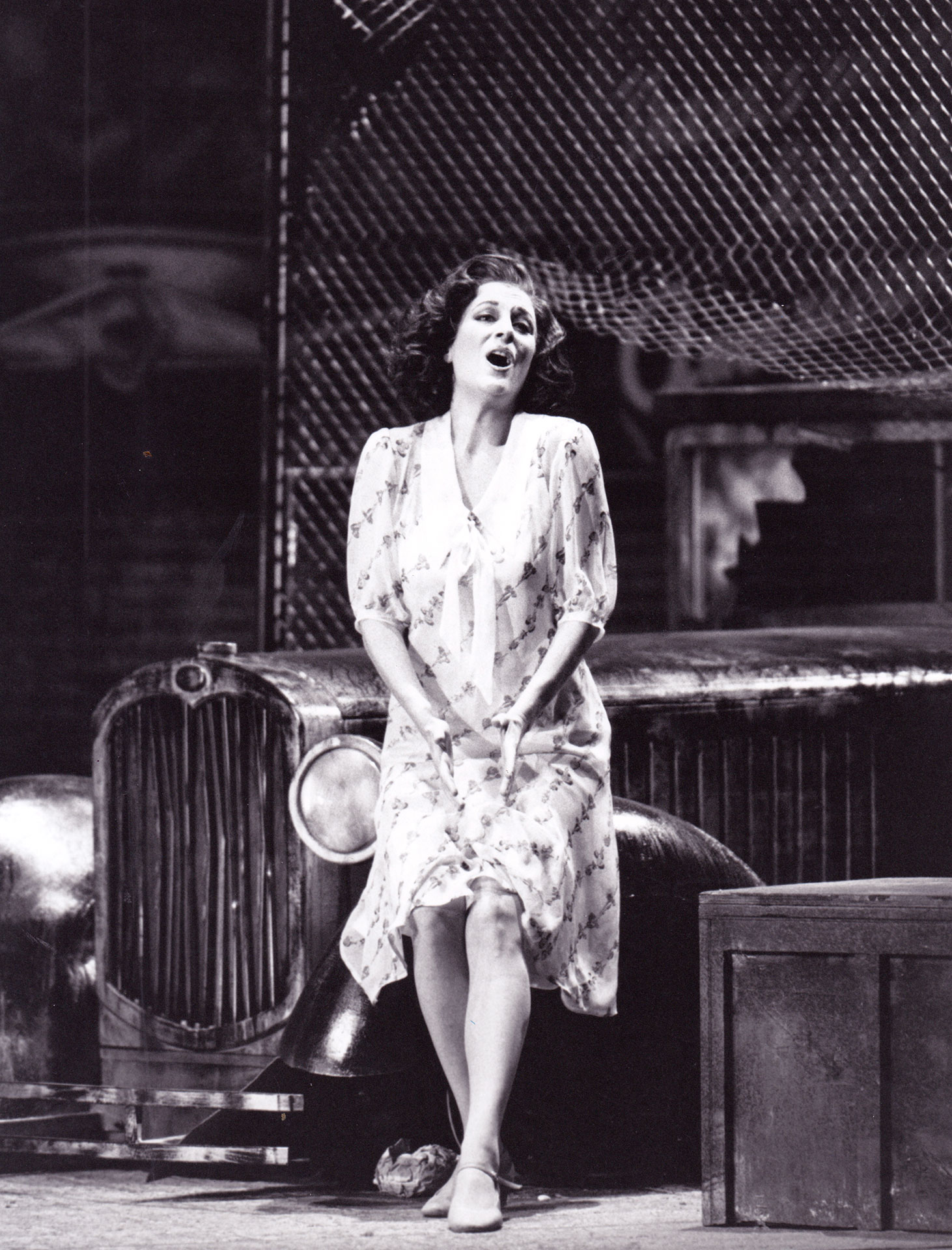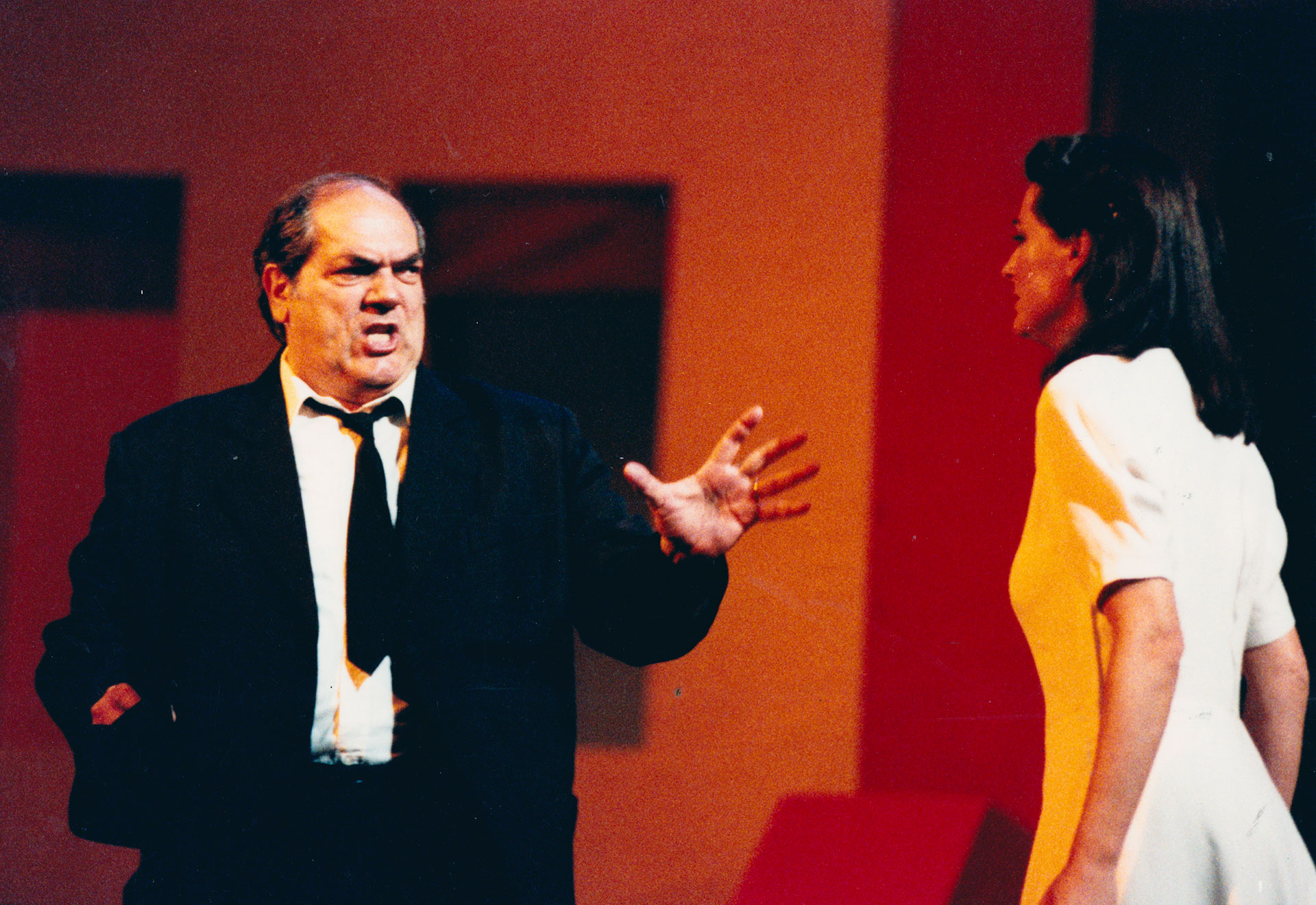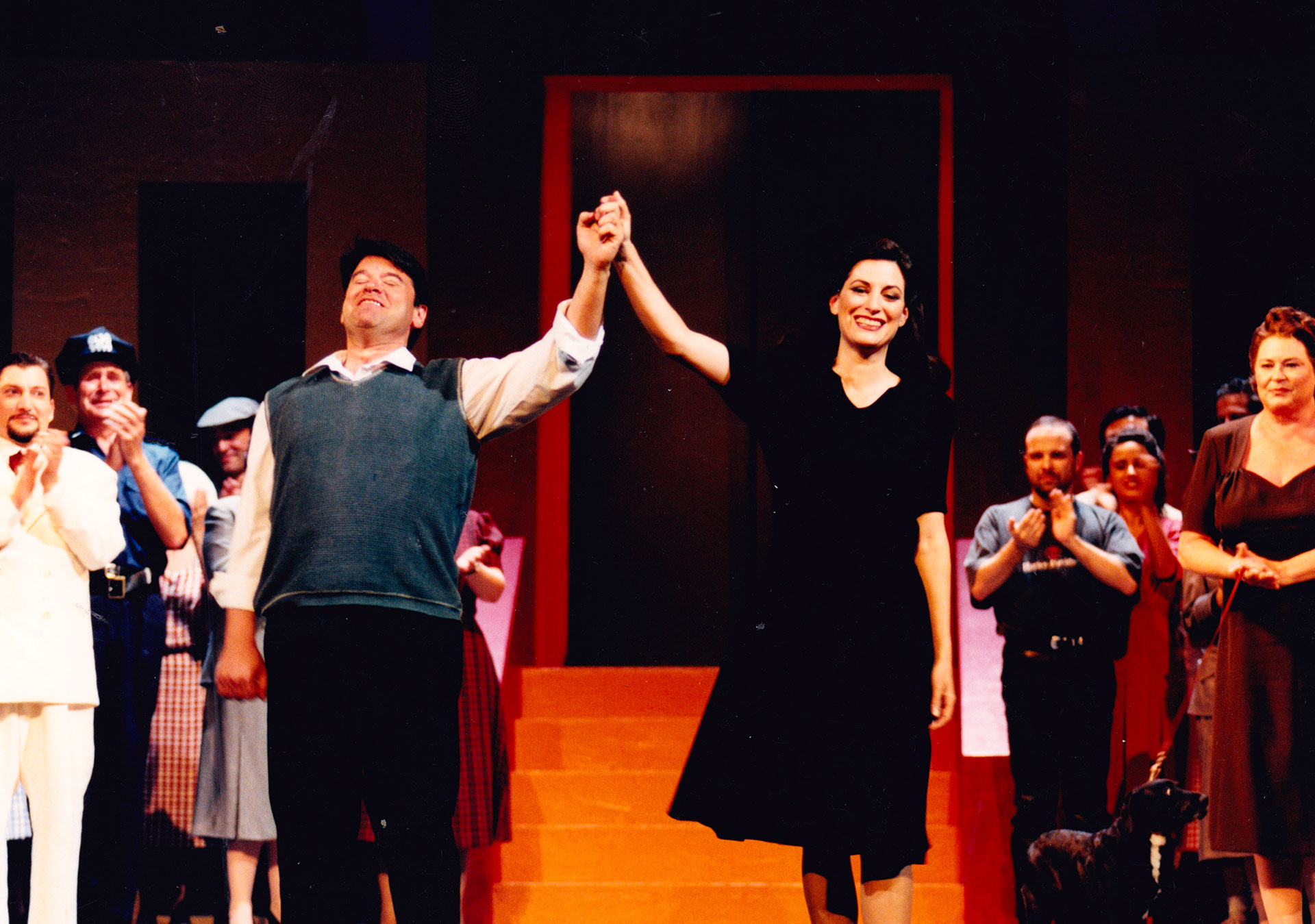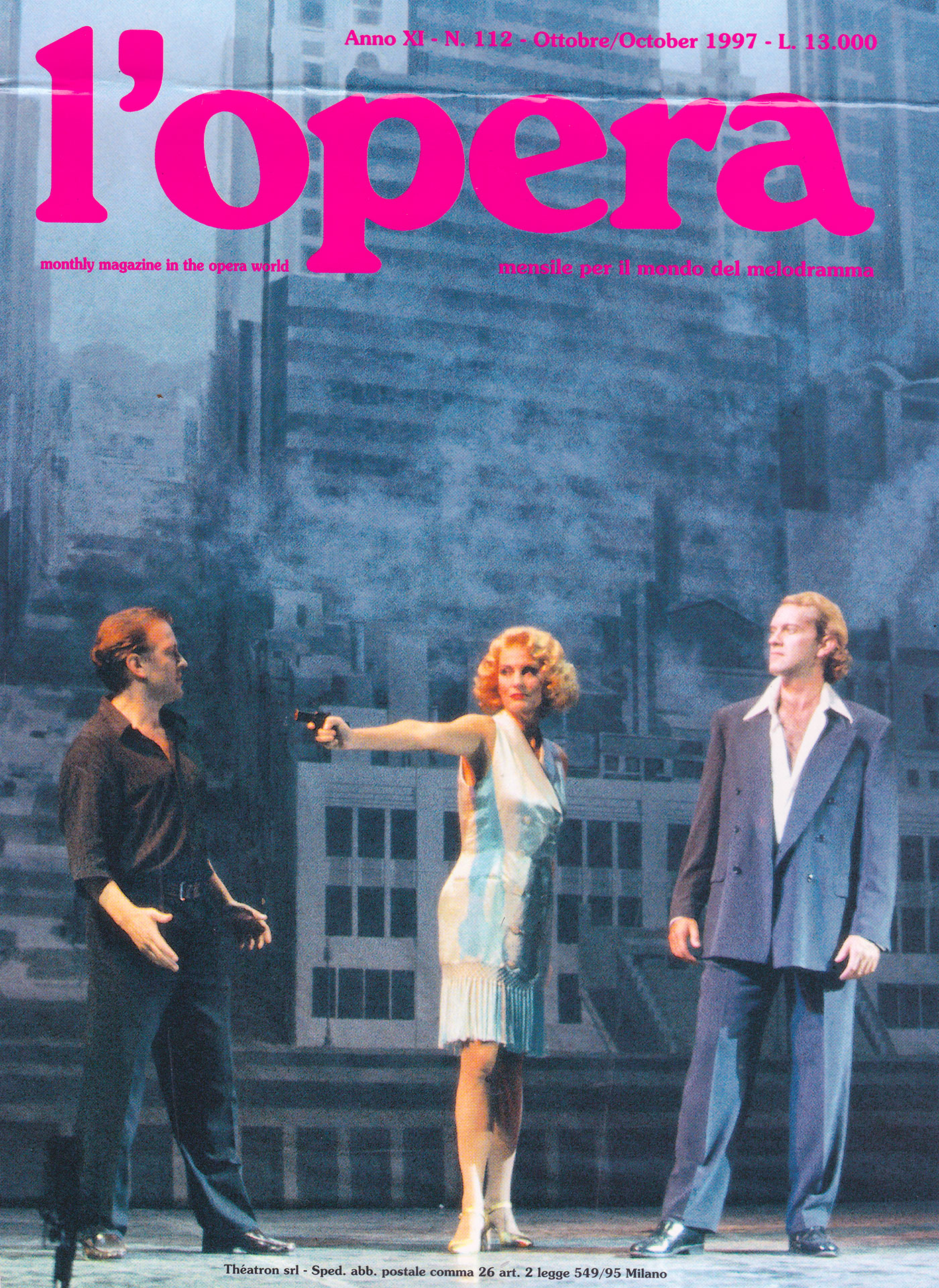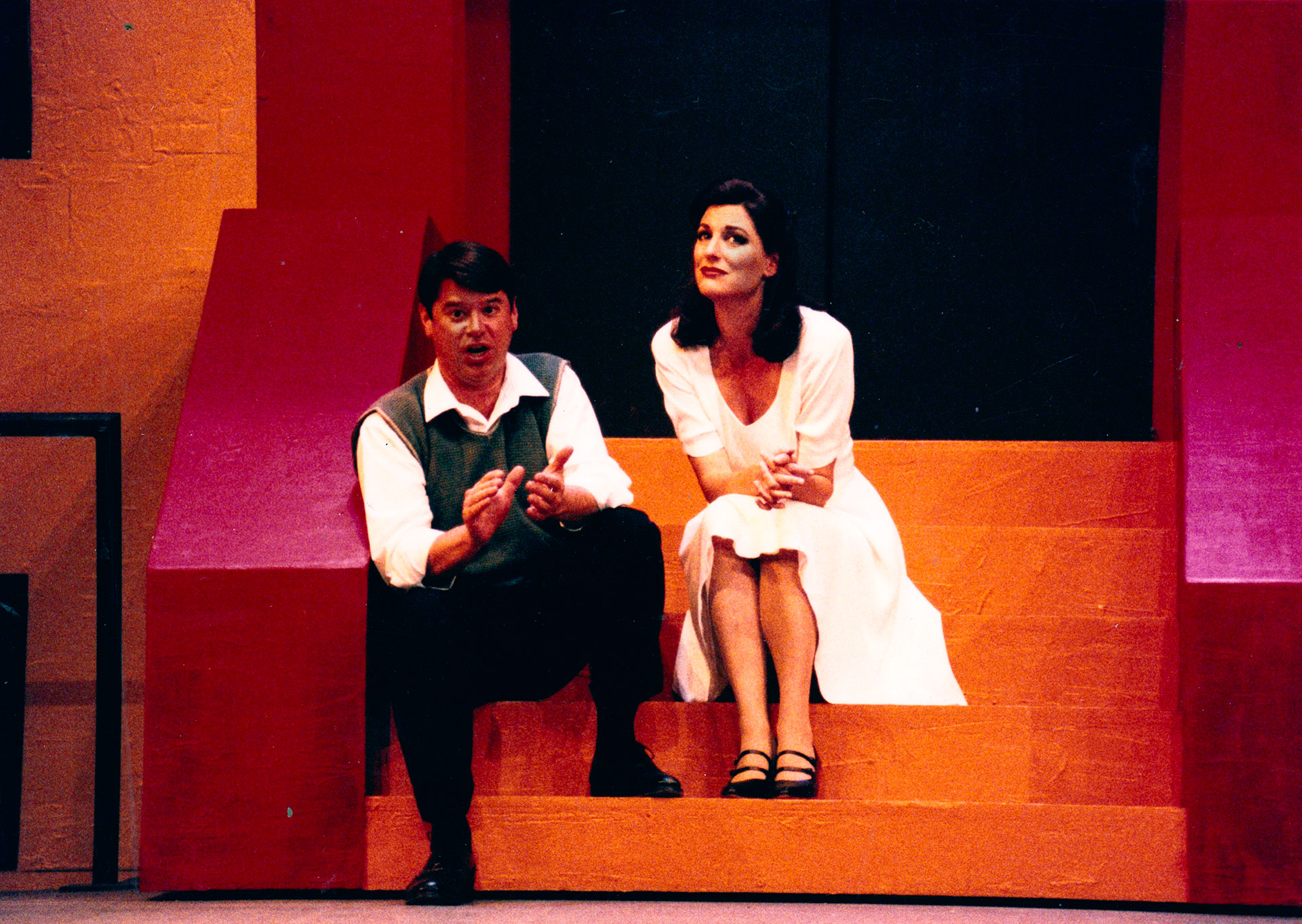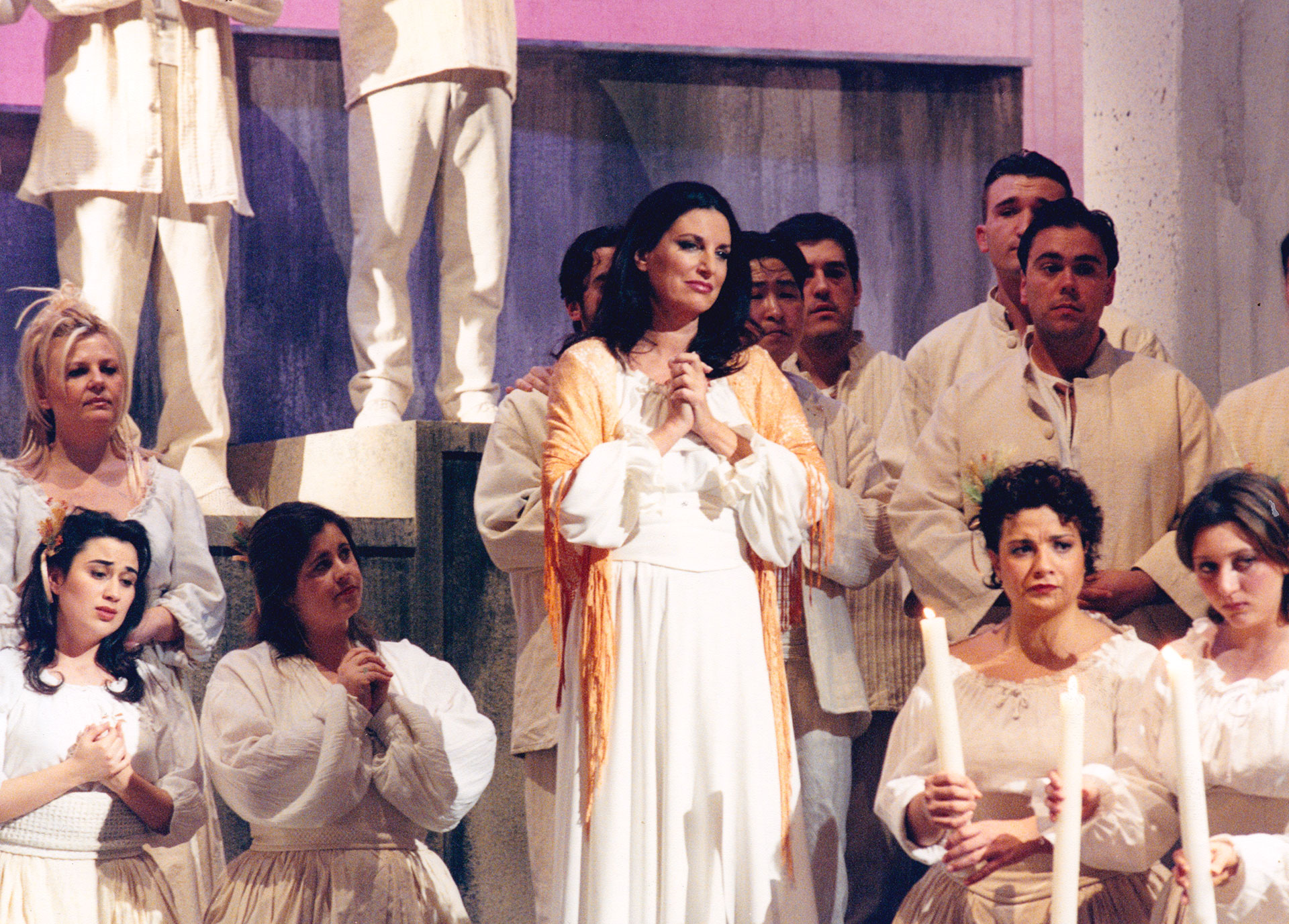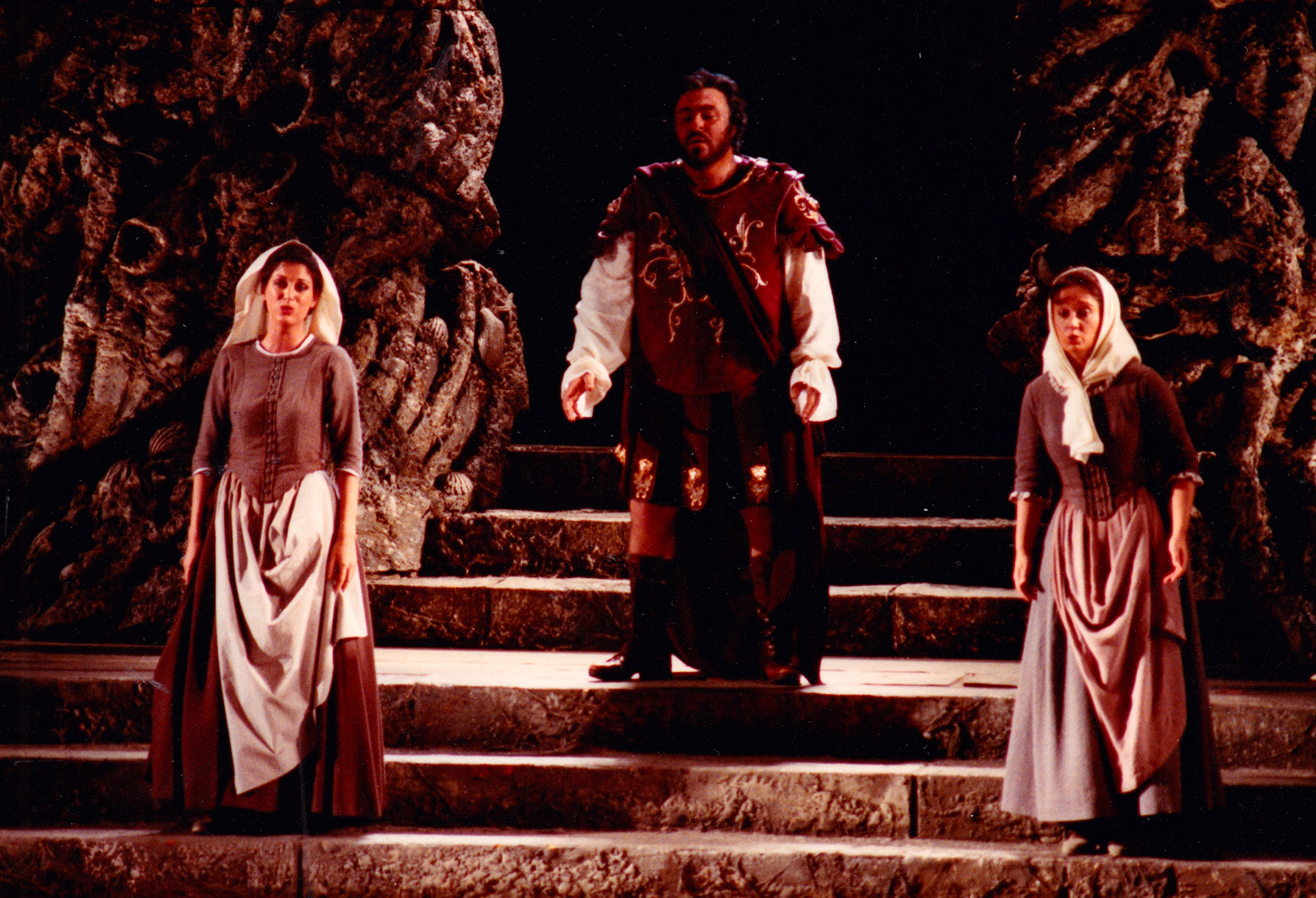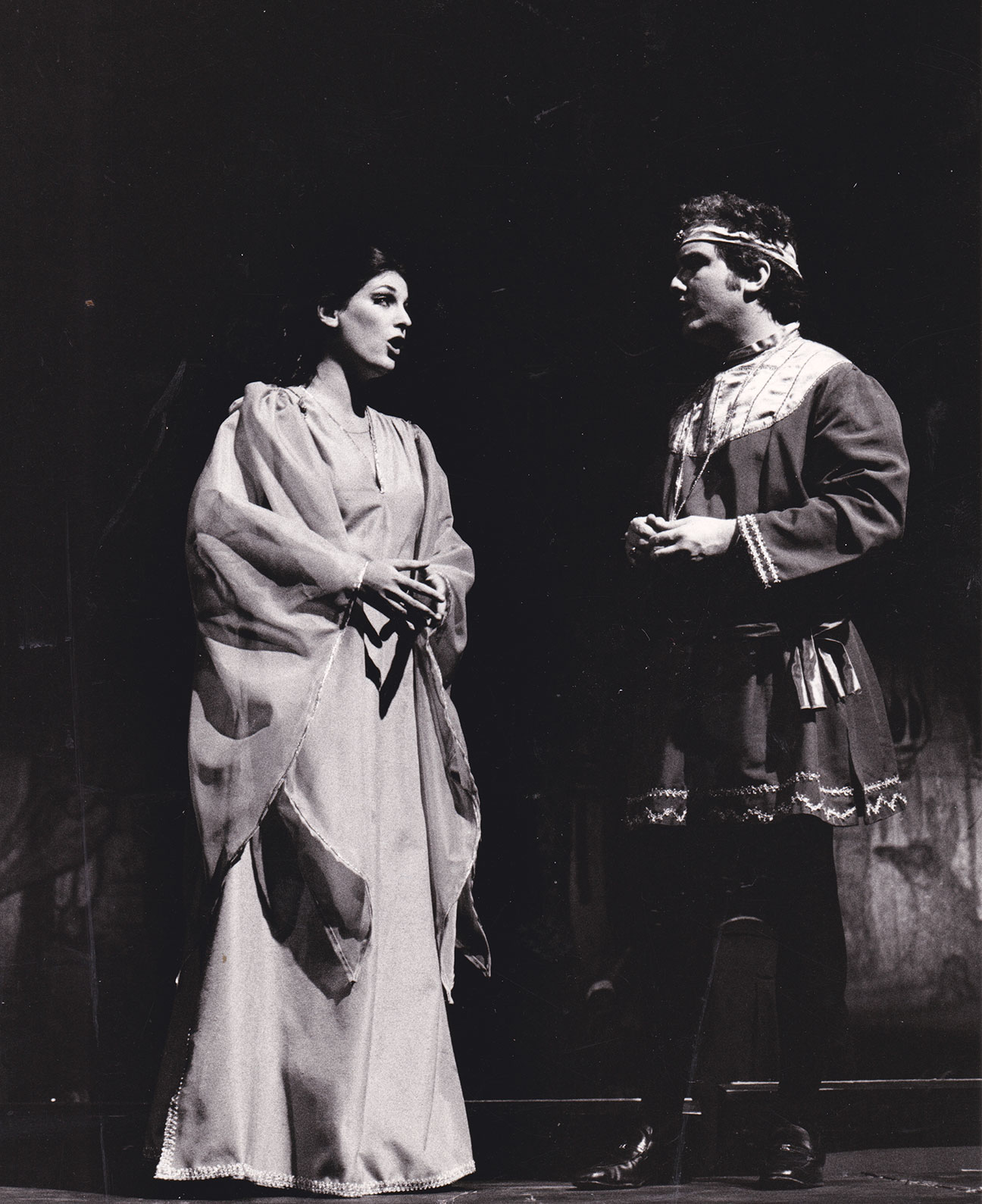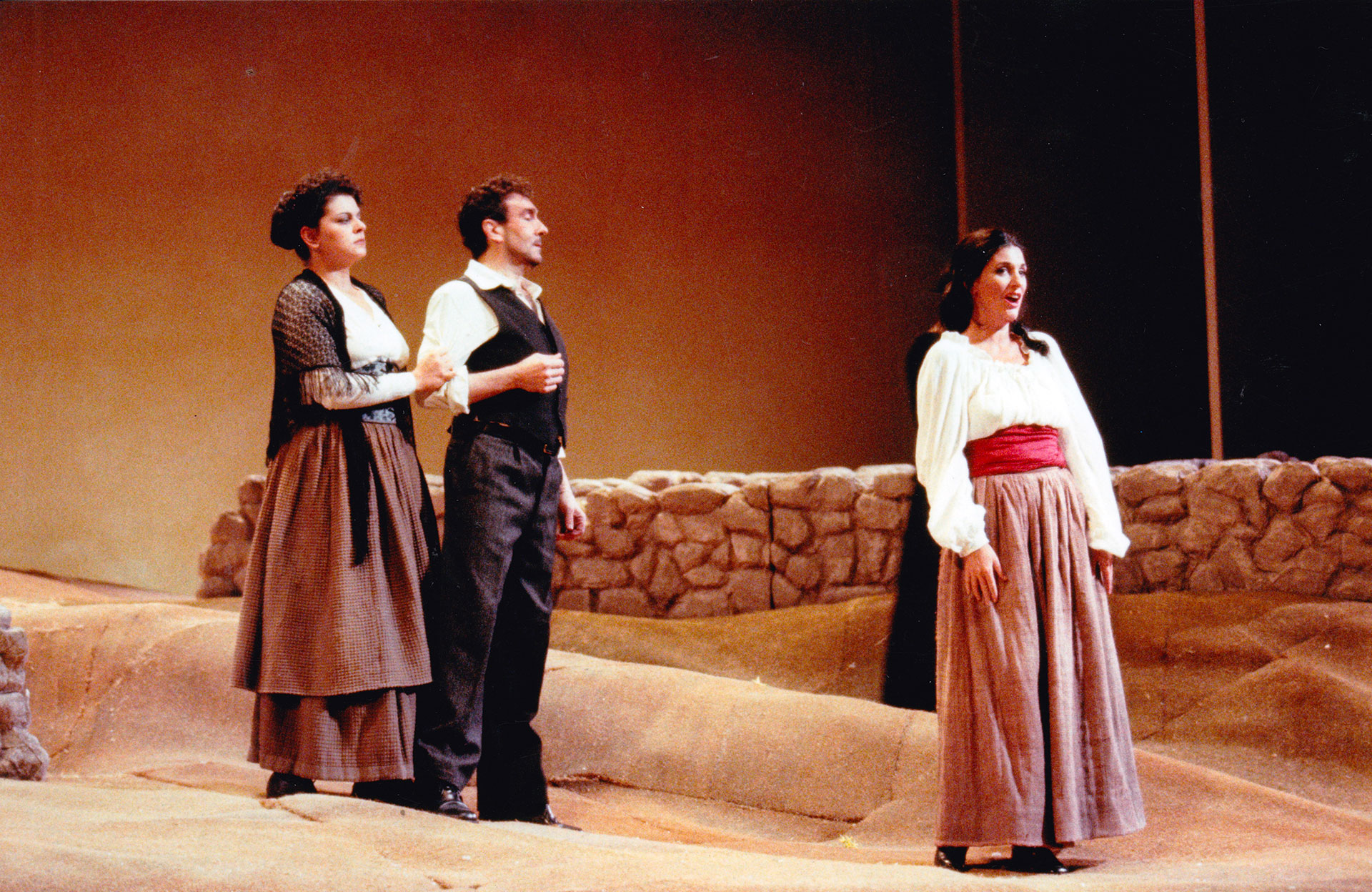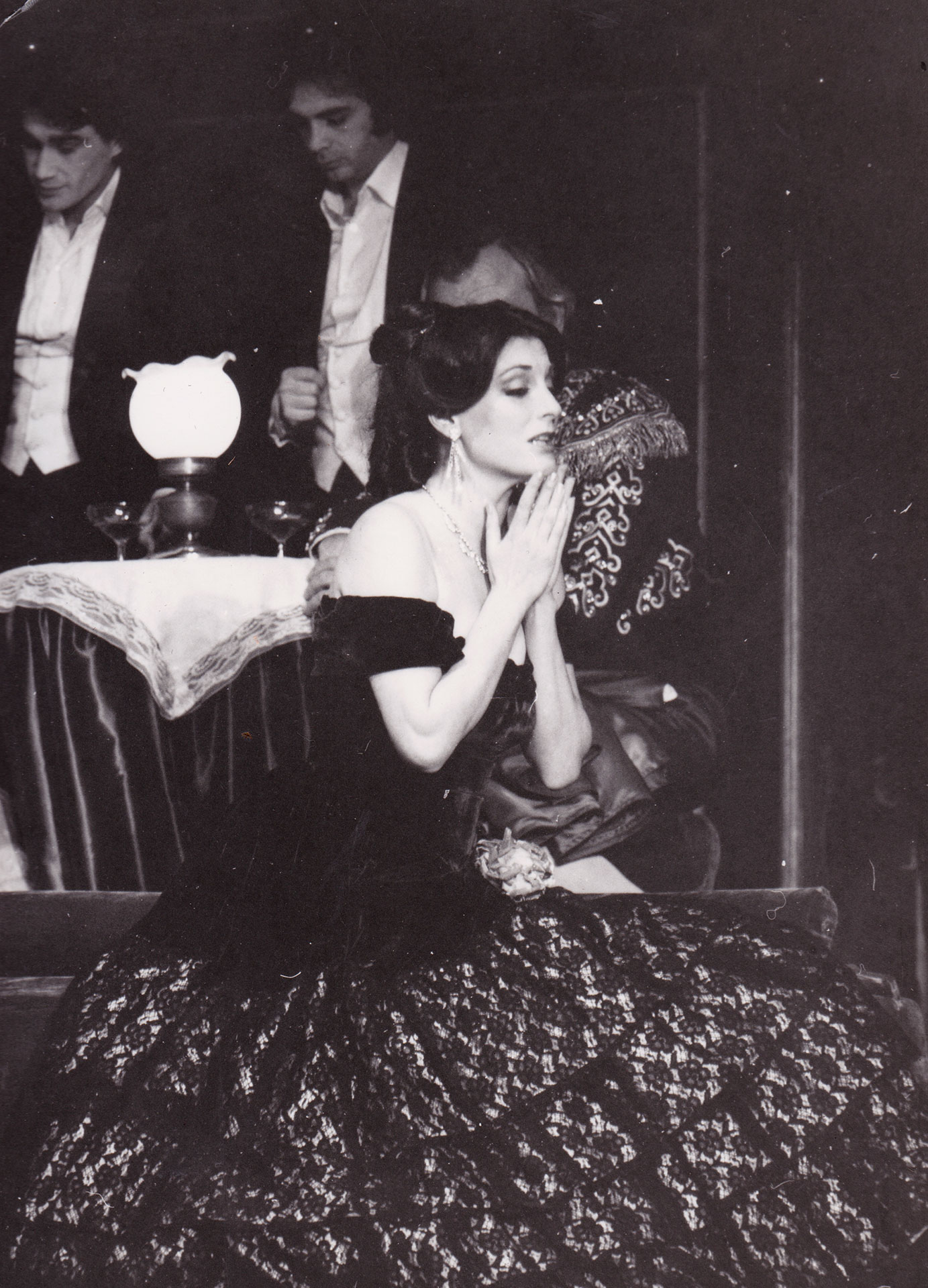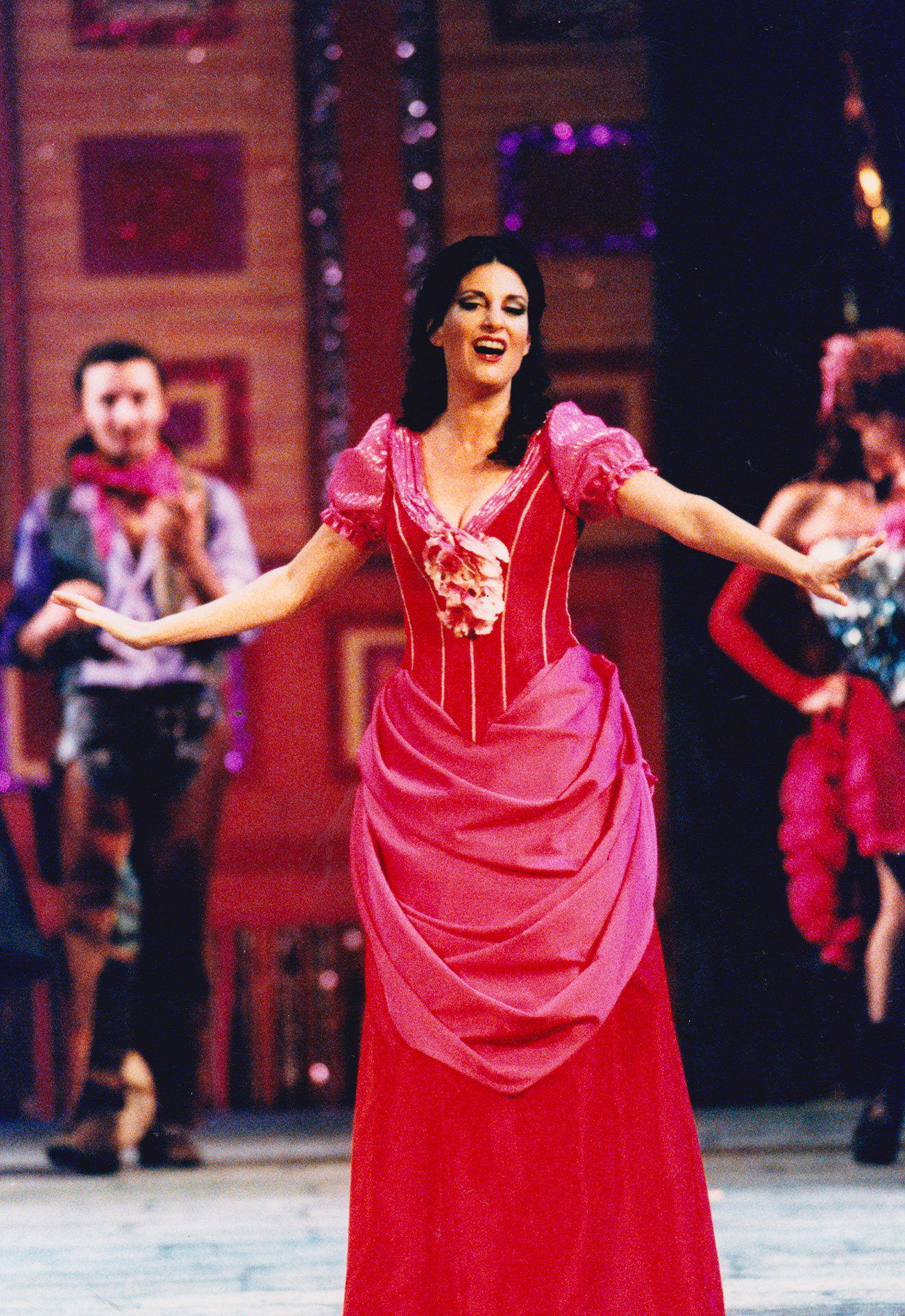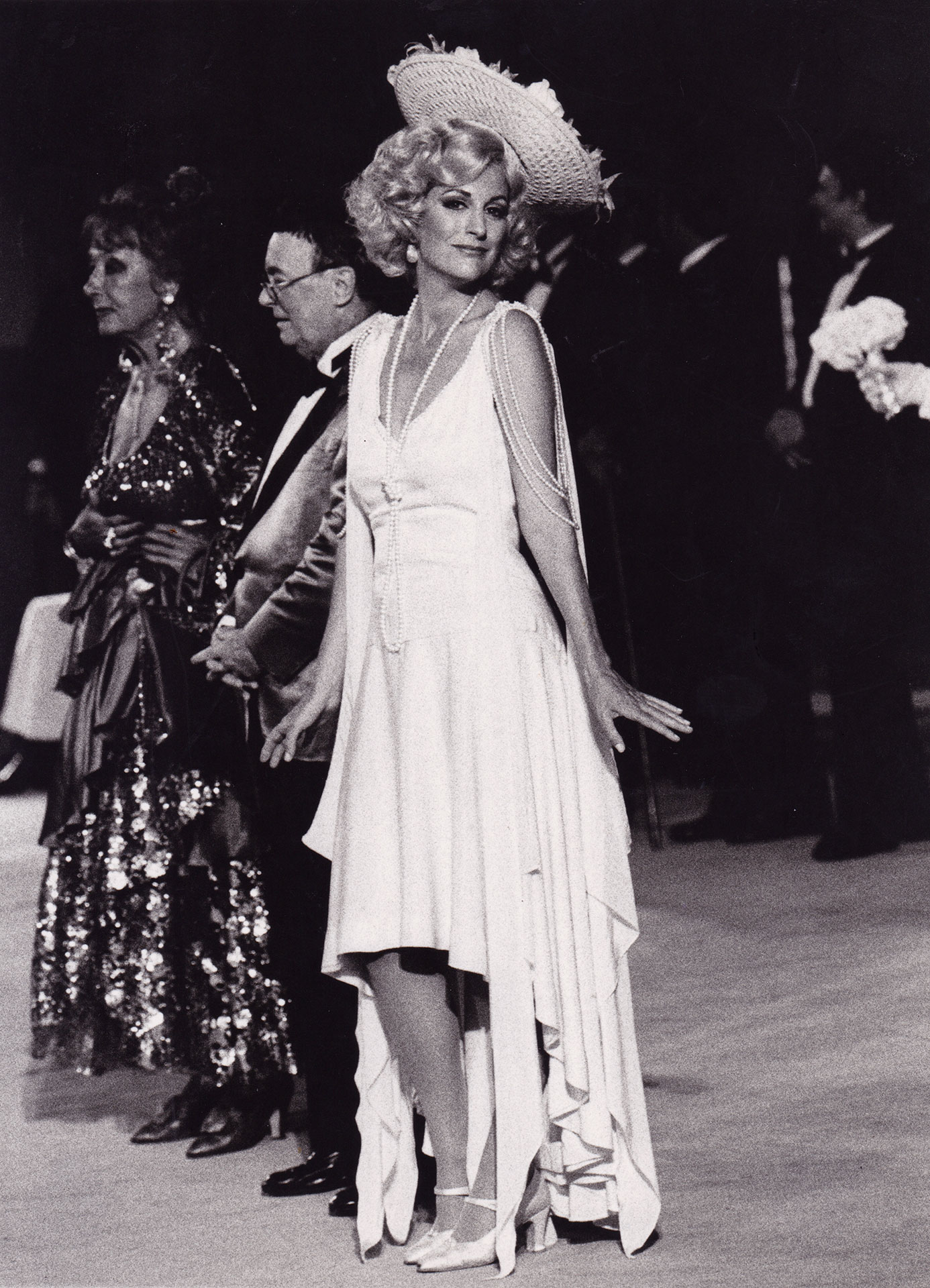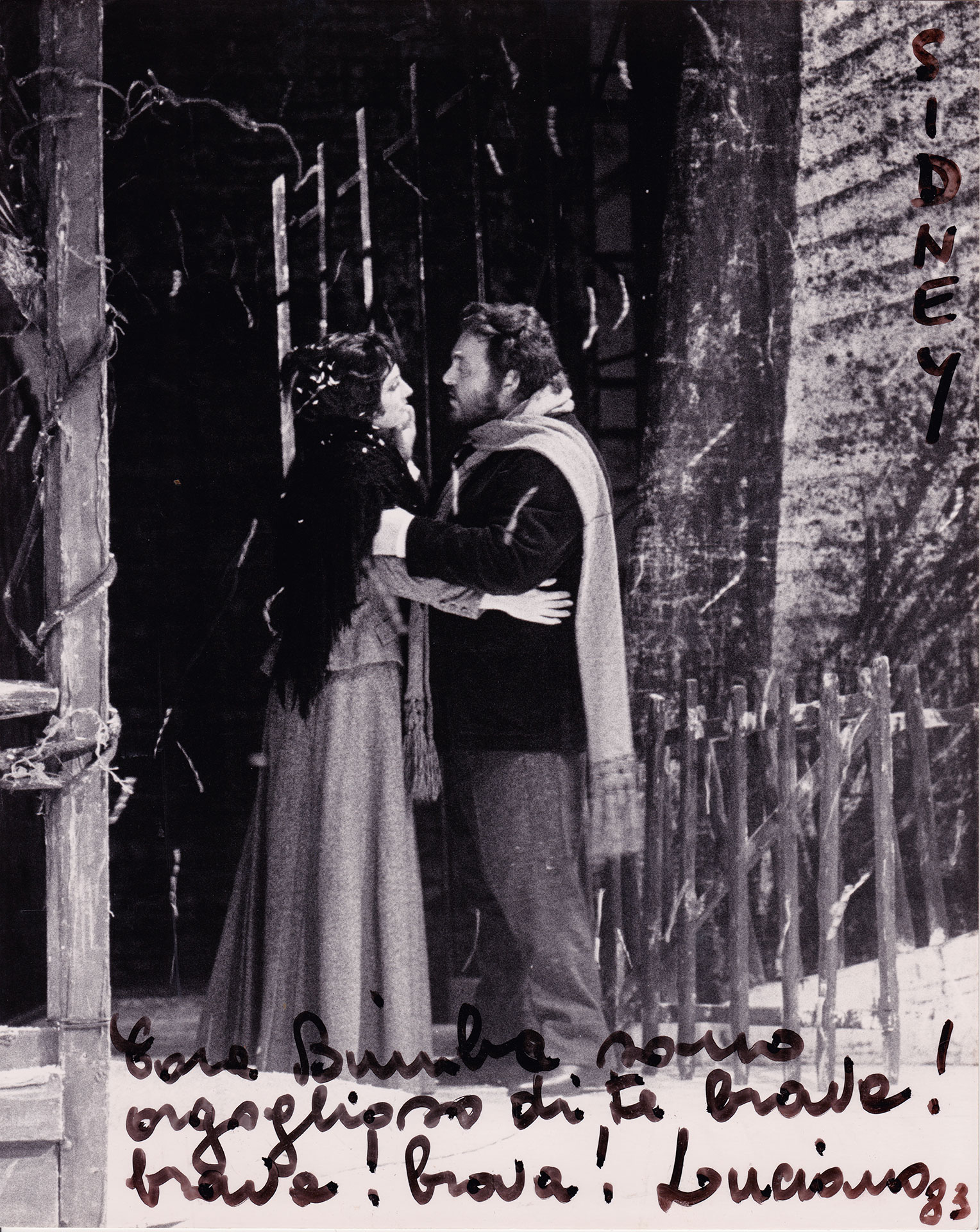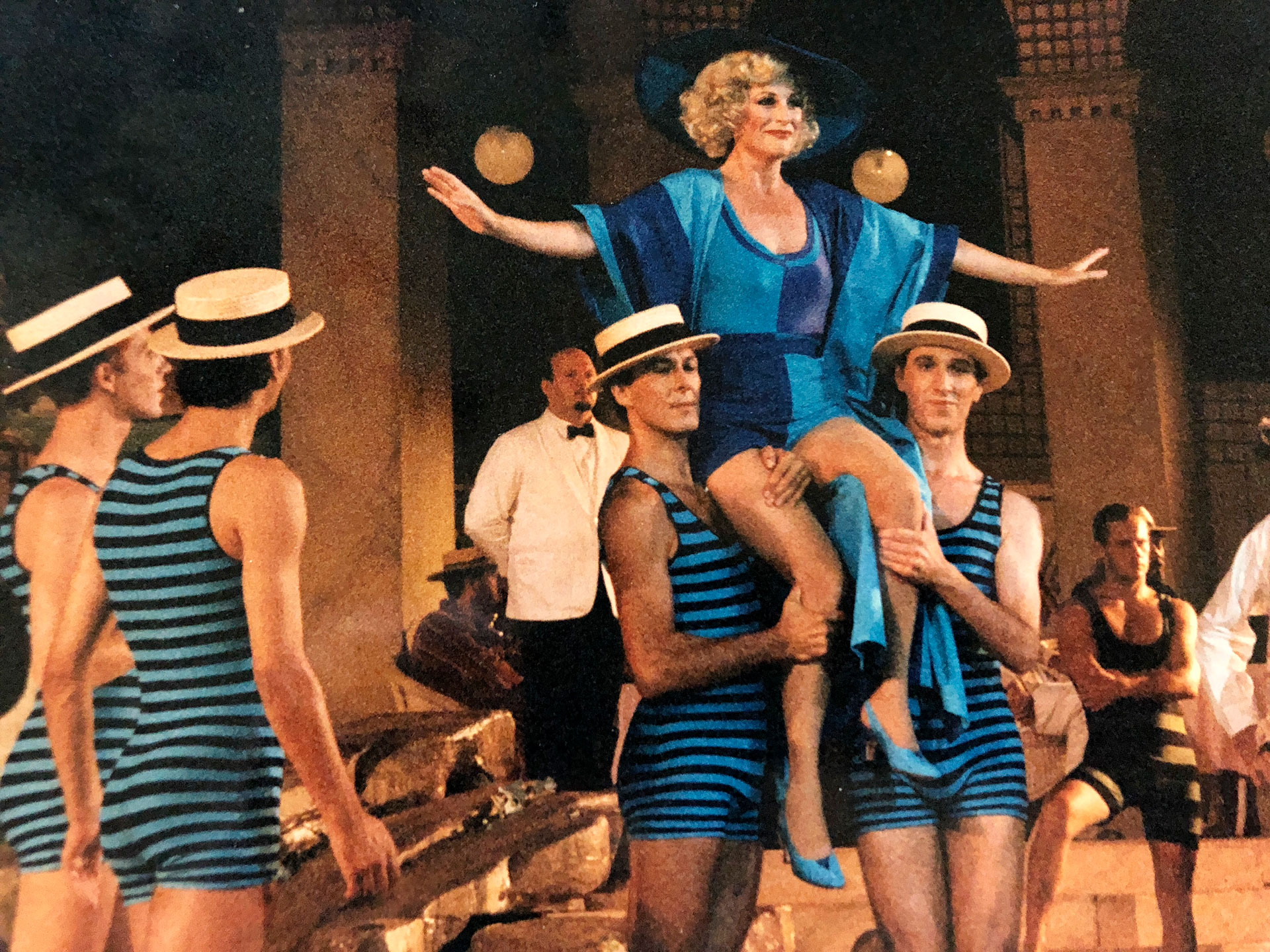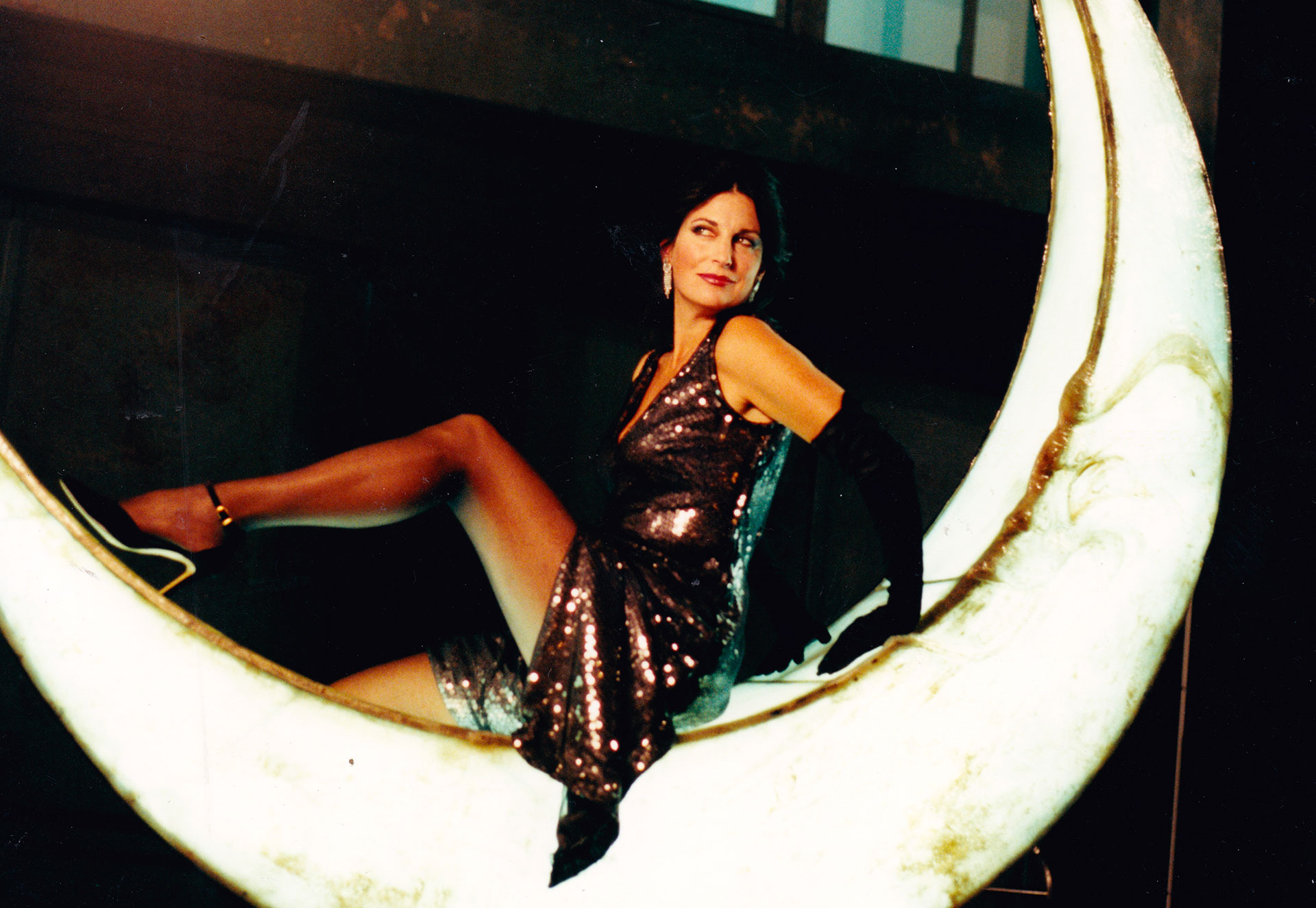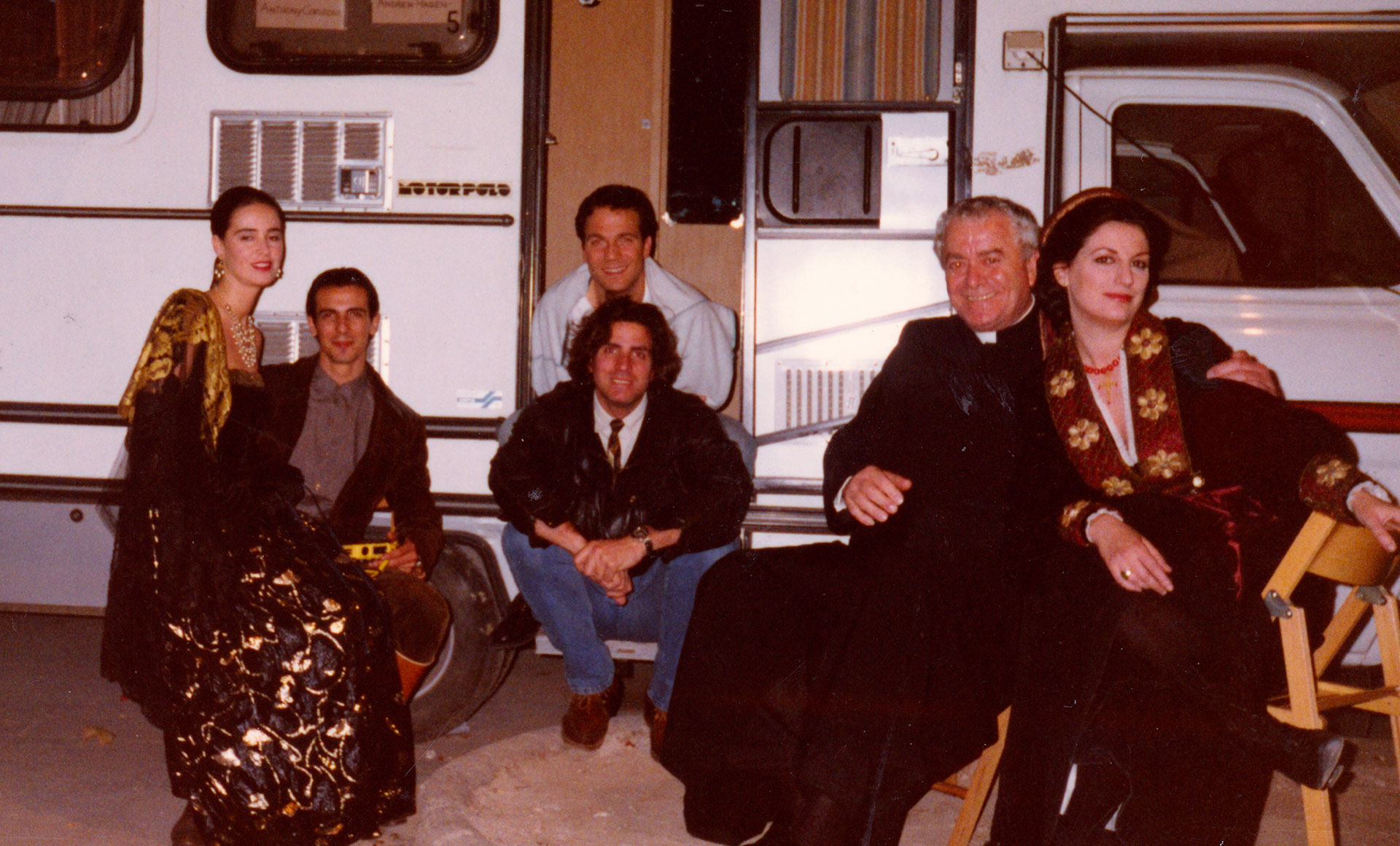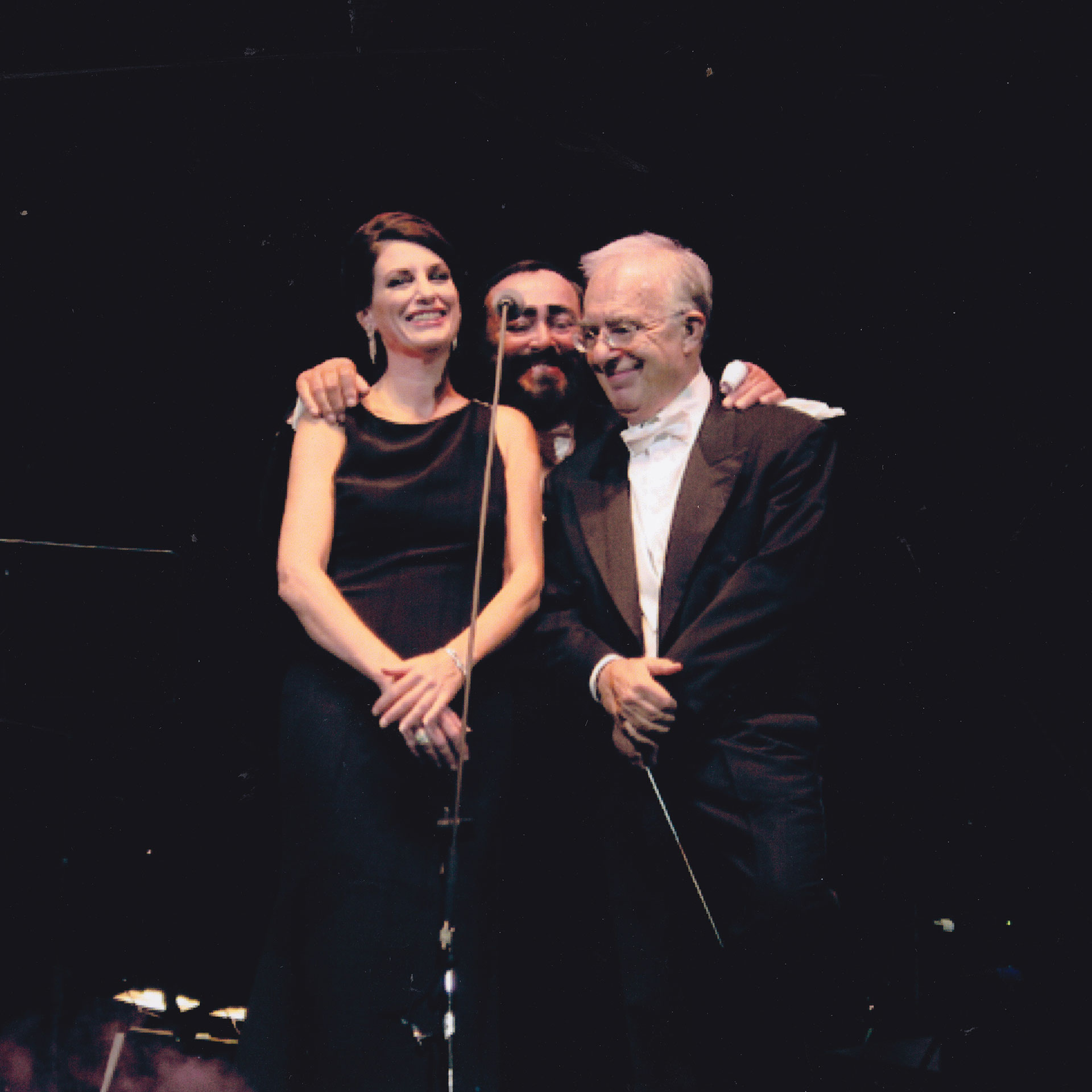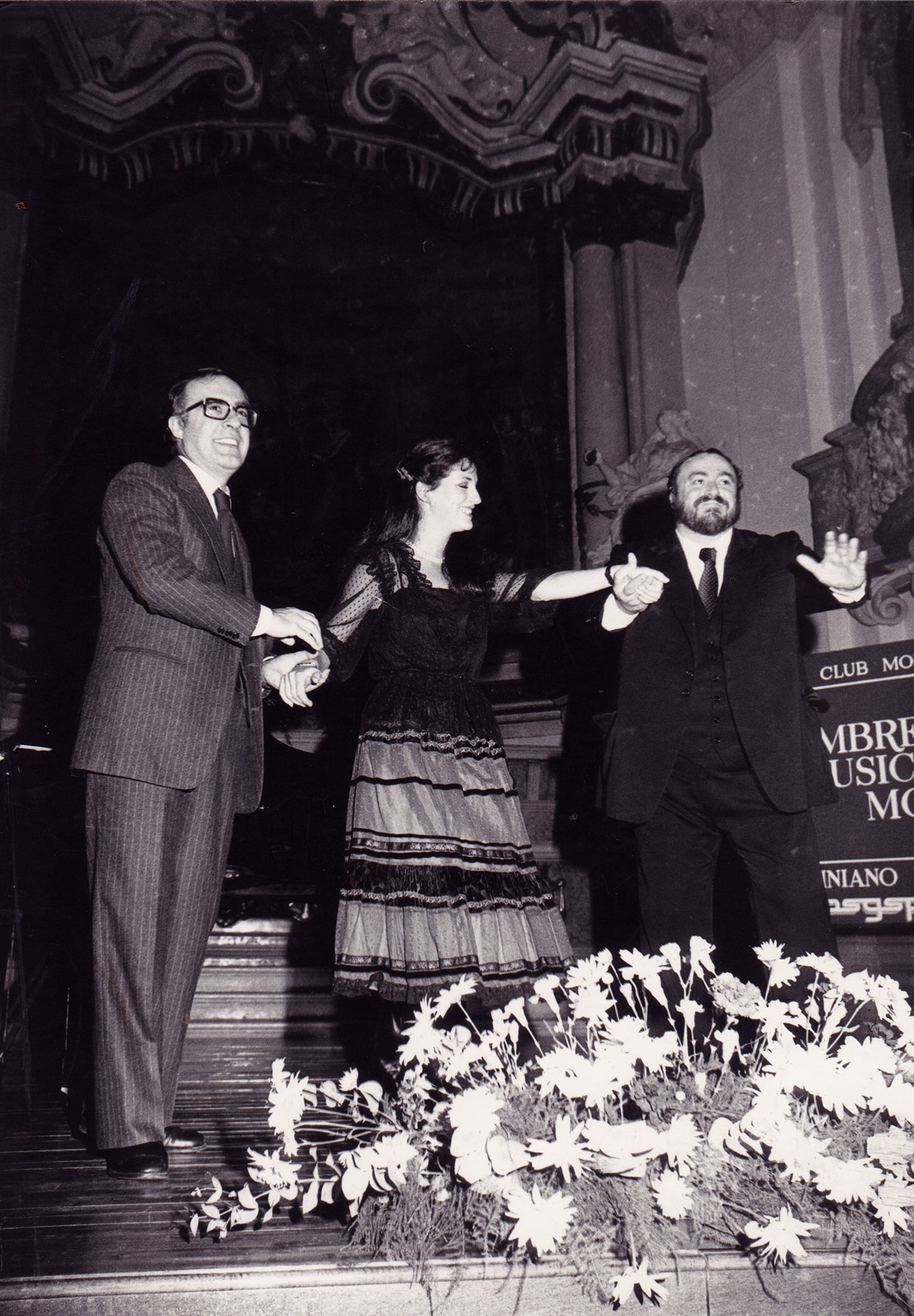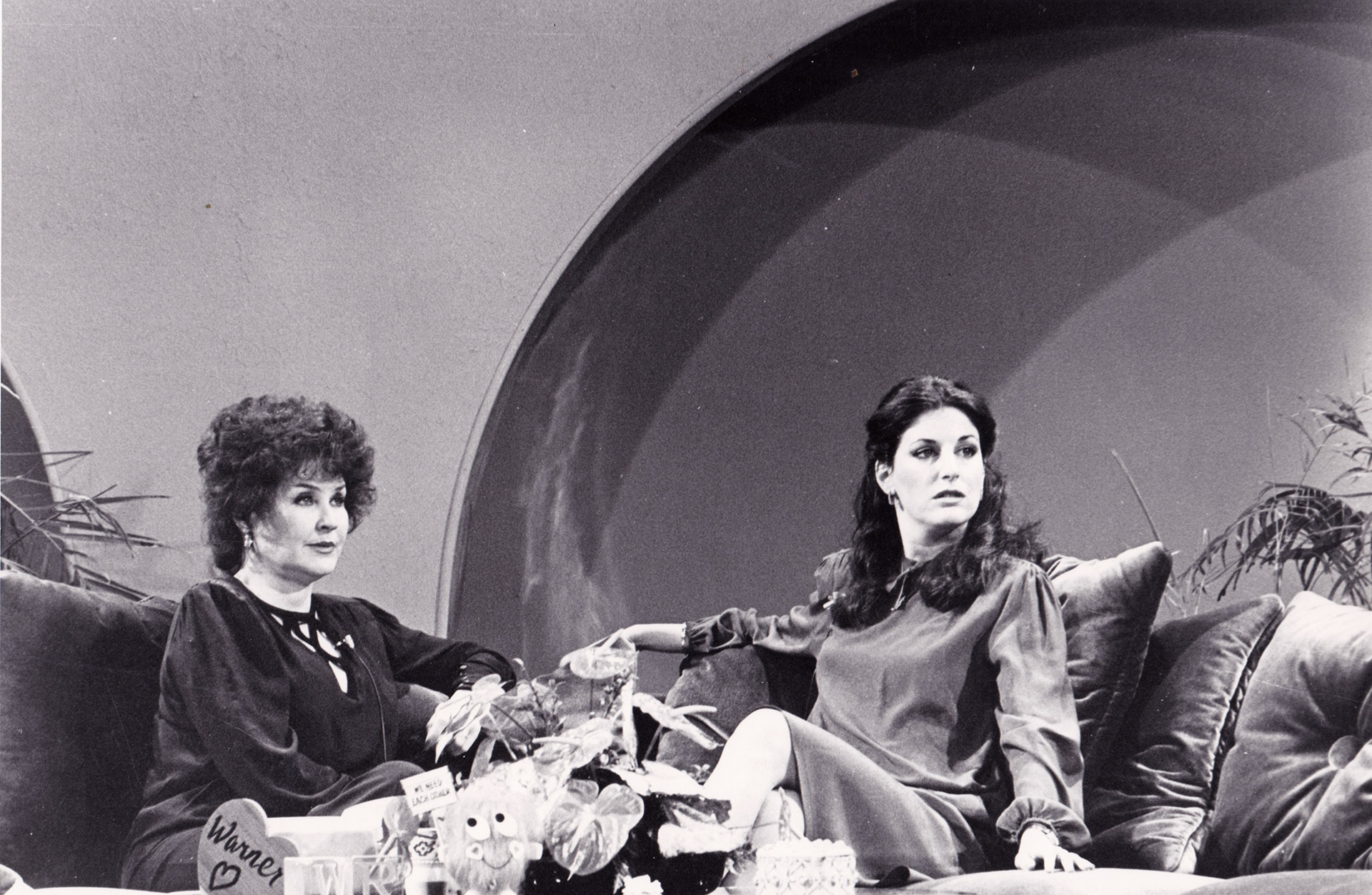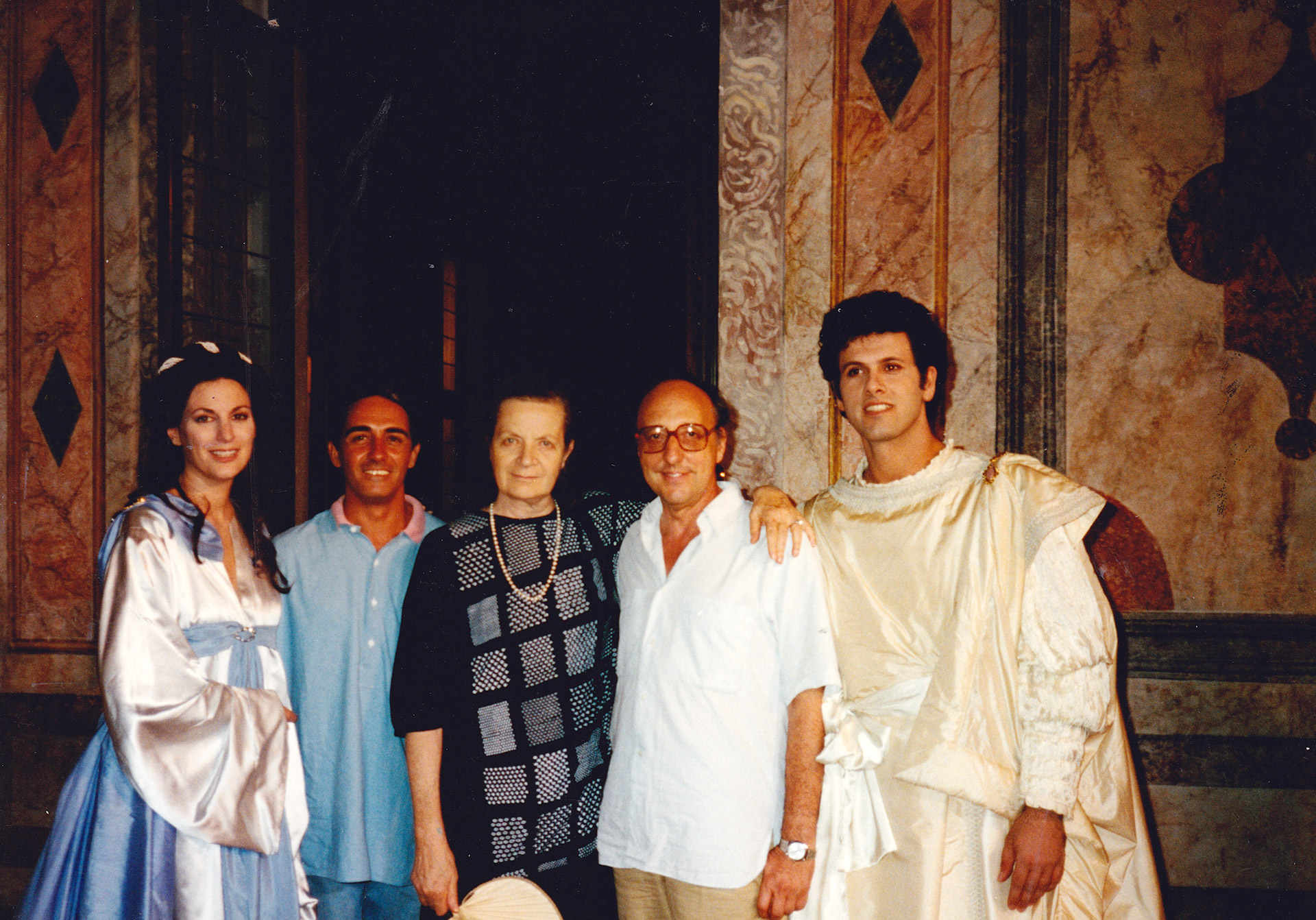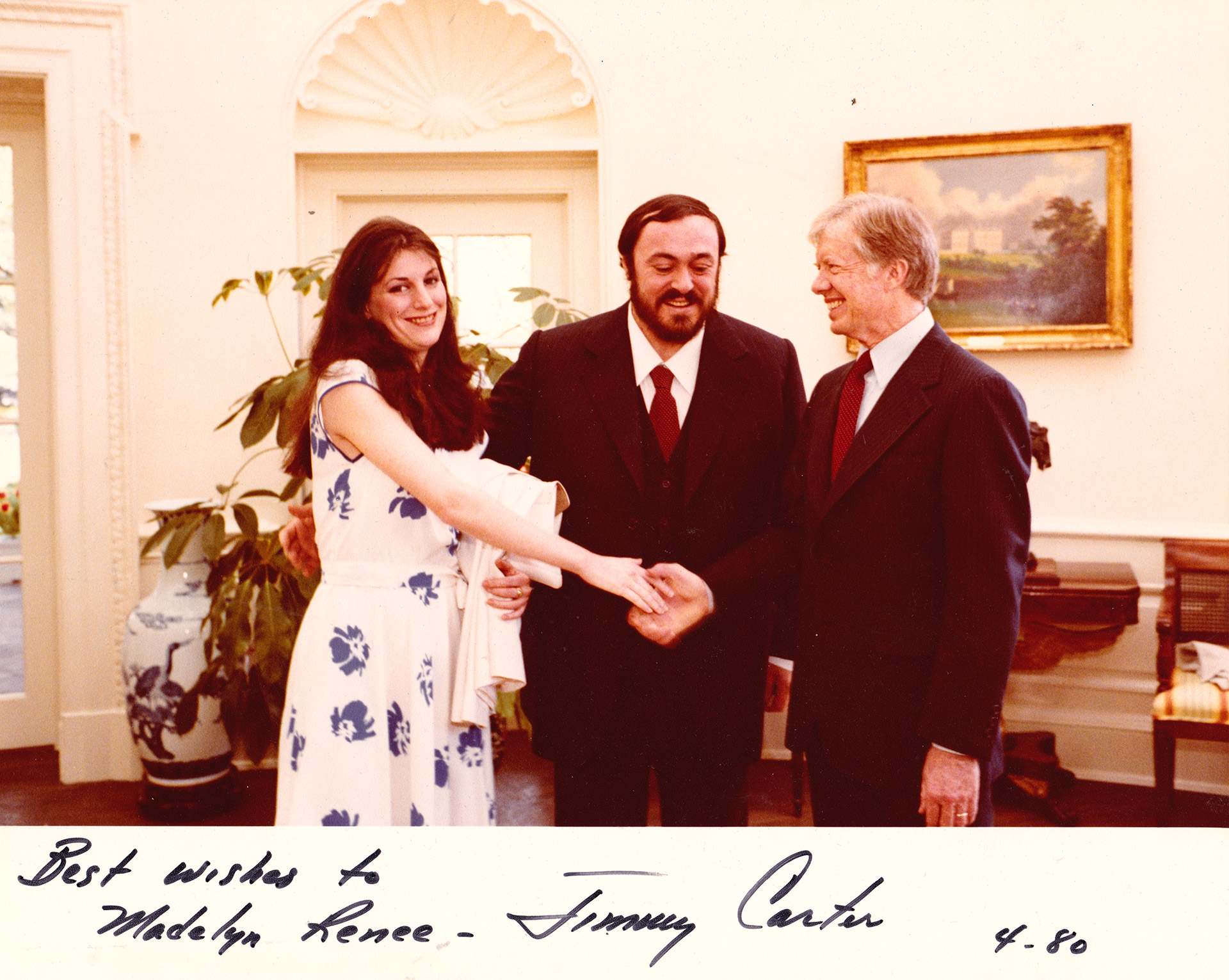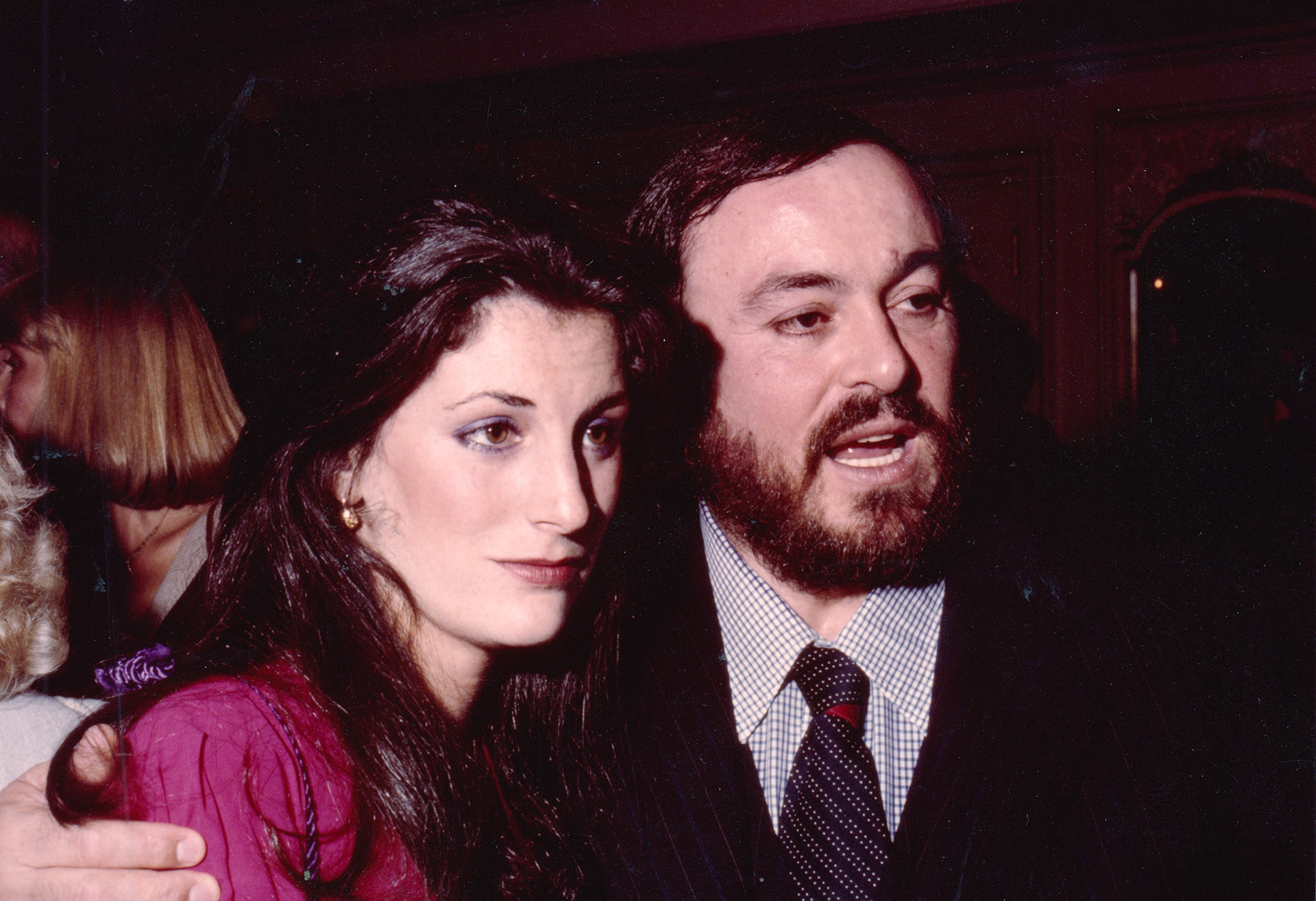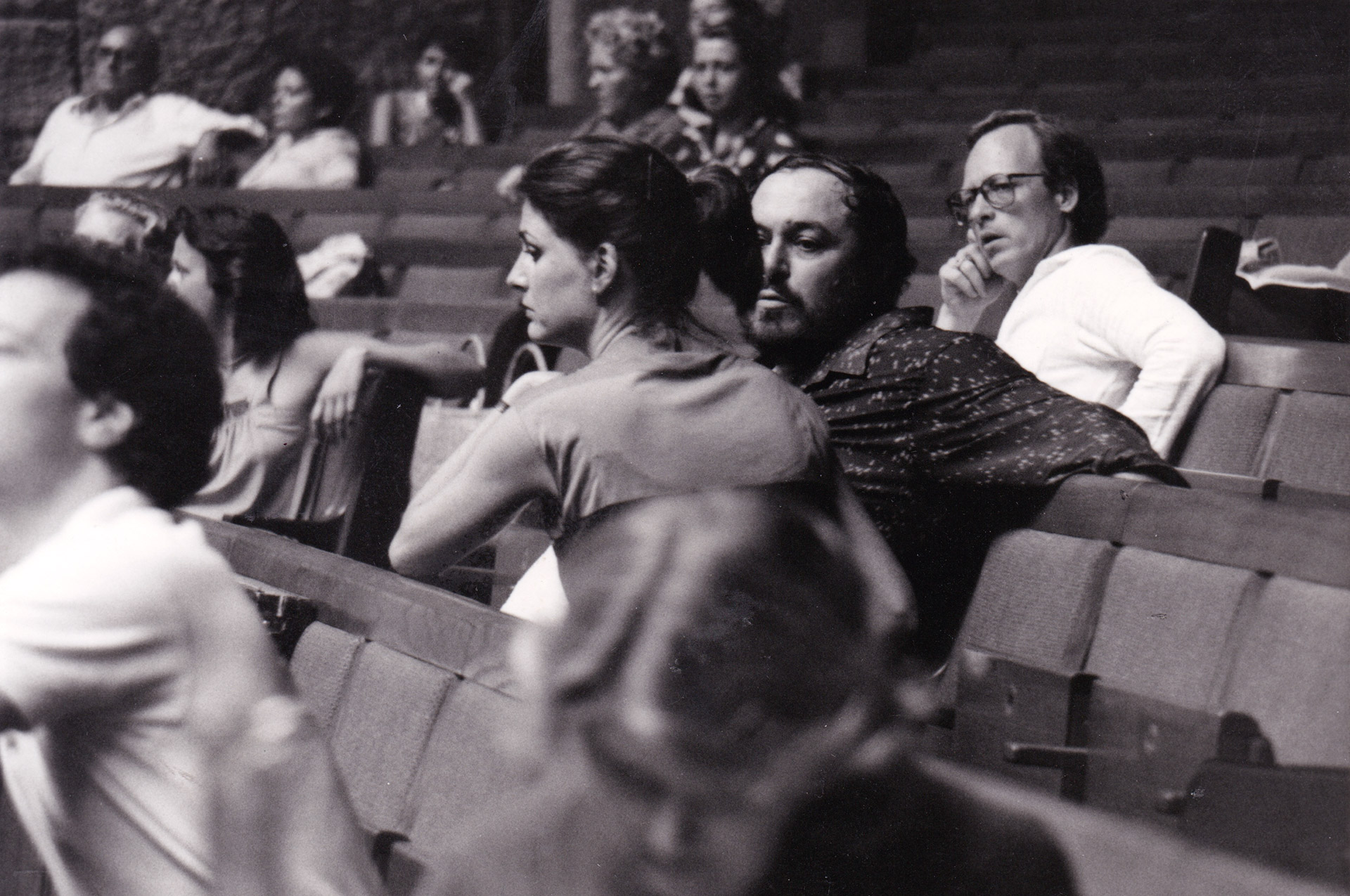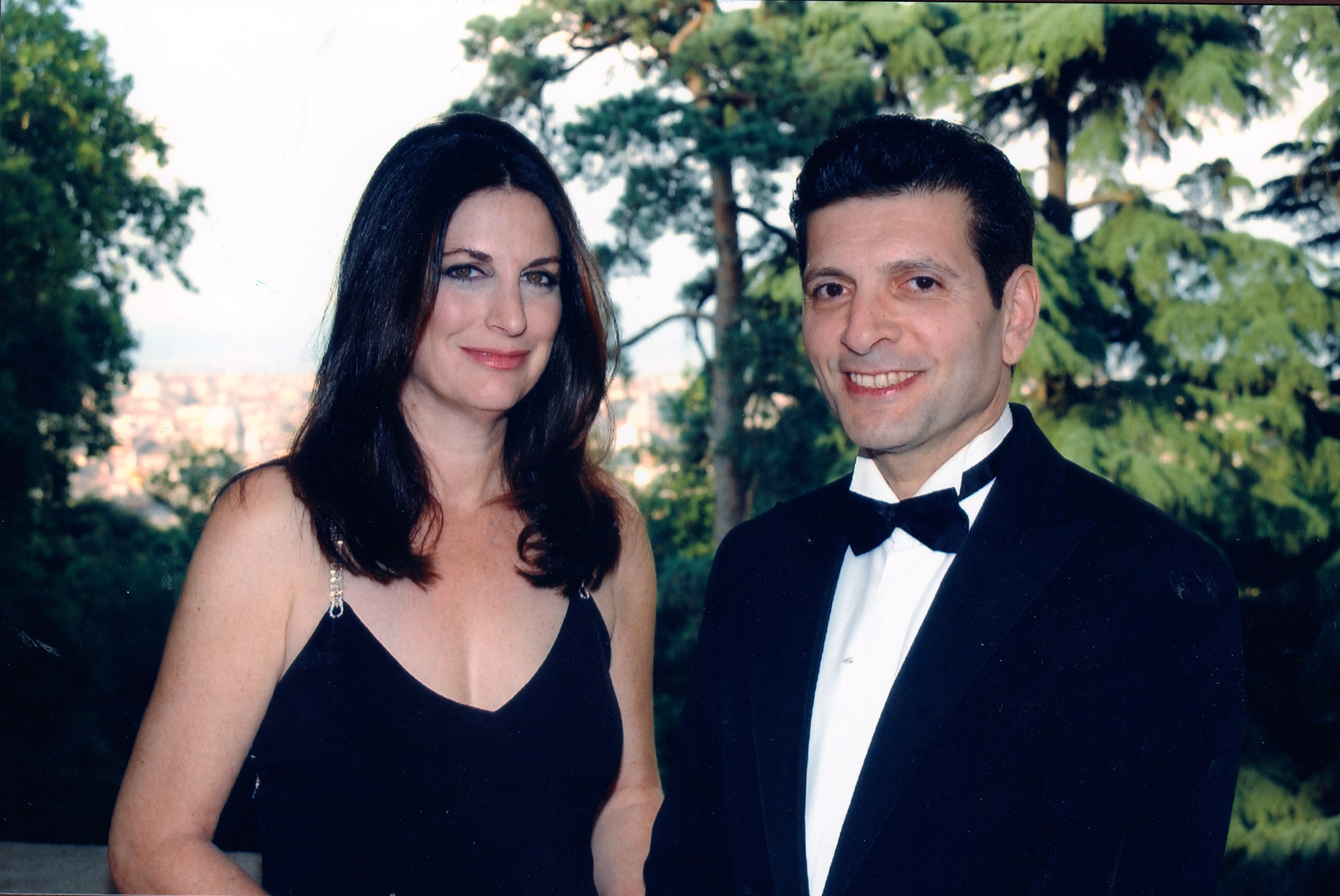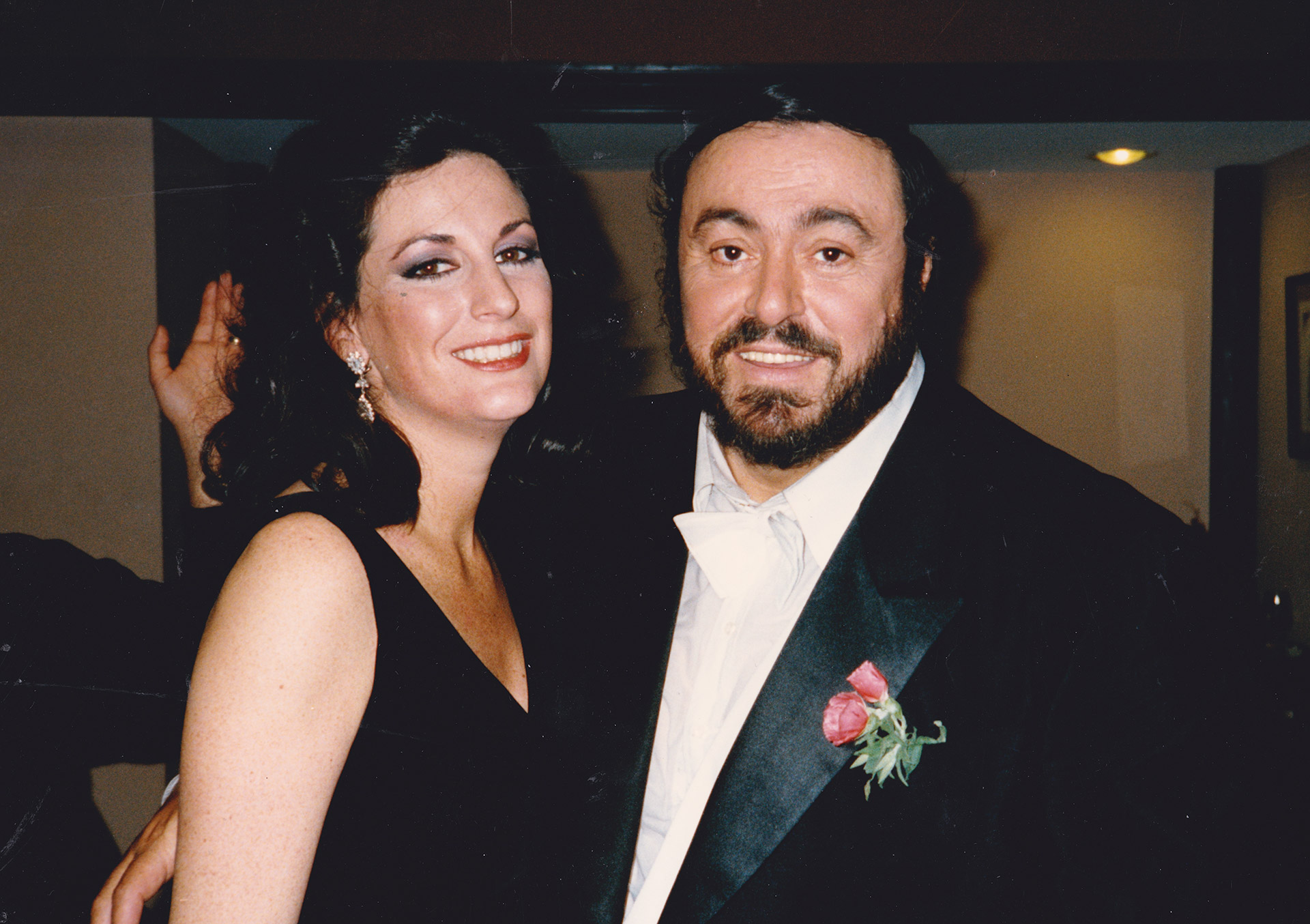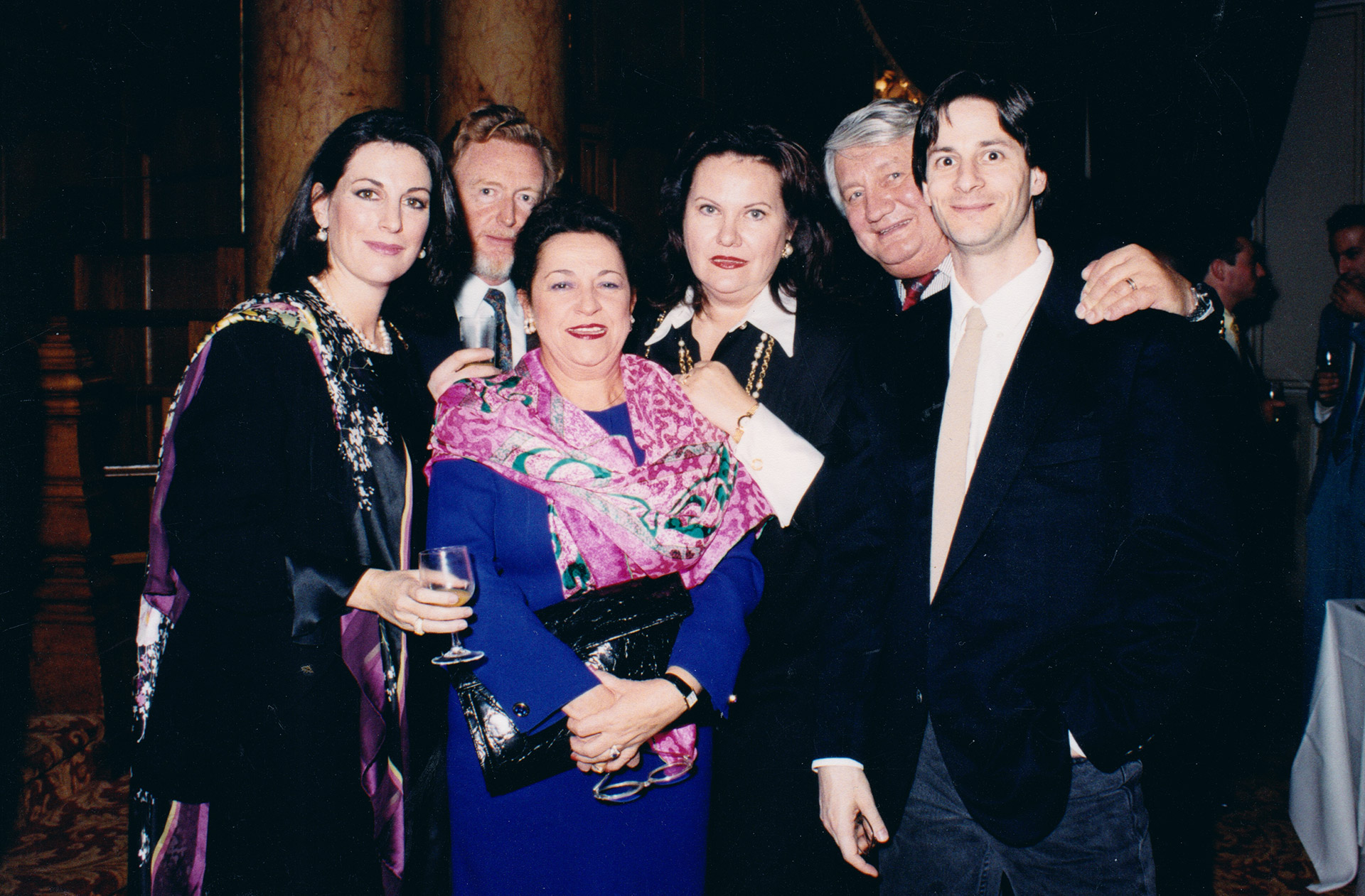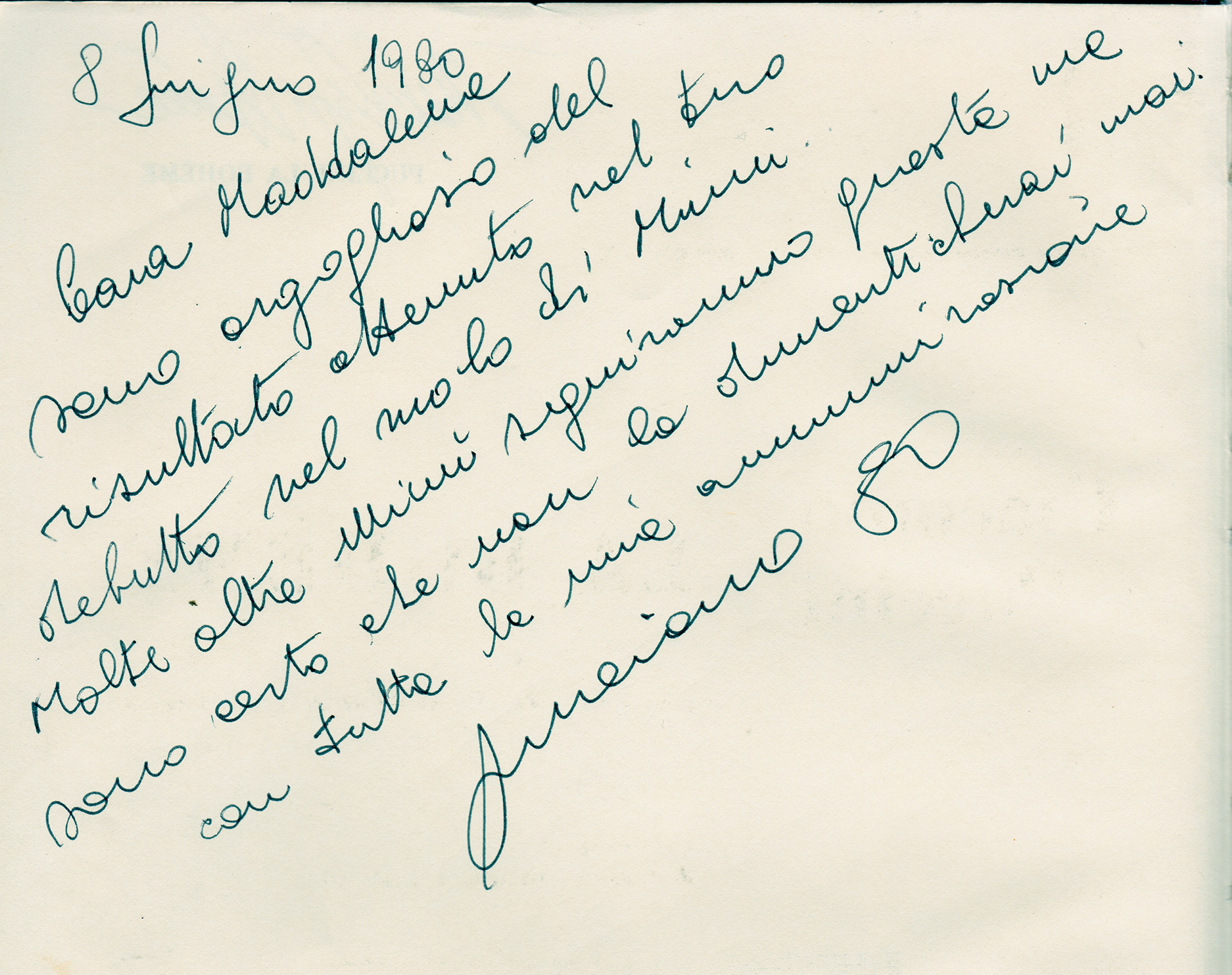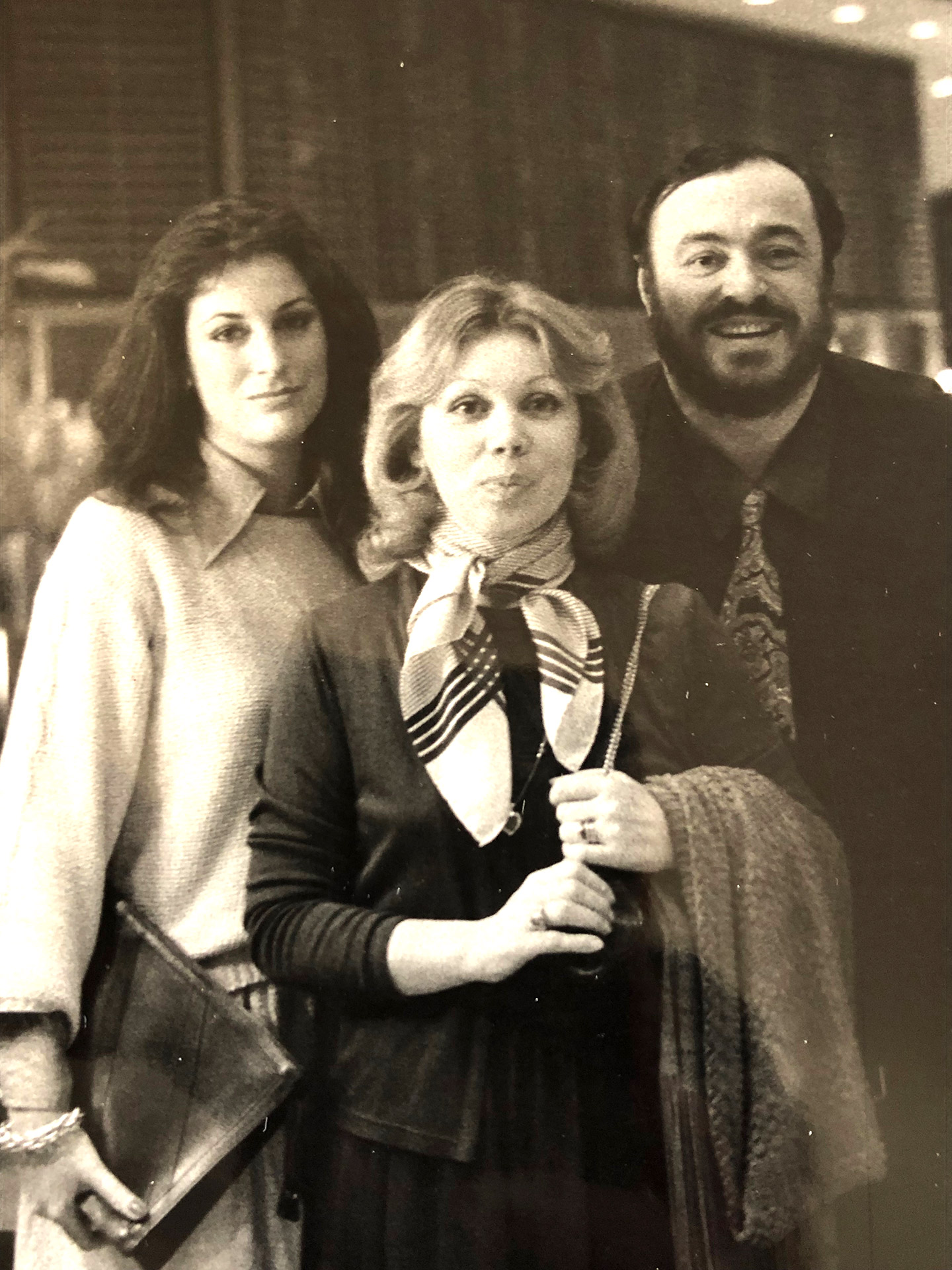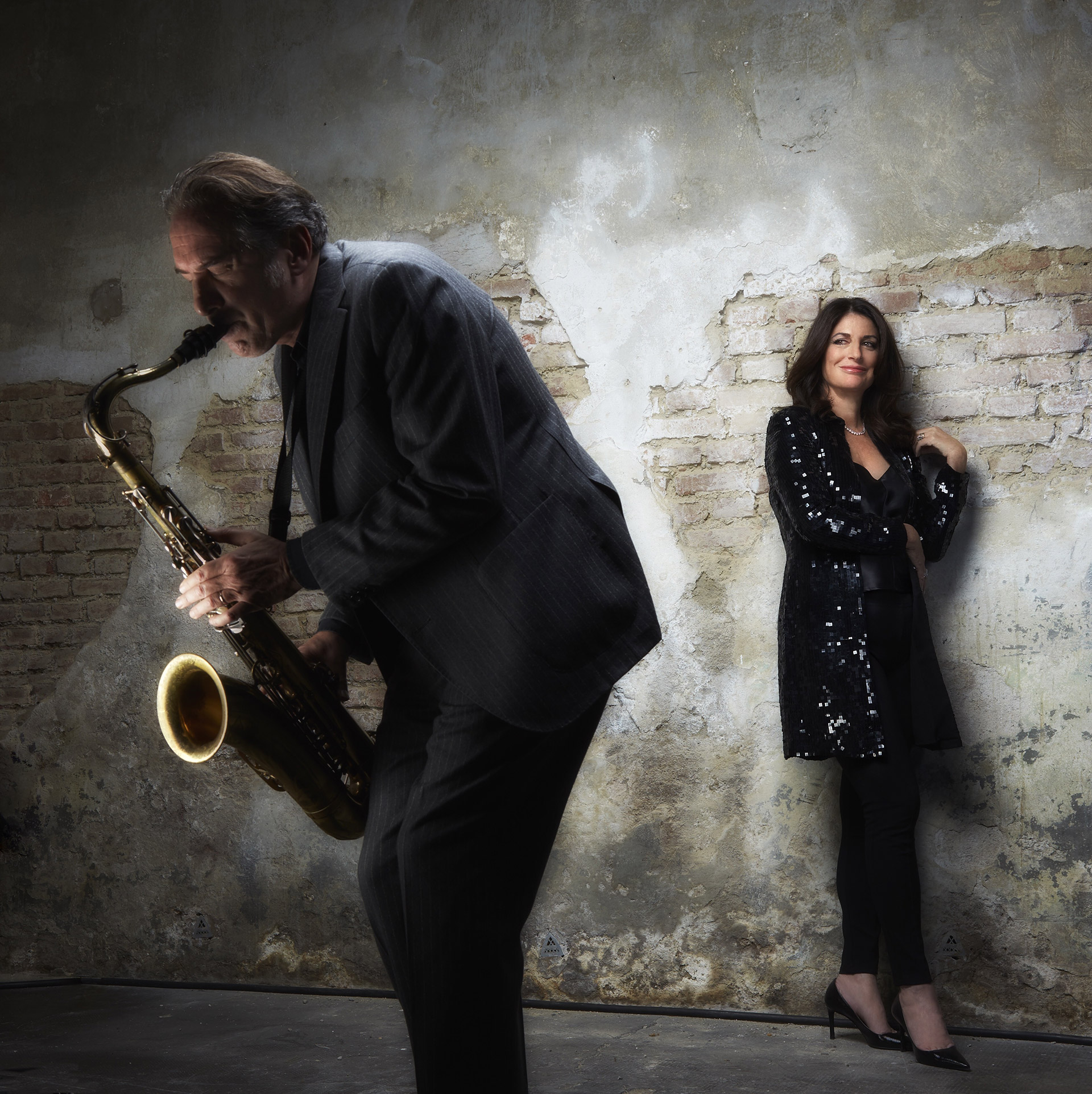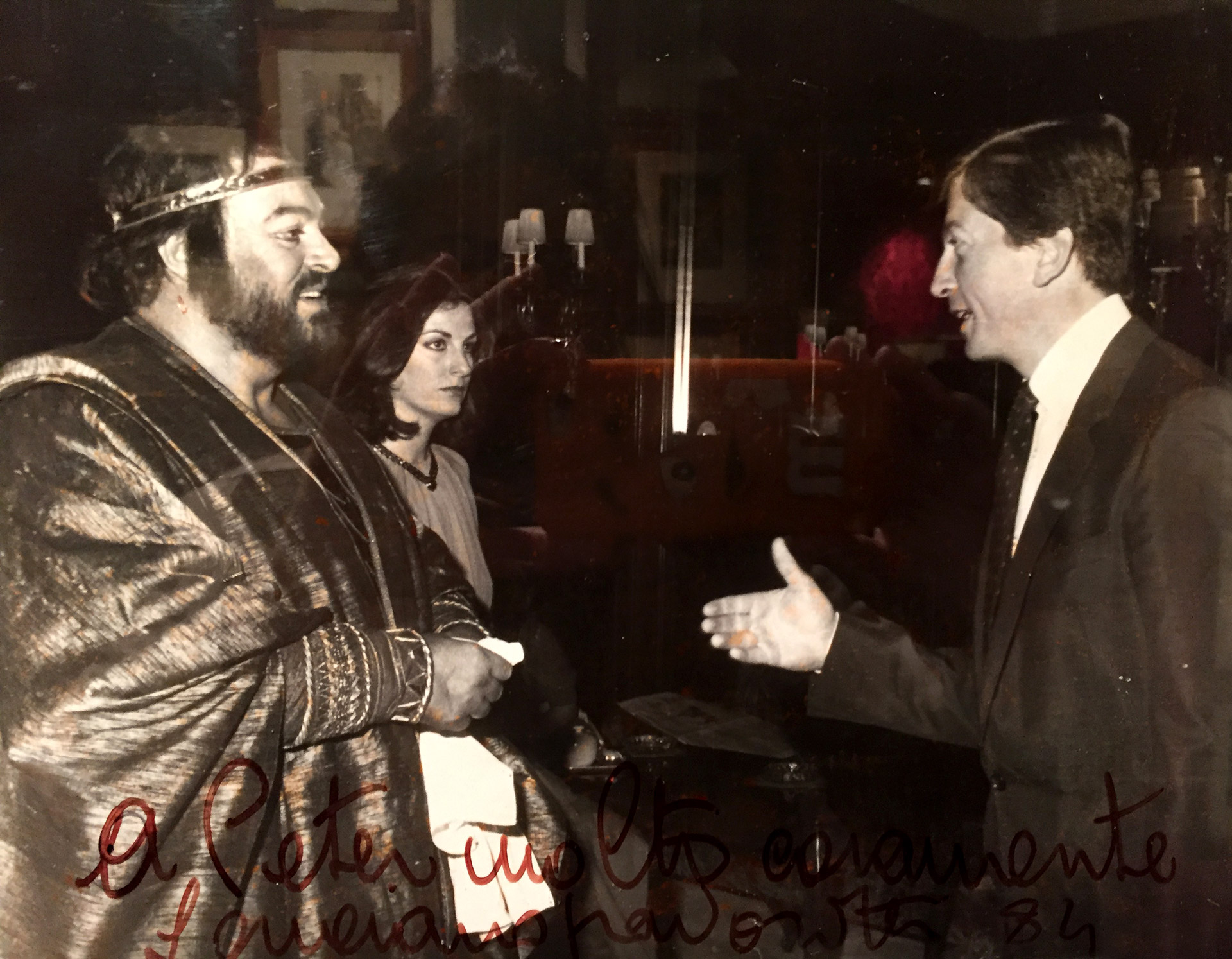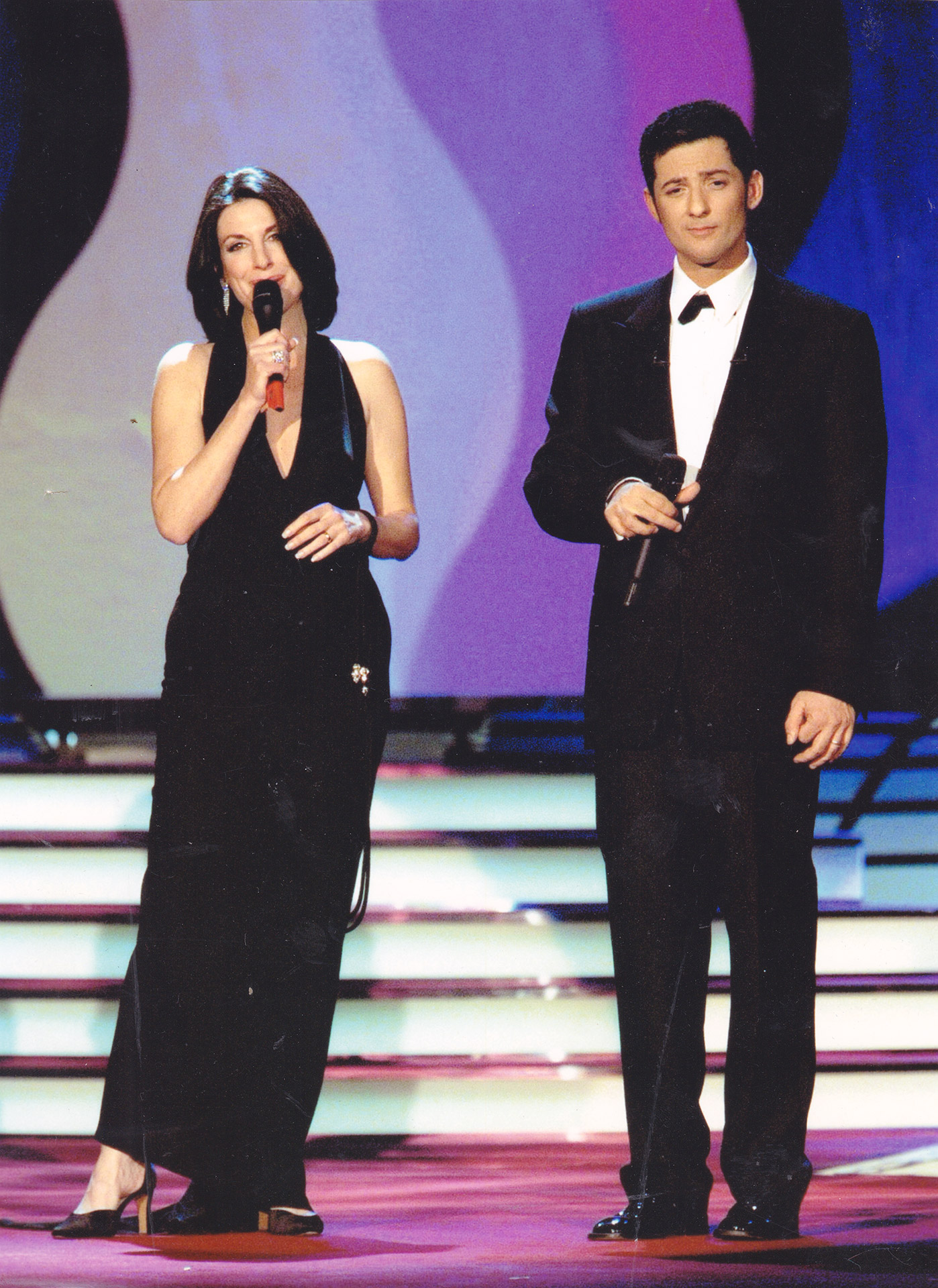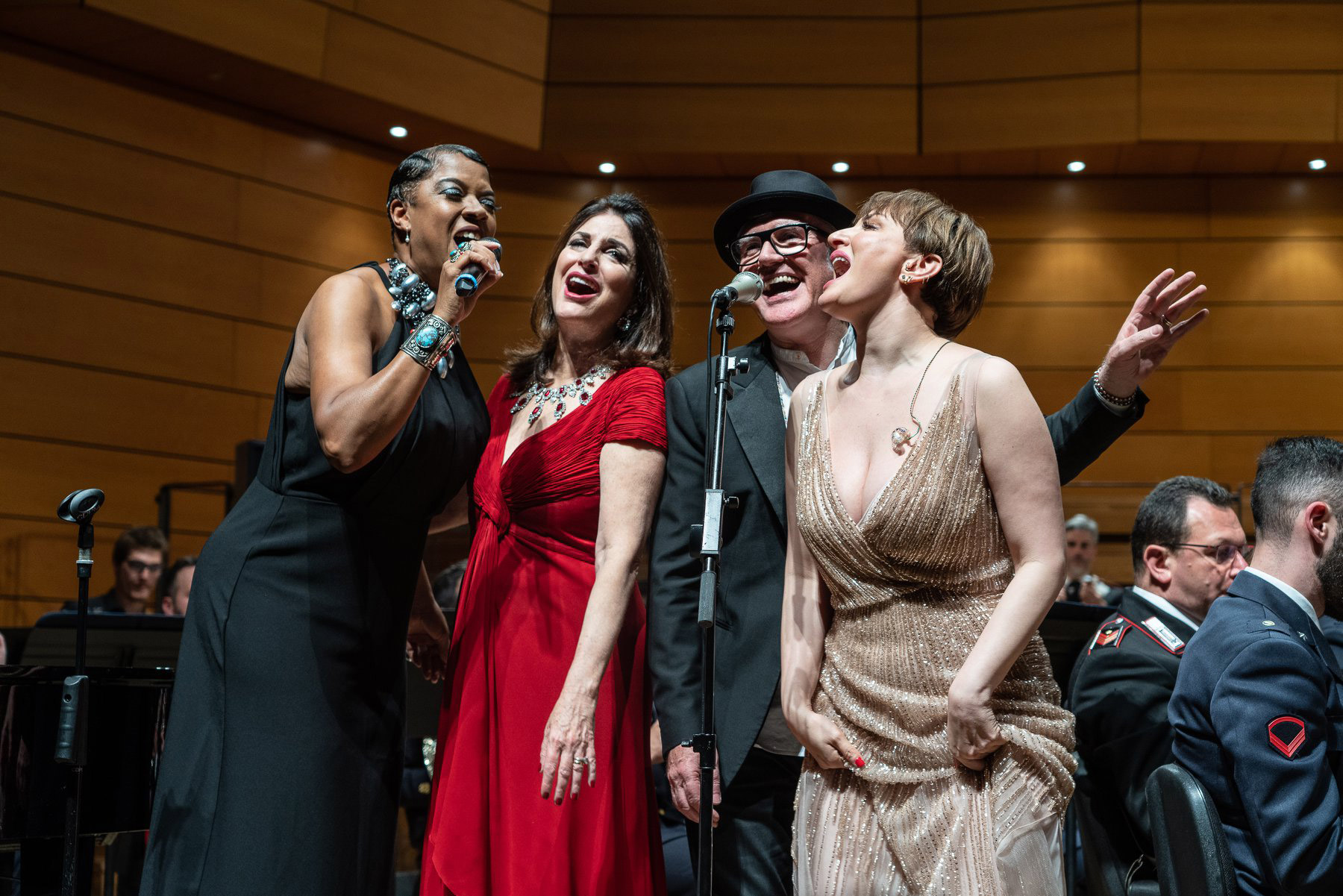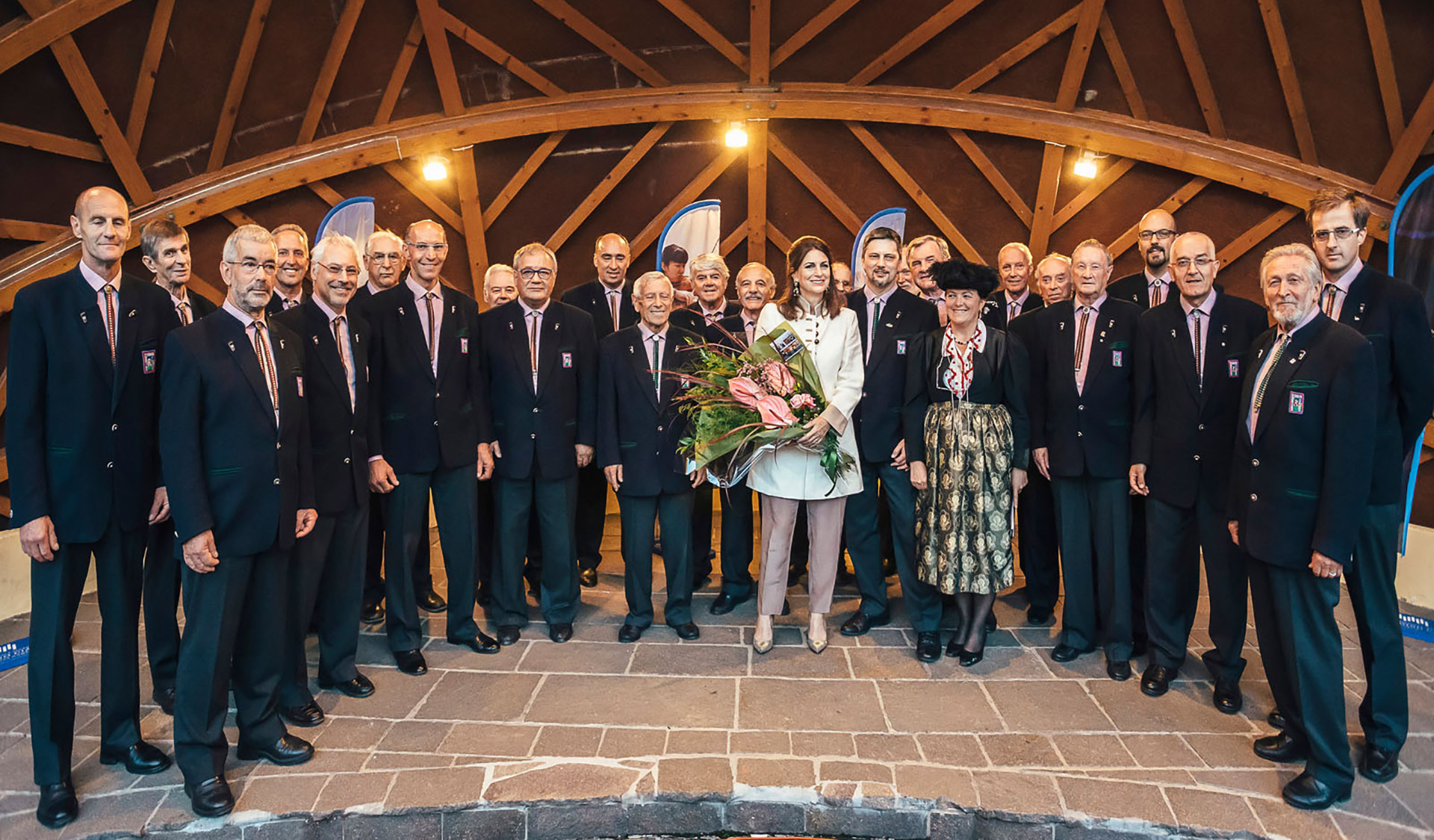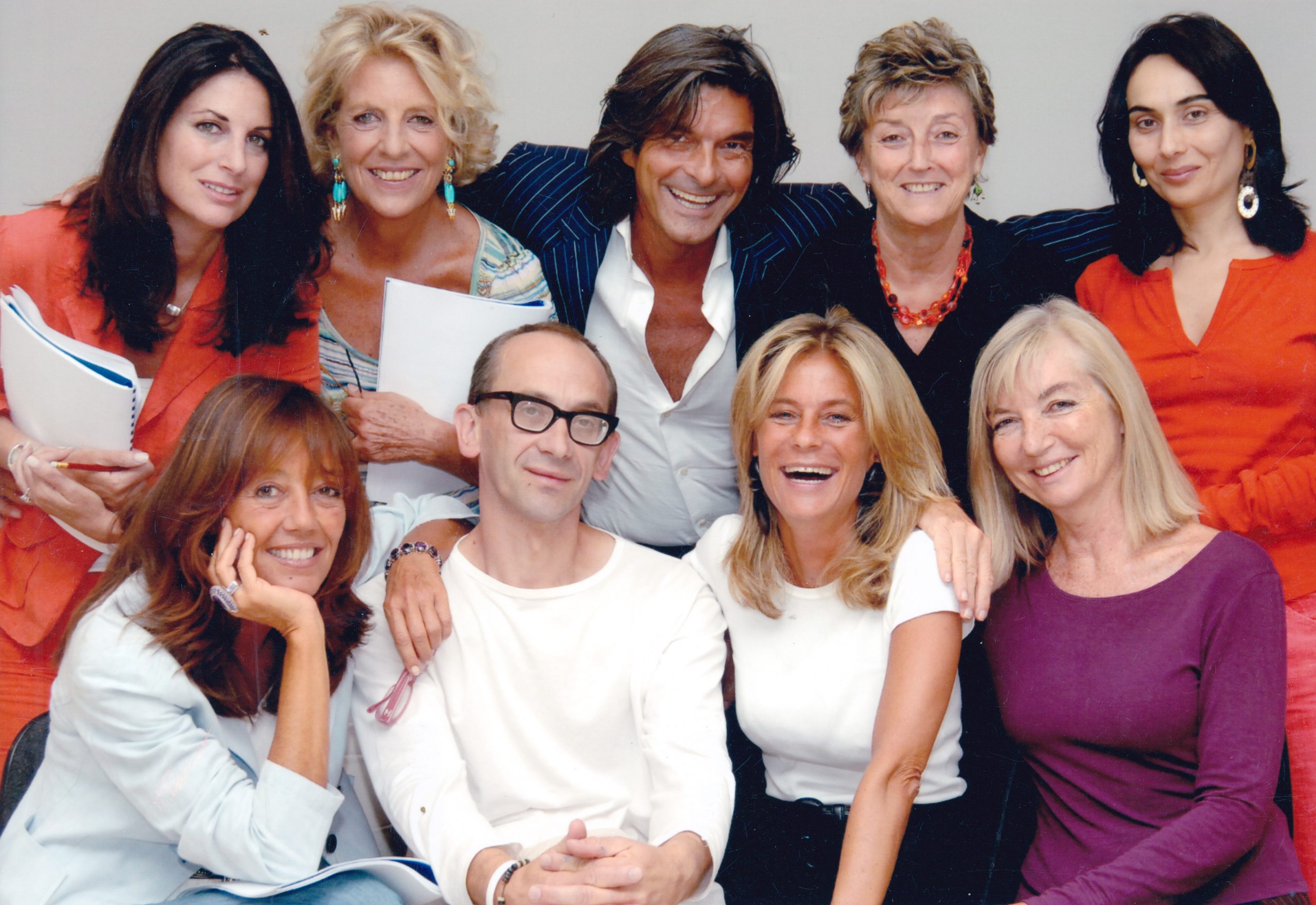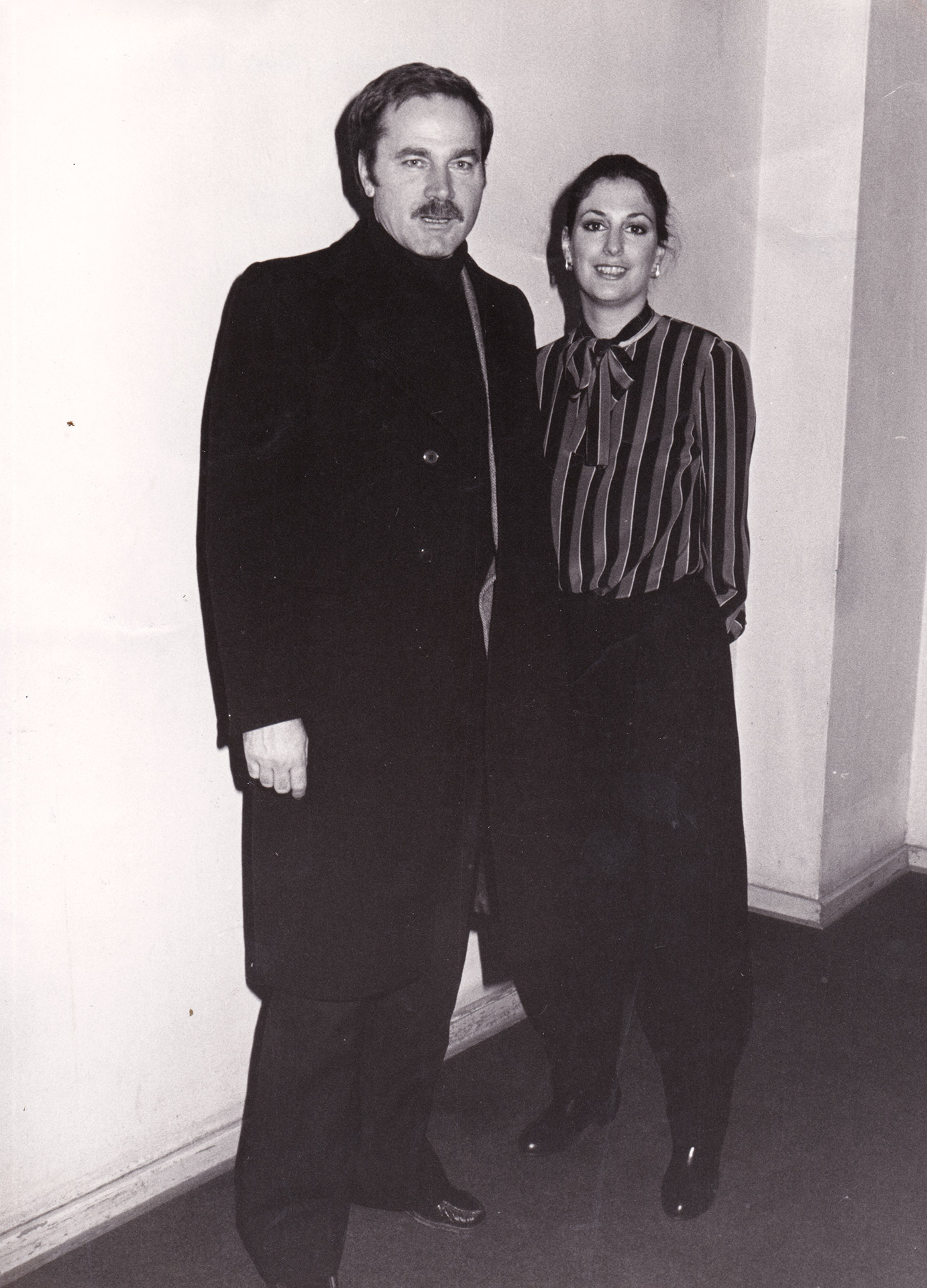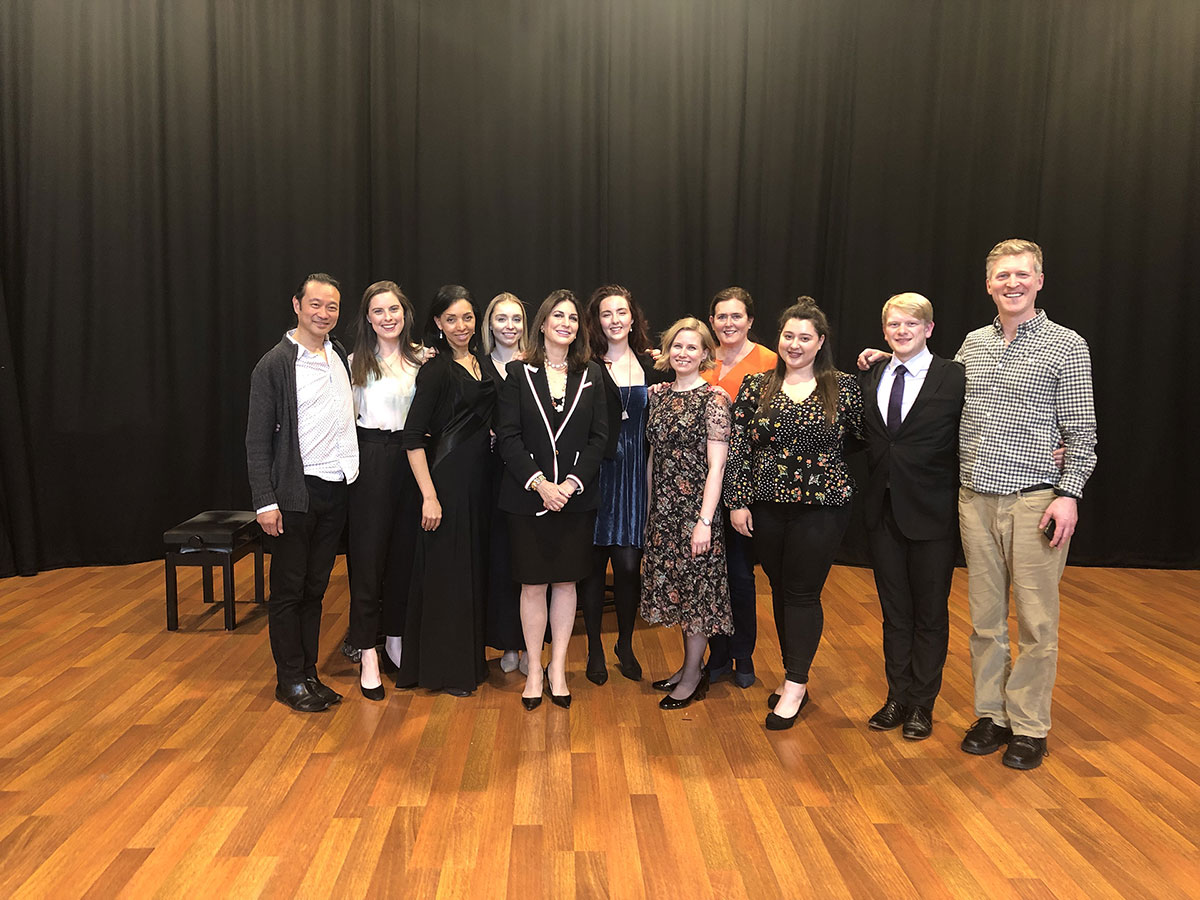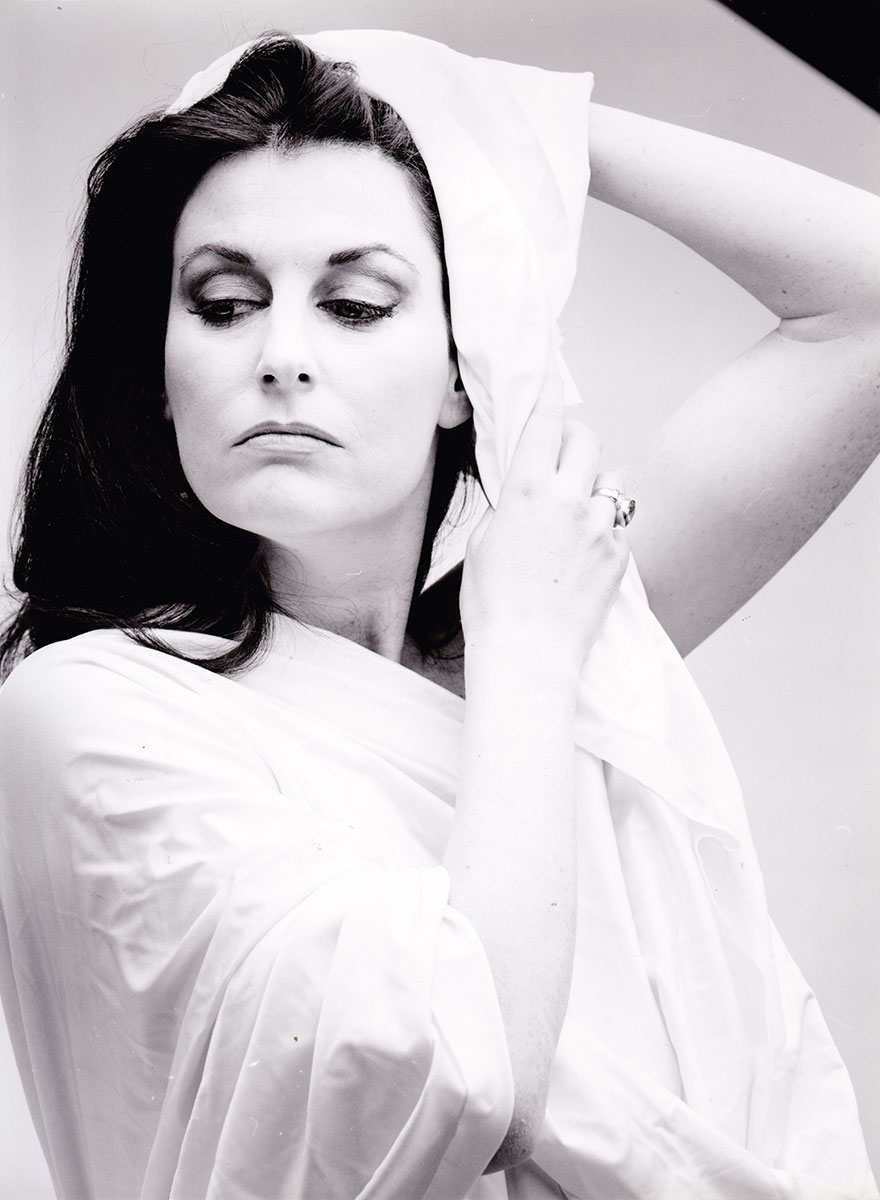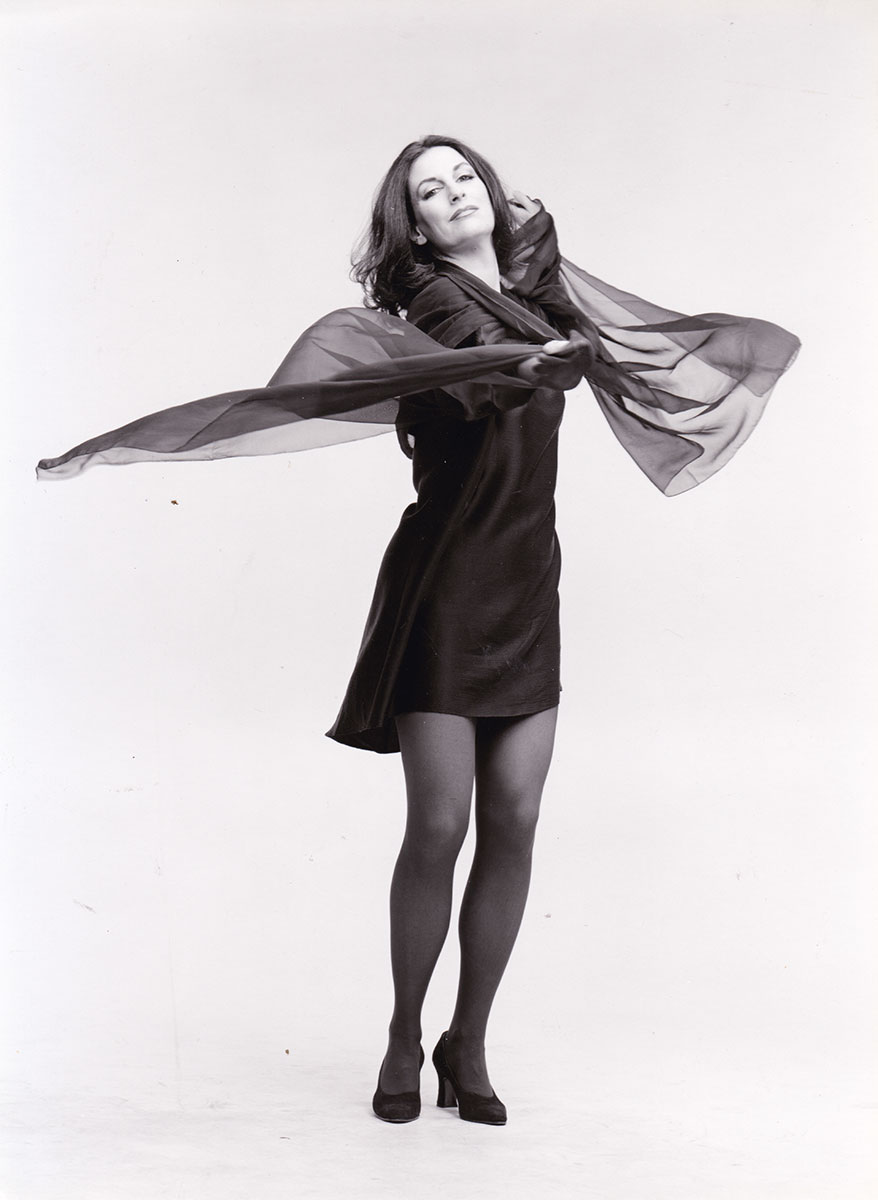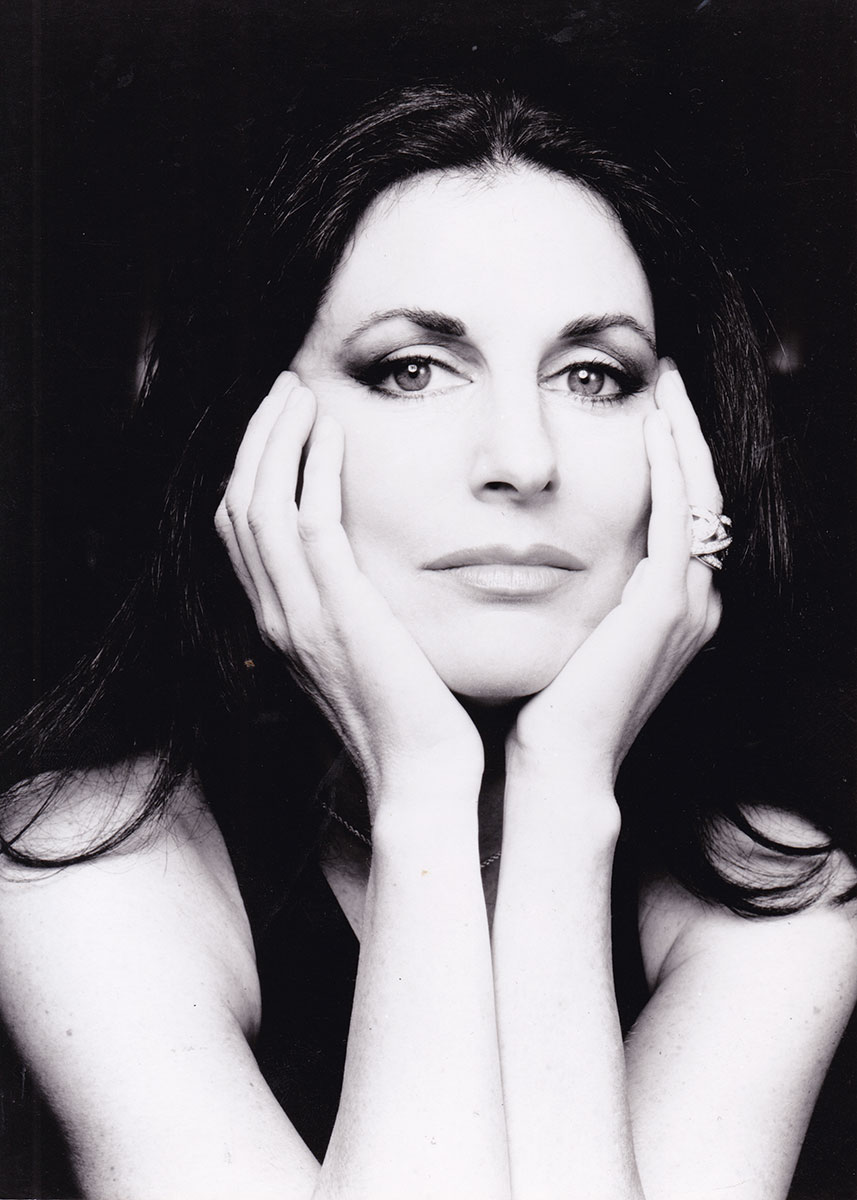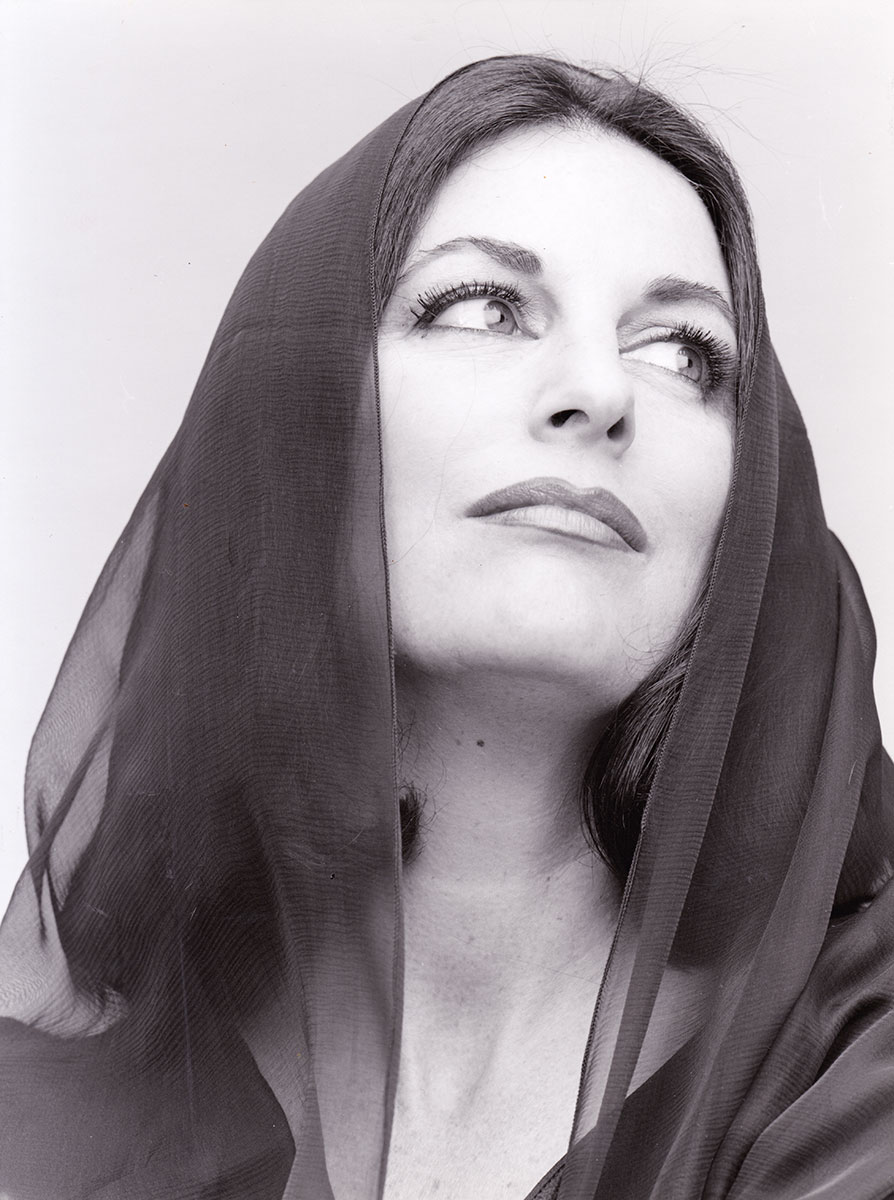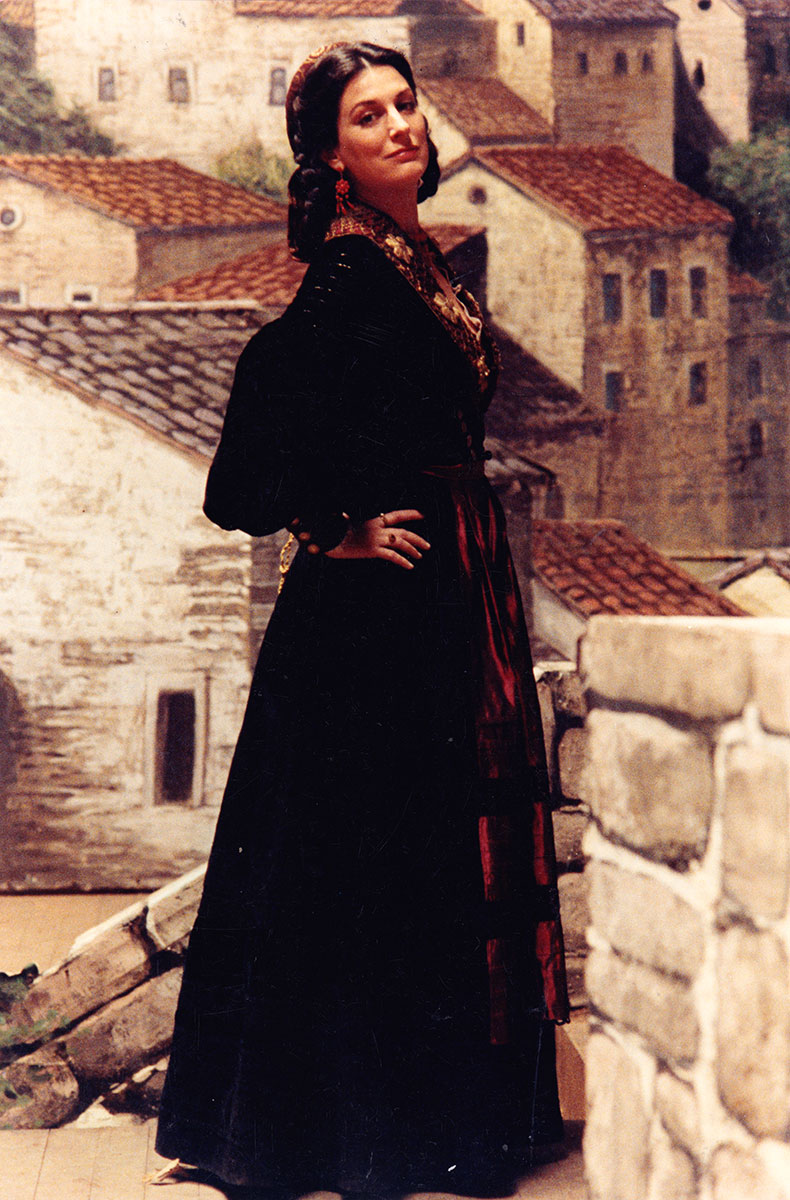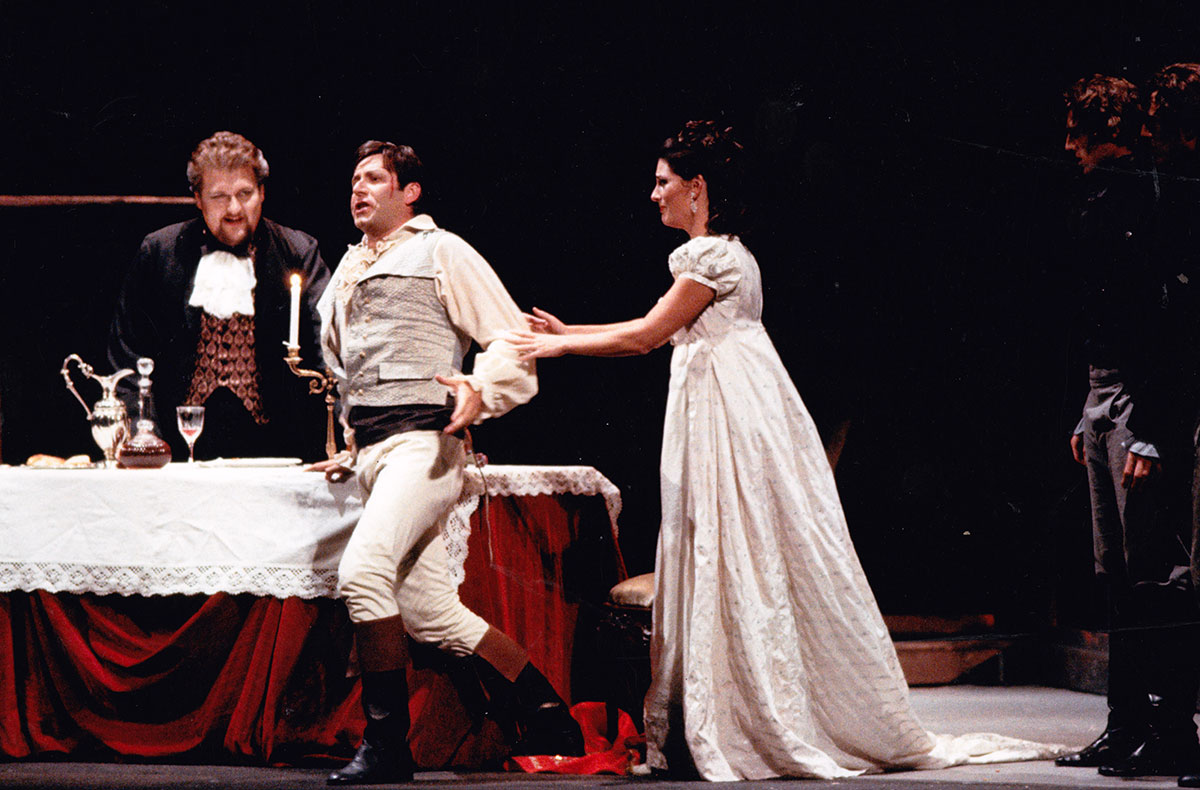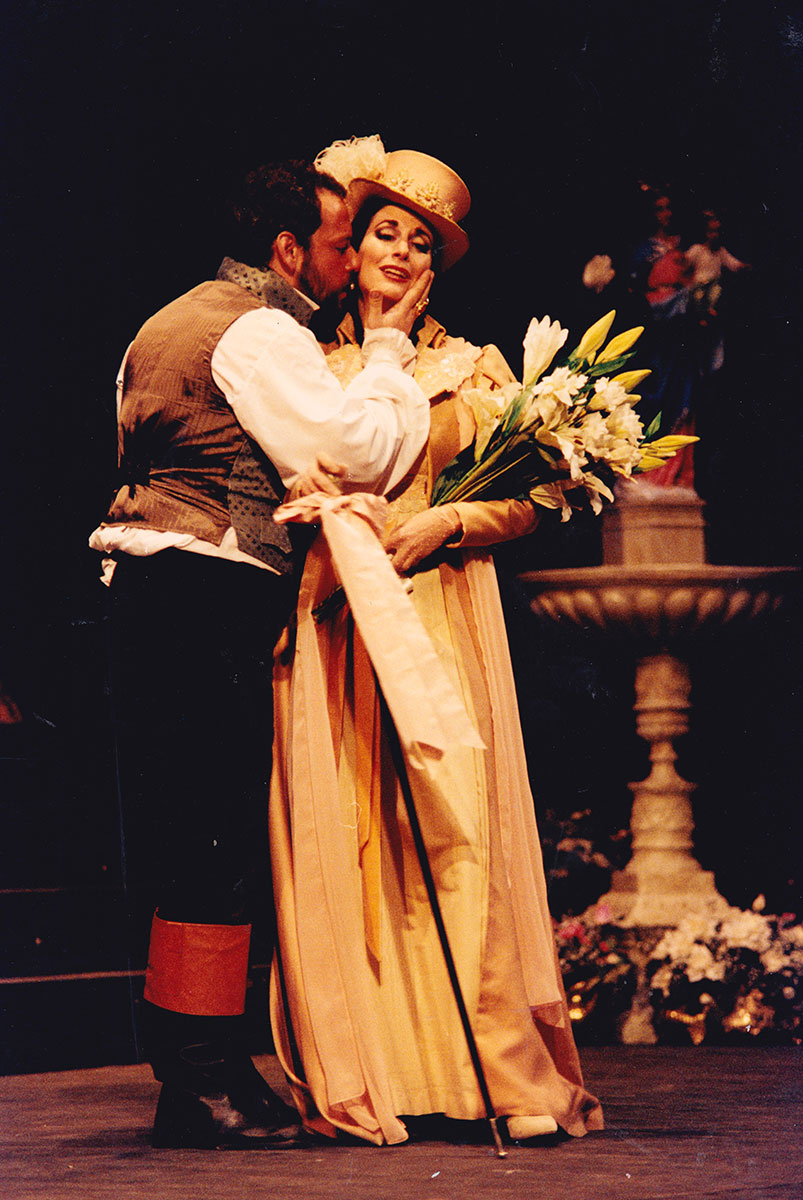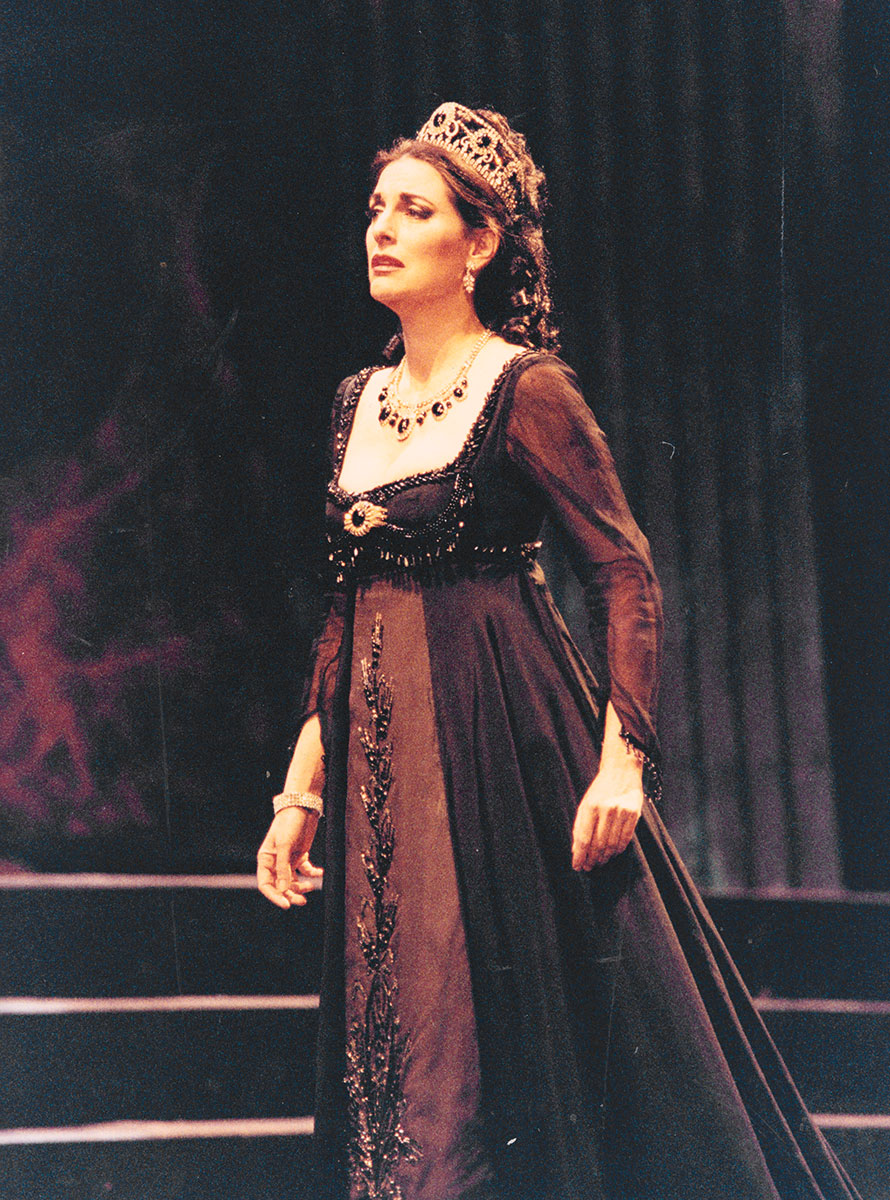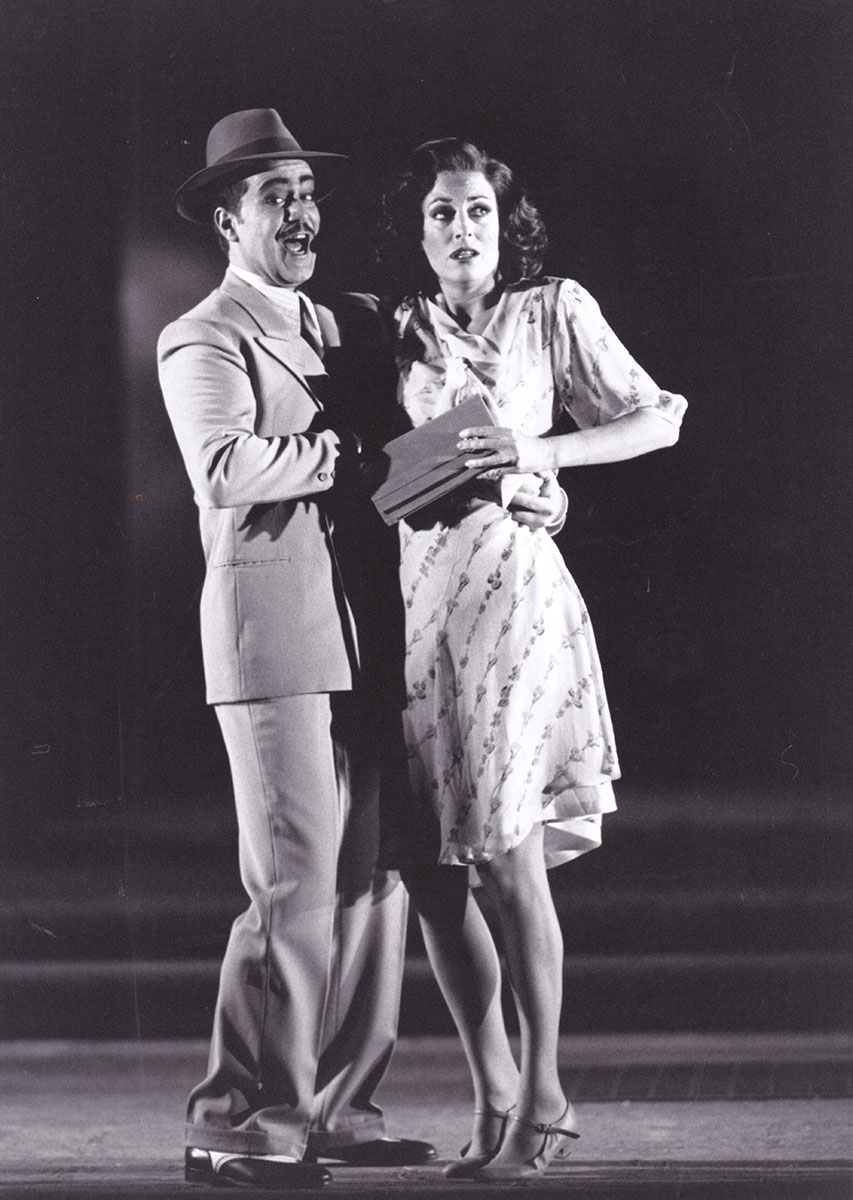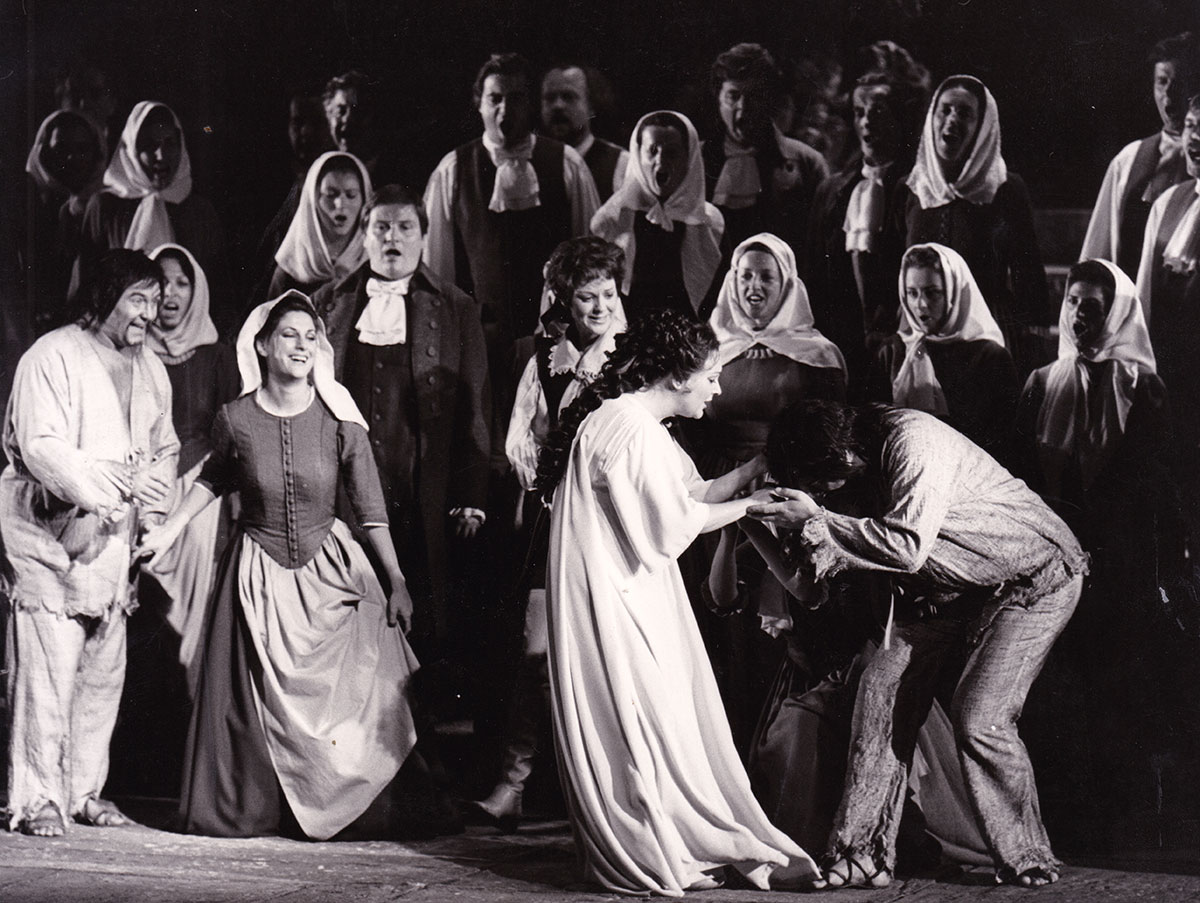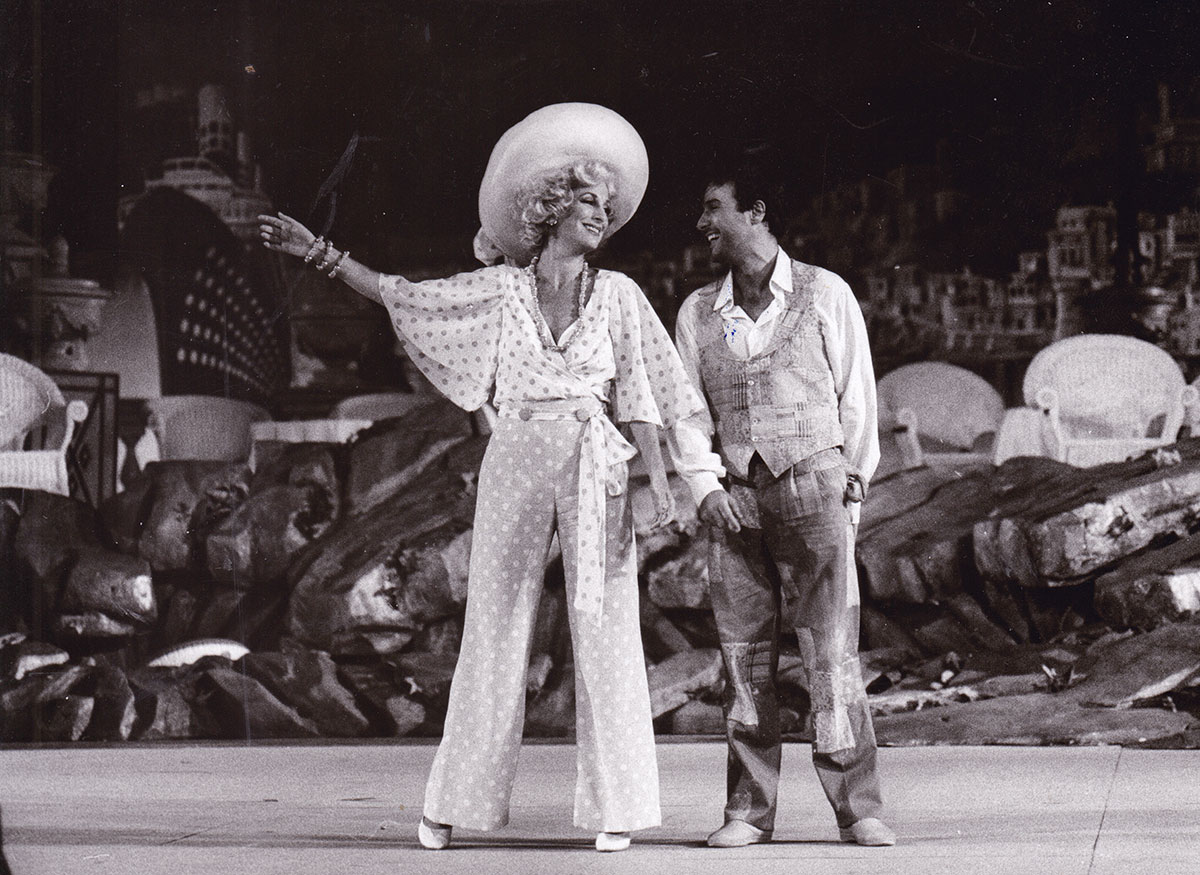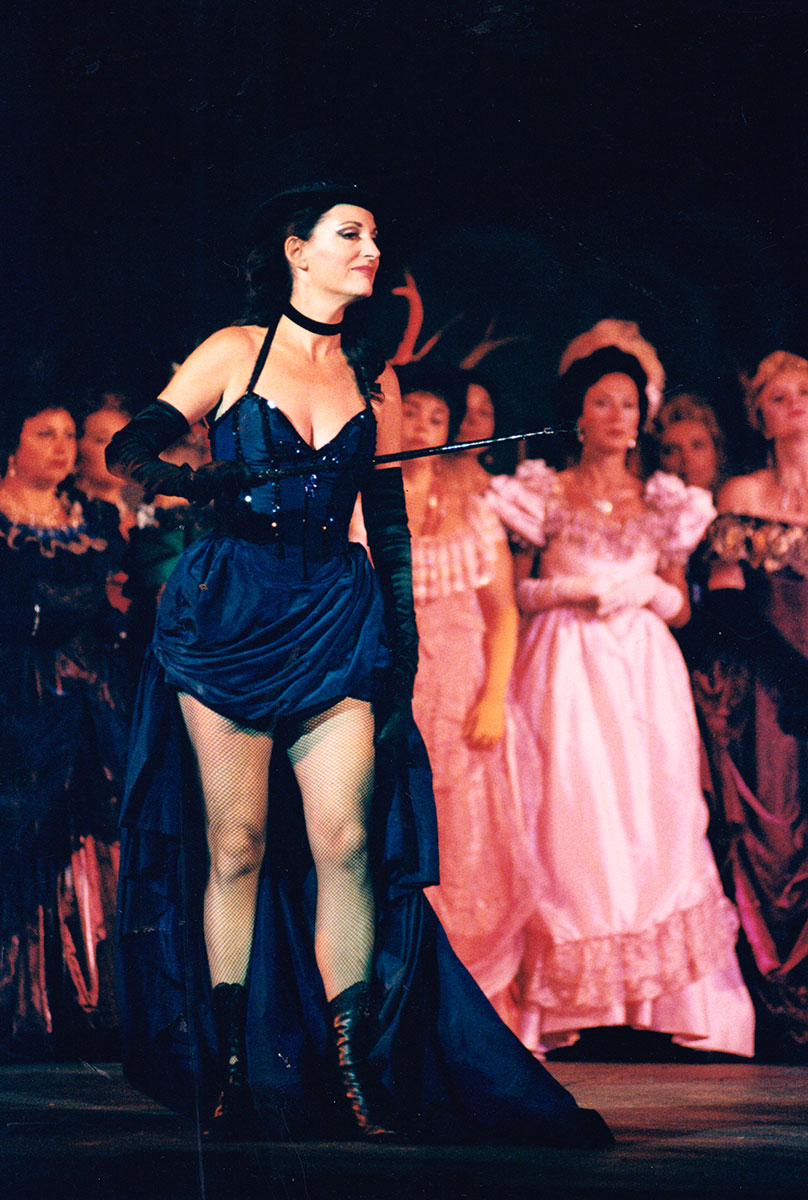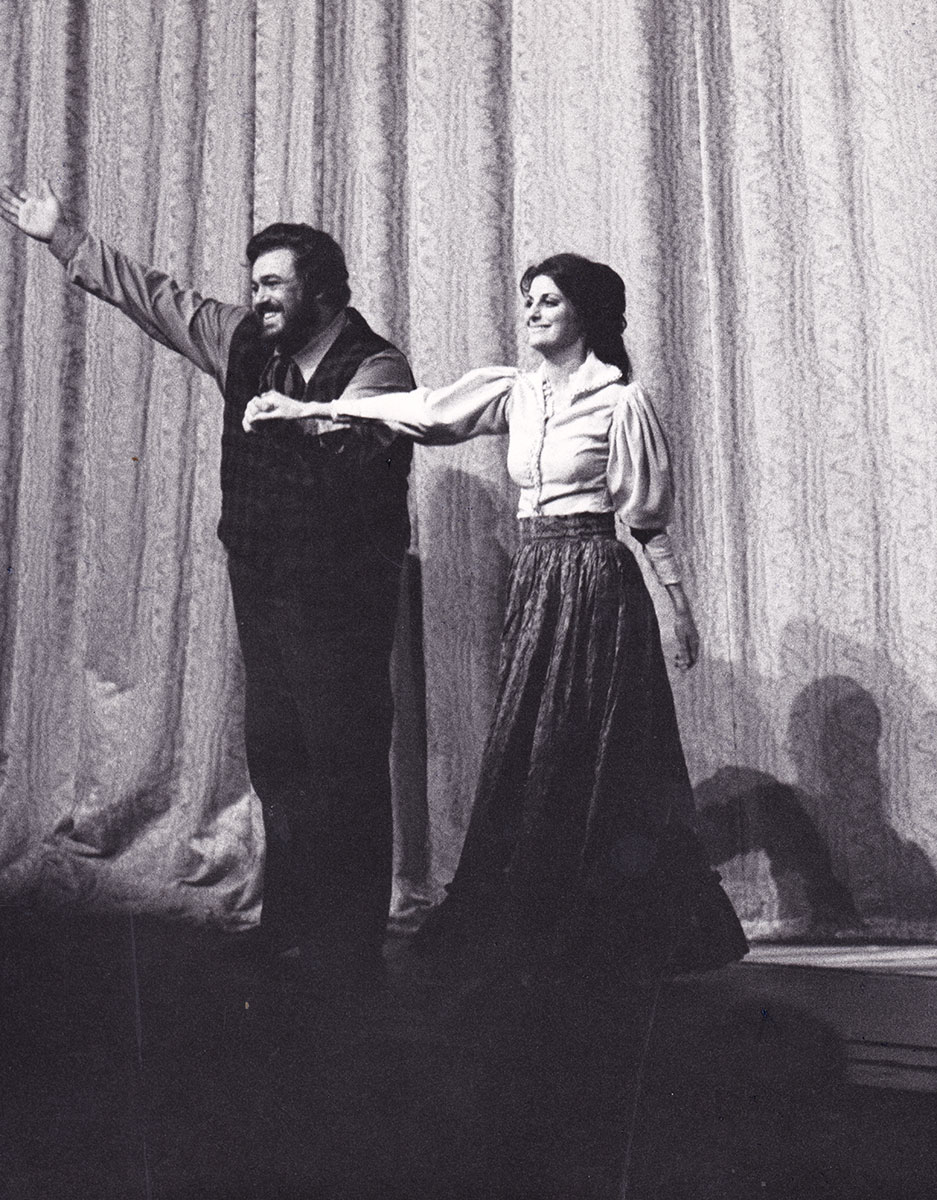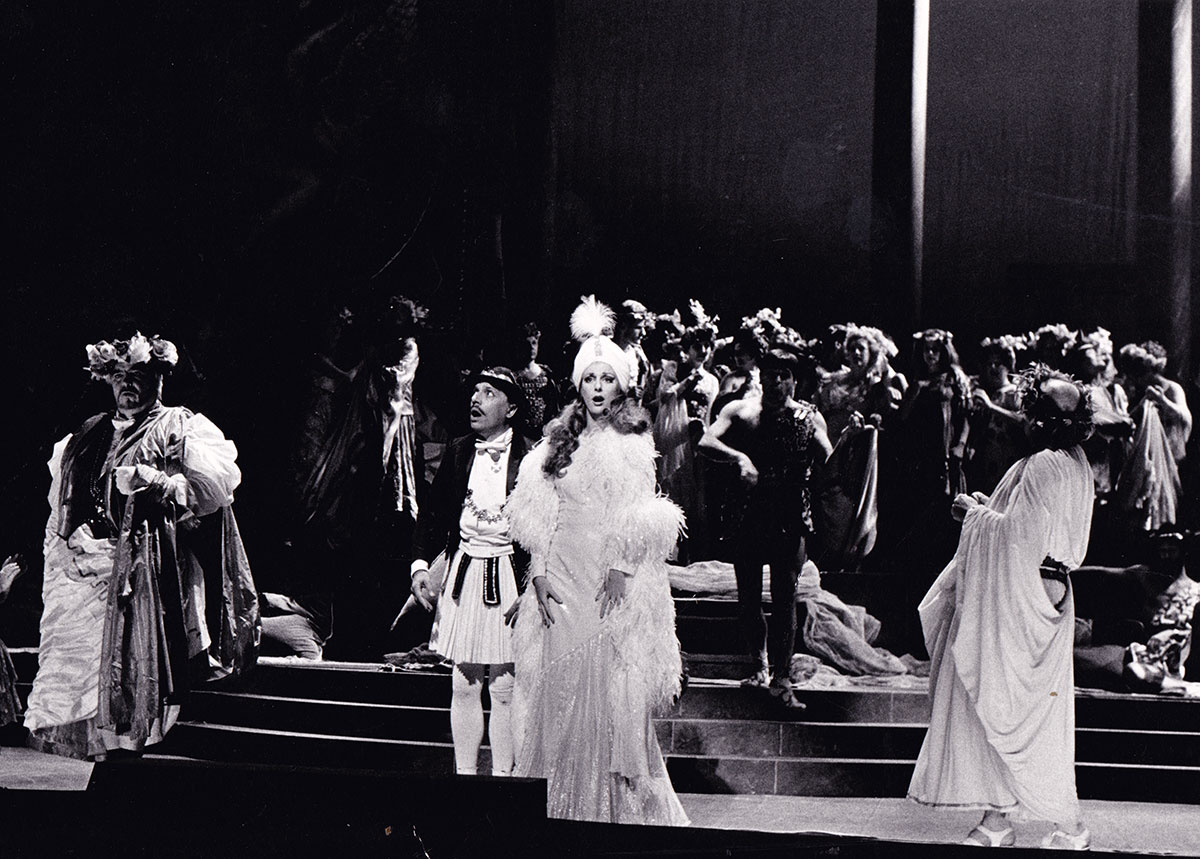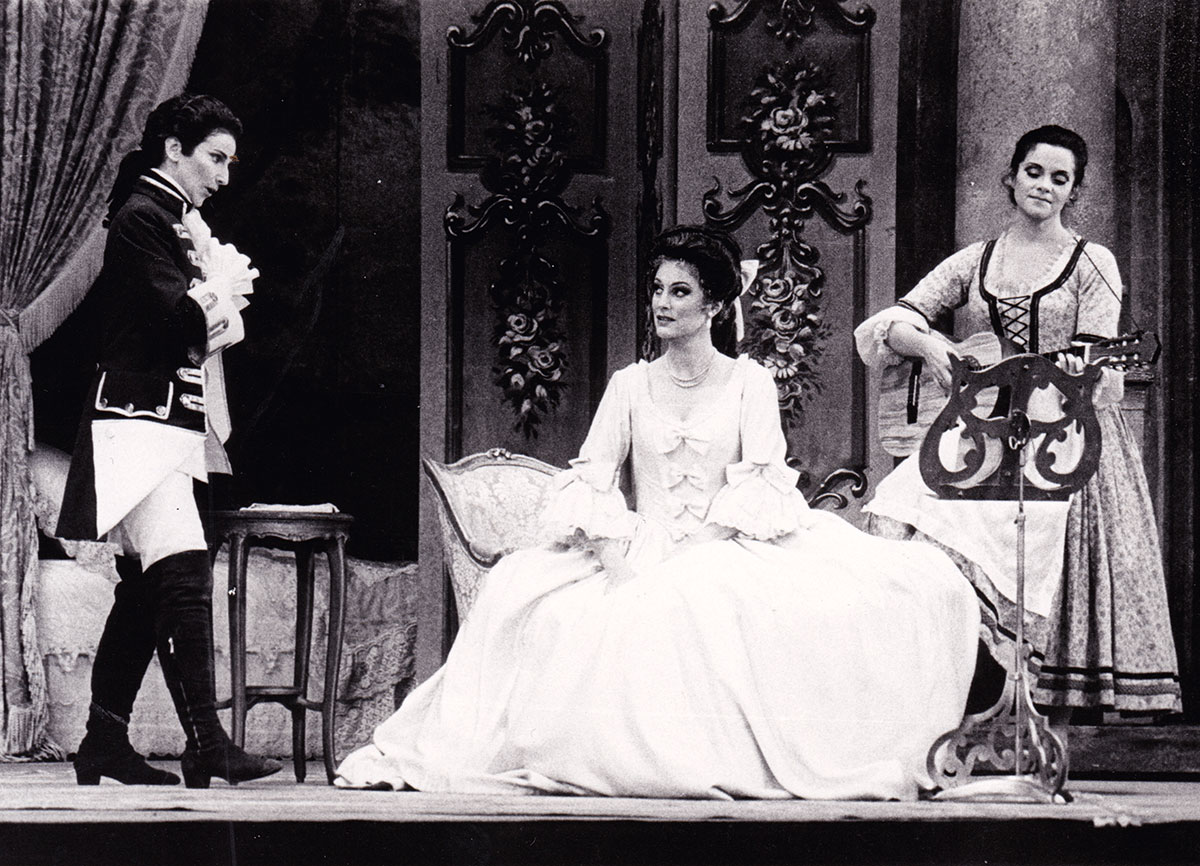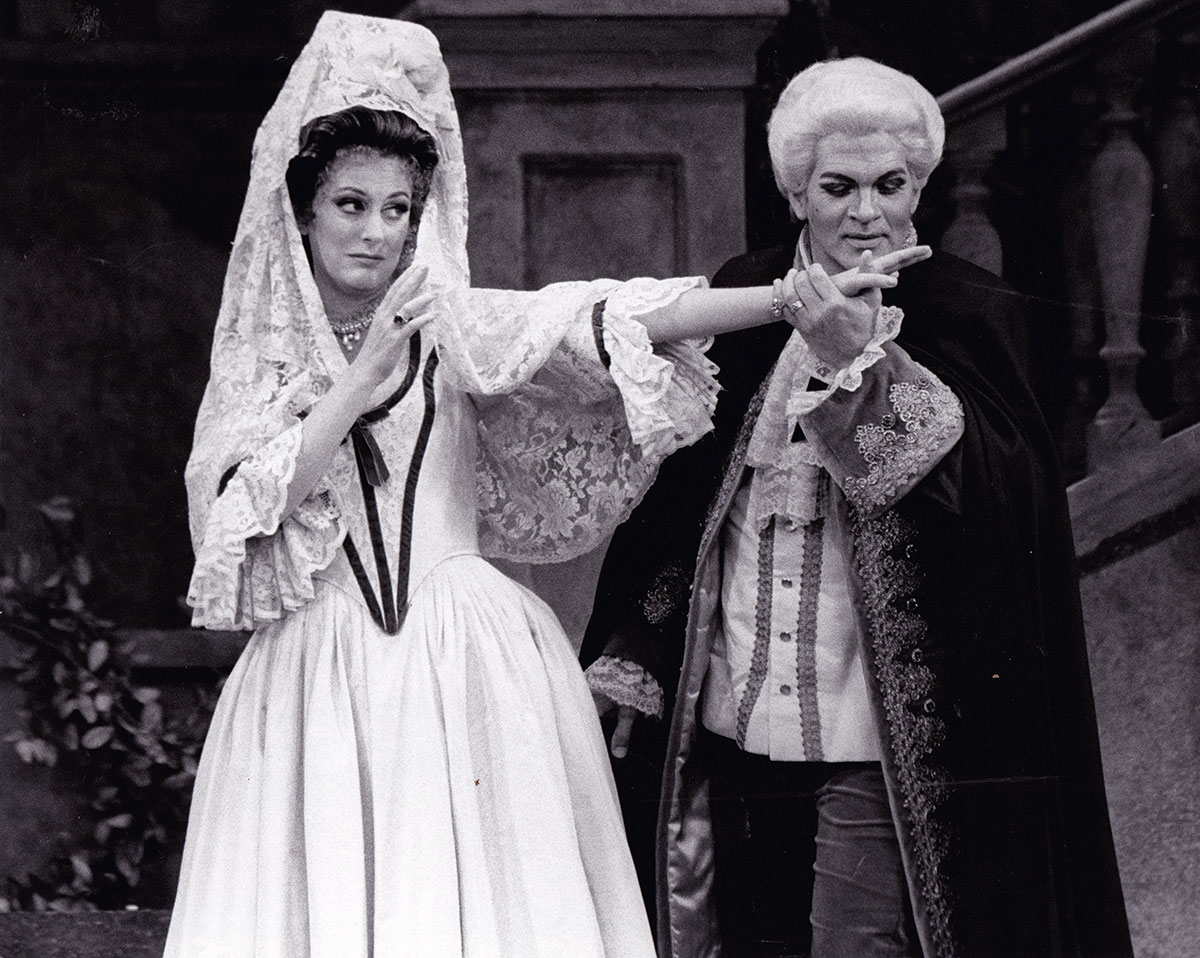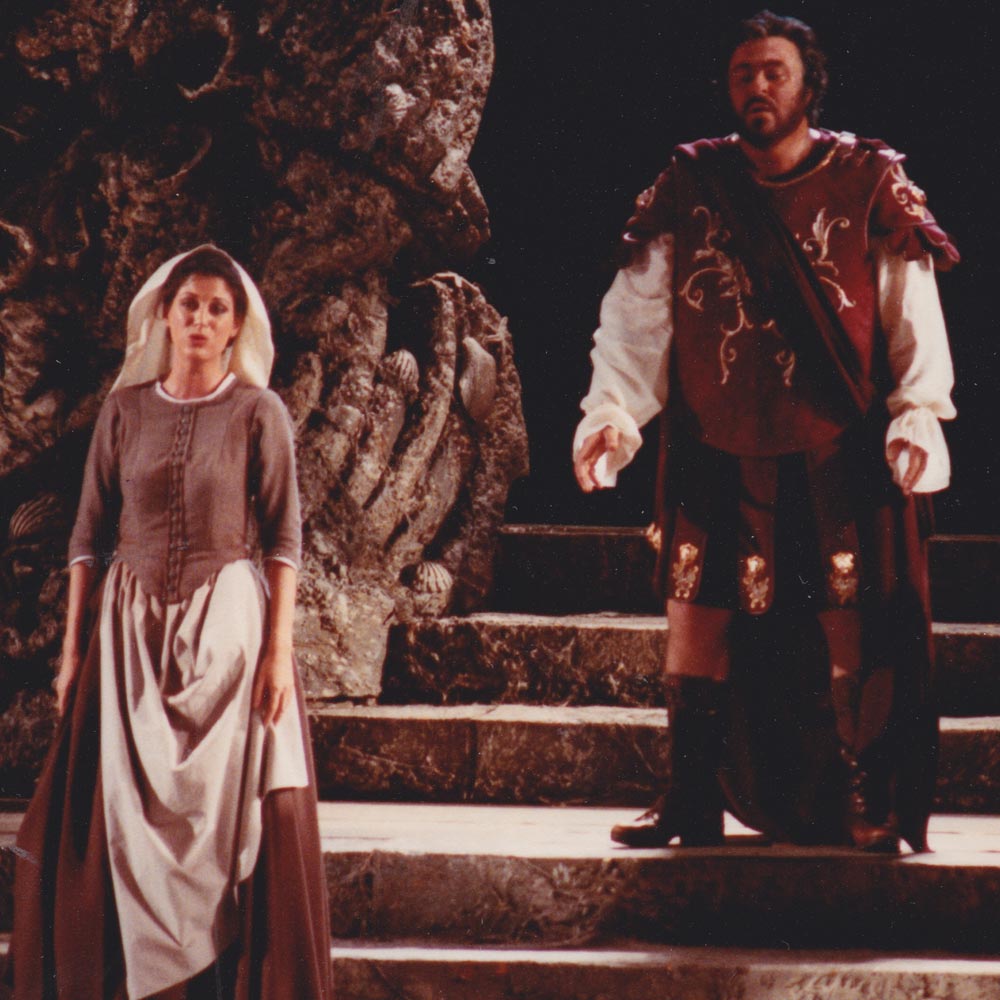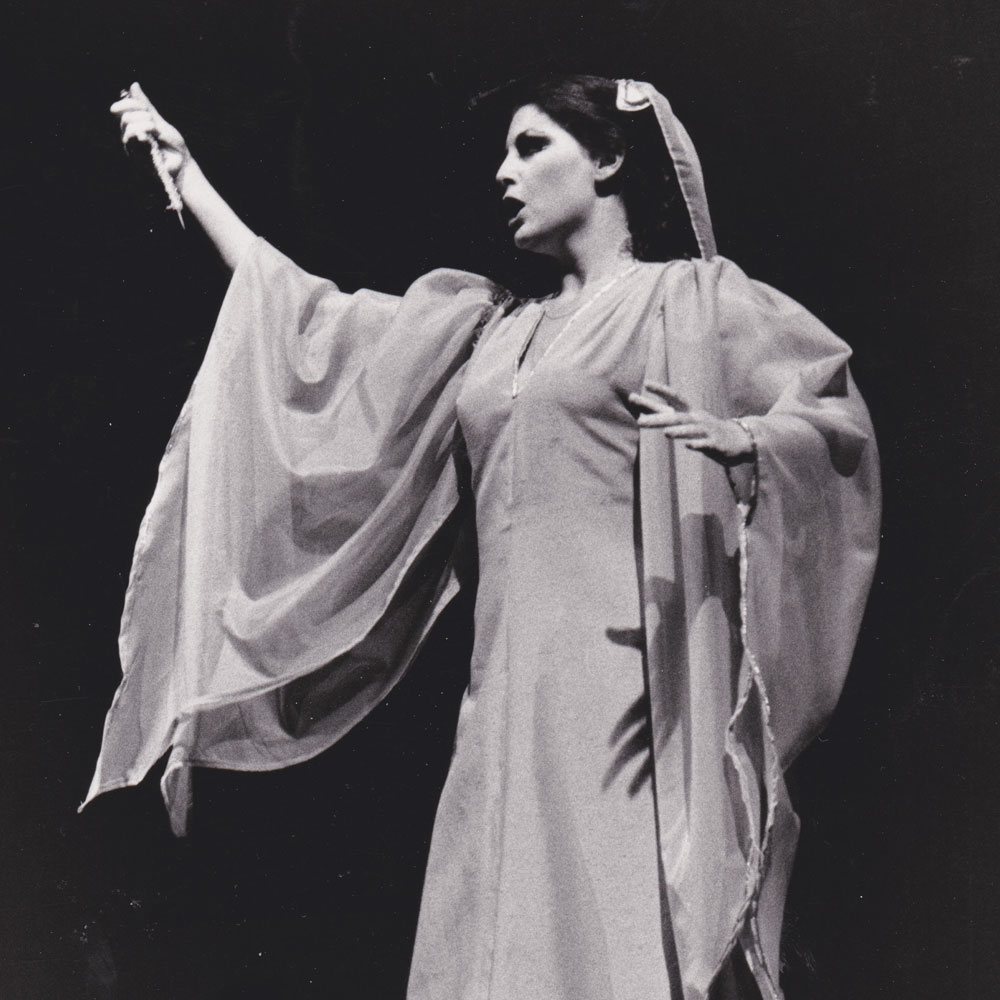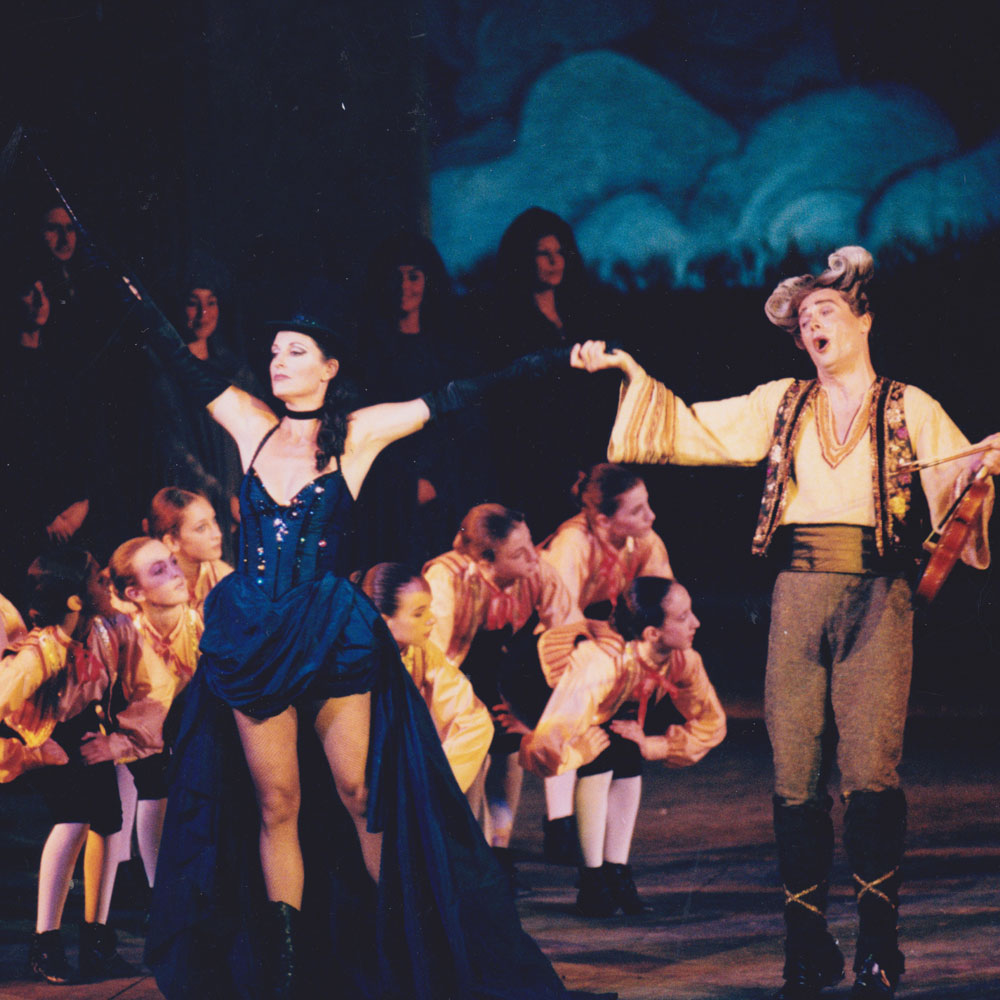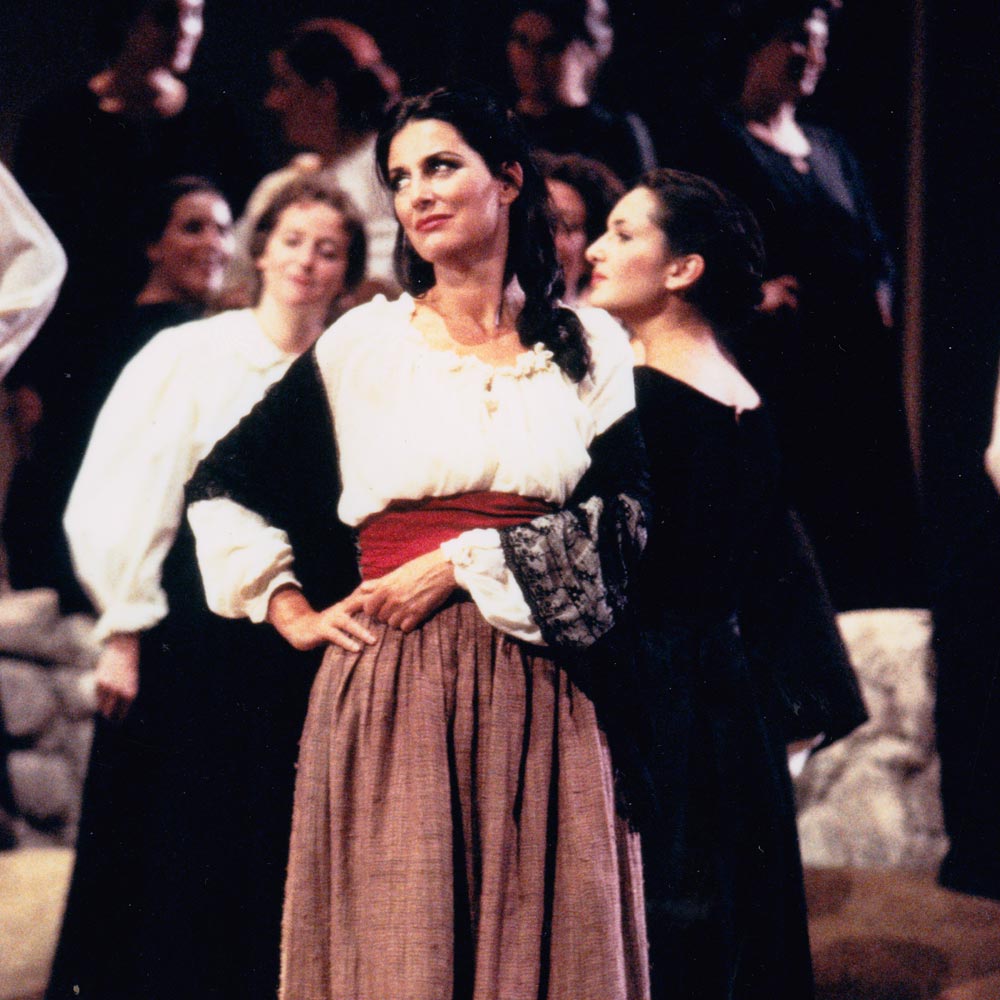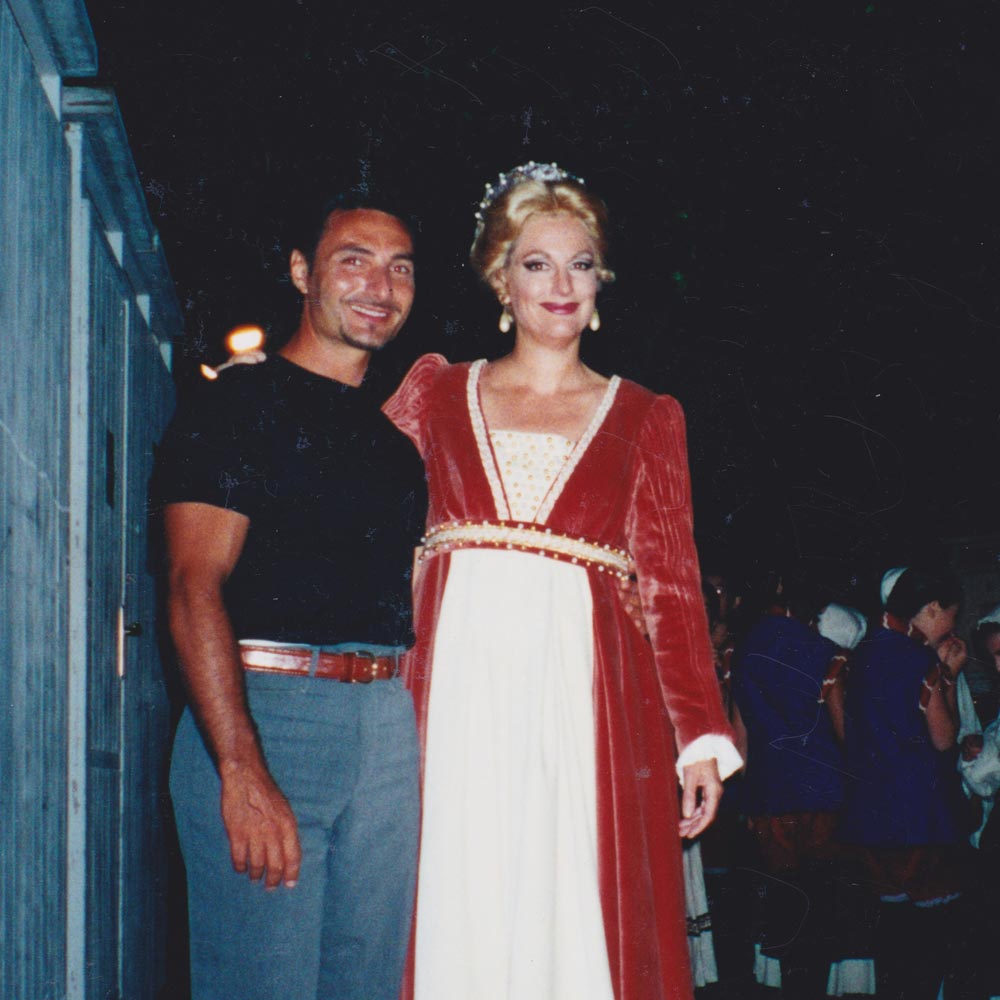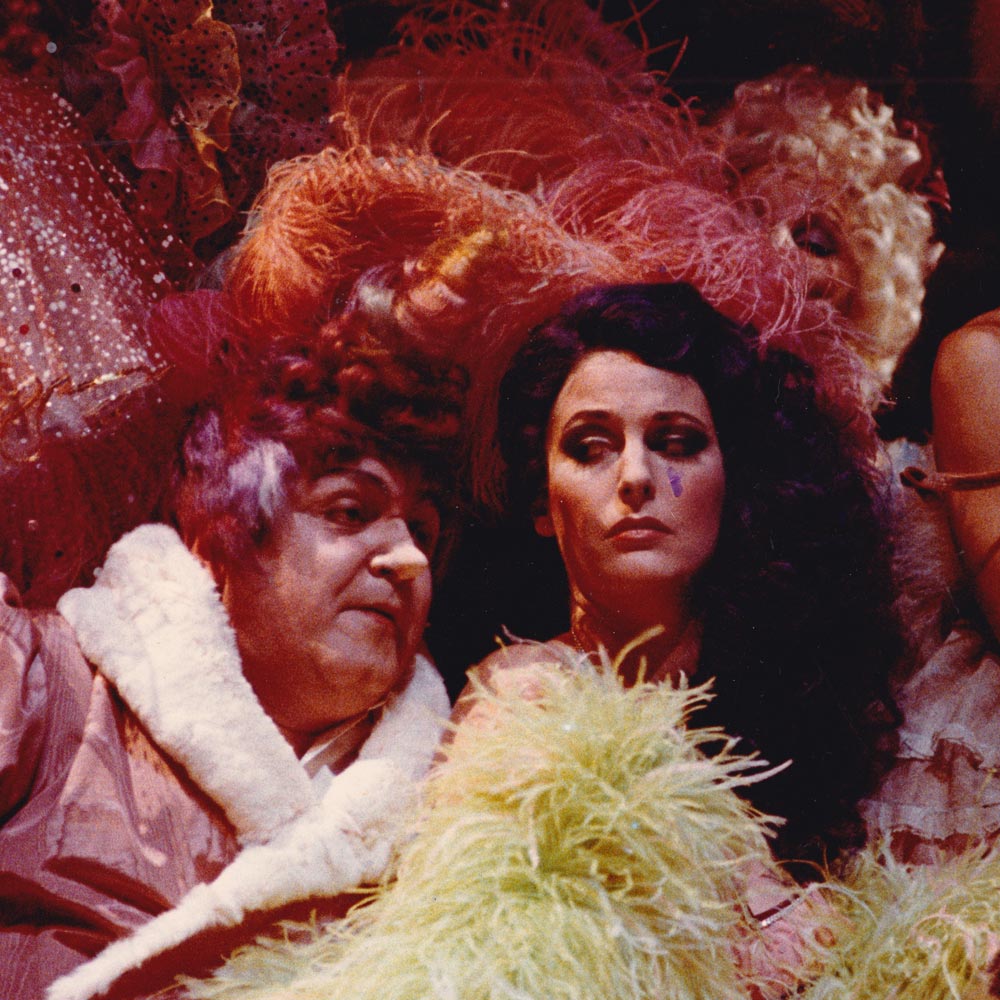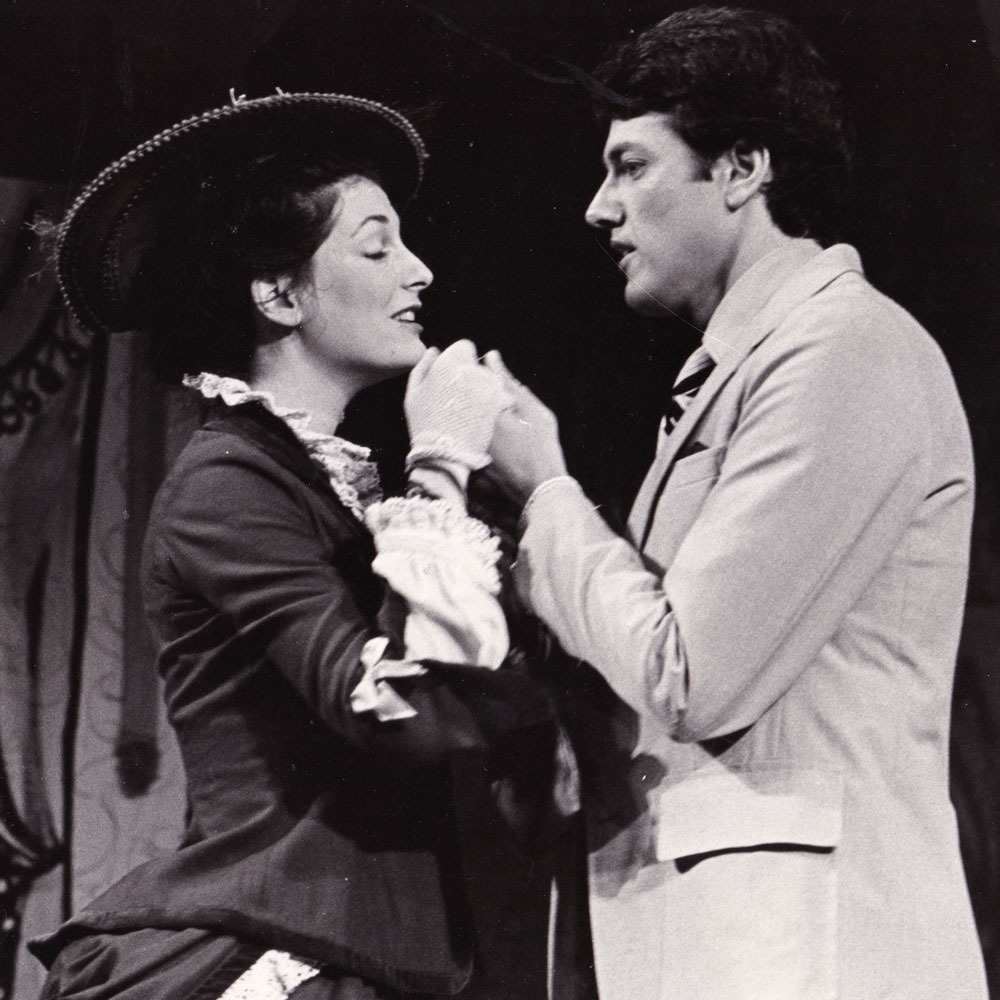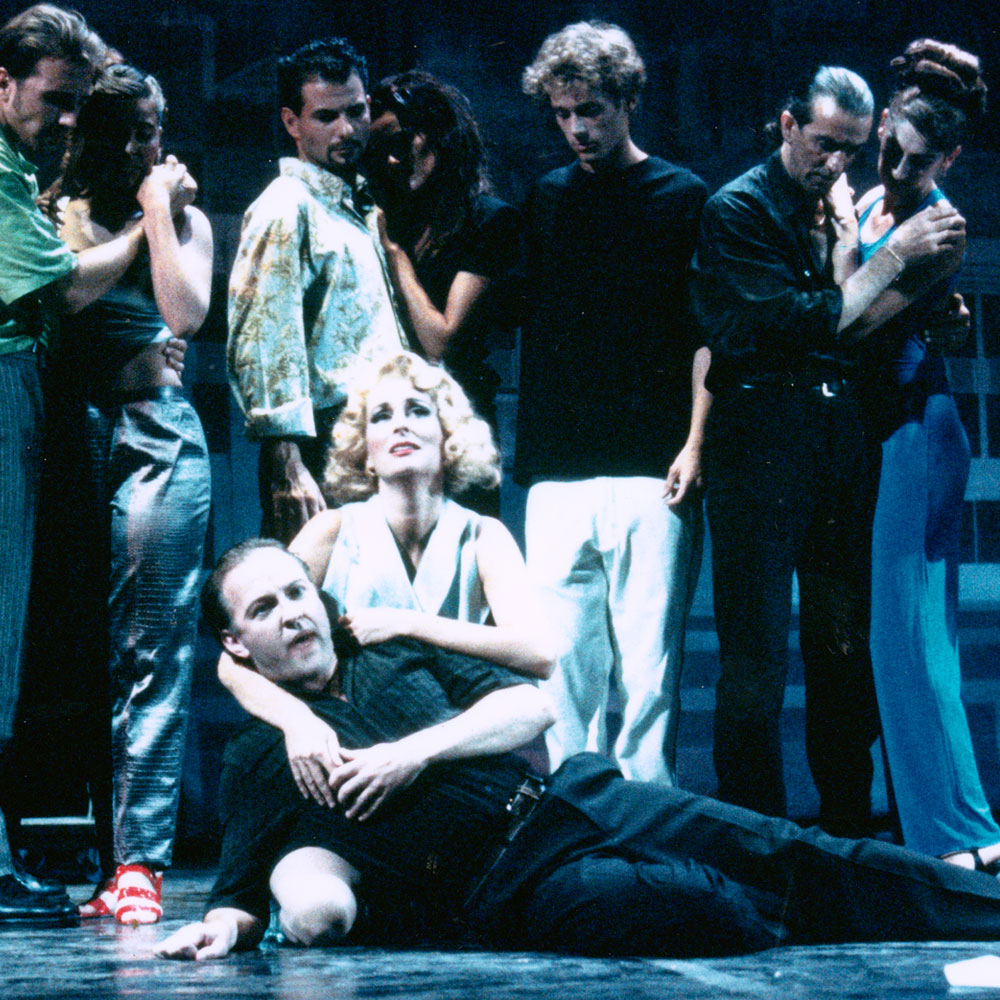“…the convincing and romantic Rose Maurrant by Madelyn Monti…”
Carmelo Di Gennaro – Il Sole 24 Ore
“… however we can not exempt ourselves from praising the excellent evidence offered by the fascinating Madelyn Monti, melancholically inspired in giving life, with expressive persuasiveness, to the protagonist character of Rose Maurrant…”
Alessandro Mormile – L’Opera Magazine
PHOTO GALLERY
SELECTED PRESS
“The revelation, in the strict sense of the word, is Madelyn Monti… Known as an operatic soprano, here she displays a series of qualities that almost no soprano, no matter how sublime, possesses. “Irony” is a synthetic term but is vague to define it. Let’s start with the premise that a chamber concert is not a fallback for her: she has an intense voice with a beautiful timbre which is vibrant and homogeneous throughout the range… It is a lesson. Monti does not resort to any “theatrical” tricks to overcome the vocal difficulties. She sings impeccably and with seductive timbres, always adding that extra something; an accent just a bit too emphatic or too sentimental, the perfect “wink” to the audience while expressing a cloudy or a fiery pathos, to underline the impartial nature of her role as interpreter, from the musical and poetic context of the piece. Needless to say, in all three languages, she boasts the perfect diction of a woman of the world. Has Edith Sitwell been reincarnated?”.
Paolo Isotta – Corriere della Sera
“A concert, originally performed in Turin for the season at the Lingotto Theatre, was offered at the Teatro Lirico to the Milanese public by the Banco San Paolo. Unable to count on the participation of the great Raina Kabaivanska, they found the person to whom she could pass on the torch. Perfectly tailored to soprano Madelyn Monti, the program was snobbishly understated consisting of pieces that are light or at least seem as if they are, all the way to the last encore, a fabulous waltz song.
Monti sings gathering her entire voice into one breath, almost creating the same timbre as the violins that double the melody, a characteristic that absorbs and transfigures the words. It is a rare example of musicality, breathing technique, phrasing and beauty of timbre.
One imagines that Monti’s technique and timbre are the result of years of study. Her ease at overcoming the obstacle of the passaggio of the voice attests to this fact. Programs that include a series of collected works, even if they are unified by a common thread, are dangerous for an artist. She must don the words as if she were wearing a dress and then immediately change into another. The same intimate ethos was apparent in Meine Lippen sie Kussen so heiss from Giuditta, another masterpiece by Franz Lehár.
But the beautiful Madelyn possesses, as everybody knows, a remarkable gift for comedy and irony, combined with a precise diction in at least five languages which is very rare.
This was already evident in The Entrance from The Merry Widow for which she also boasts the physique du role. She threw herself into Offenbach’s “Ah, que j’aime les militaires” from the The Grand Duchesse of Gerolstein and her voice sparkled like jewels in the Czardas from Strauss’s Die Fledermaus, as well as in the succession of gags in the aria from Offenbach’s La Perichole. The latter is a typical encore piece that is part of the “beauty case” of many famous sopranos, and many various and comic versions exist. Here it would seem that her acting skills prevail over her musical ones, but her rhythms, her musical hesitations, and her innate musicality are such that it allowed her to dictate the tempi to the conductor. The one who is led becomes the one who leads, like the young Caesar who was warmly greeted in Bithynia by King Nicomedes”.
Paolo Isotta – Corriera della Sera
“The American soprano Madelyn Renee, substituted Elena Mauti Nunziata in the role of Sulamid in Goldmark’s Regina di Saba at the Teatro Regio in Turin. The singer impressed us with her confident stage presence, combined with the physical attributes of a fashion model and her expressive face. Usually a full lyric soprano, she took on the impervious range of this impossibly difficult score, reaching the highest notes, veritable splinters of light, in an extremely natural way. In the delicate moments she brought to light tenderness and grace, exhibiting mischievous pianissimos and pleasant shadings to display an elegant and personal timbre.
Even though it is not a role that is perfectly suited to her vocal qualities, Madelyn Monti brilliantly passed the test, thanks to her vocal technique and strong temperament. Helped by Yuri Ahronovitch who required the orchestra to use all the colors and the cromaticisms of the score, the public warmly applauded the interpreters, especially Monti, who was called to the footlights many times by the conductor himself”.
Walter Baldasso – La Stampa
“Beautiful Madelyn Renée brought to life the capricious Musetta, singing the role in grand style and displaying a strong personality, also from an acting standpoint. The jealous Marcello was the incisive baritone Thomas Hampson. The penniless quartet of friends was completed by the excellent baritone Roberto Servile and the efficient bass, Armando Caforio as Colline, both winners of the Pavarotti Competition in Philadelphia.
The traditional stage direction by Giancarlo Menotti was refreshed by Robert Carsen”.
Christina Mai – L’Opera Magazine
“Madelyn … is endowed with musicality, intelligence, infallible taste. She even manages to touch keys of irony, which is rare in an opera singer. The difficult program included Vivaldi («Il mio sposo, il mio amore, la mia speranza», she sang in the opening), Schubert, Debussy, Duparc and a nice rundown of Italian salon romances: Mascagni, Leoncavallo, Respighi, Davico, Catalani. Much applause and three encores“.
M. C. – La Repubblica
“Madelyn Monti portrays Giulietta with crafty seduction.”
Marlis Fichtner – Welt am Sonntag
“As the courtesan, Giulietta, Madelyn Monti sings flattering cantilenas and is seductive to look at.”
Hans Hubert Schieffer – Rheinische Post
“More focused on the cool principle of seduction, the Giulietta of Madelyn Monti, whose vocals were mixed with some tones of sensual temptation, provided the highlights…”
Hans G. Schürmann – Bonner Anzeigenblatt
“the one who easily takes up this challenge, is Madelyn Renée: mature beauty, elegant silhouette, her Musetta, whose singing is fruity and at first insolent, later adopts Mimi’s humility; her ‘conversion’, so right, is deeply touching.”
Bernard Grange – Journal de Génève
“If nucci is masculine Nucci, Madelyn Monti is extremely feminine with the splendor of her voice…”
Francesco Maria Colombo – Avvenire
“Seductive debut for the spicy Alice by Madelyn Monti who perfectly guided the delicate quartet of
the wives …”
Angelo Foletto – La Repubblica
“…the cast that ranged from a fiery, vocally opulent Elvira of Madelyn Monti…”
Robert Finn – Opera News
“…a smooth, dark timbre and a touching characterization.”
Allan Kozinn – The New York Times
“Madelyn Monti’s Countess Almaviva contrasts nicely with Susanna. Monti sings with reserved opulence, the seamless silk of her voice conveys her suffering, her diginity. It’s an exquisite performance.”
Steve Barnes – Post Star, New York
“Madelyn Monti was fine as the Countess, getting the most applause of the evening for an exquisitely phrased and poignant “Porgi amor” at the opening of Act II.
Ron Emery – Albany Times Union
“Monti, a splendid voice, sang ‘Vissi d’arte’ from Tosca, and a thoughtful, convincing ‘Ritorna vincitor’ from Aida, but the audience embraced her most ardently after a song from Giuditta, Lehar’s final operetta and a work that essentially brought to a close the operetta form. Among the duets was a wonderful rarity from Mascagni’s Amico Fritz. Most amazing of all for the unexpected freshness of it, was Pavarotti’s and Monti’s performance of the final scene from La Boheme Act I.”
Kenneth La Fave – The Arizona Republic
“as is also the case with the magnificent and charming singer, up until now unknown in France, the american soprano Madelyn Monti… the beautiful bostonian who has performed Tosca in major theatres, has a deliciously dramatic soprano voice, not only displayed in the “Vissi d’arte” which she delivers with tragic remorse, but in all the facets of this woman, at times jealous, frivolous and passionate and in the end desperate. if the tessitura is immense (but less forceful in the lower range) the color of the voice is magical, the vocal runs, the generous high notes and the sensual phrasing make her “divissima”.
Michel Huvet – Le Bien Public
“Madelyn Monti is a splendidly feminine protagonist who used her soprano voice and pleasant dark timbre without reserve to produce a greater characterization of the role.”
Eva Pleus – L’Opera Magazine
“In her debut as tosca, Madelyn Monti demonstrated that she understood the character, which she took on with her strong vocality. Monti possesses good technique and good intensity, homogeneous throughout her range and in the messe di voce.”
Roberto Del Nista – L’Opera Magazine
“…a delicate but at the same time incisive Madelyn Monti has created a sincere and truthful Santuzza”.
Loris Castrista – L’Opera Magazine
“…both aristocrats had remarkable stage presence; Madelyn Renée was imposing and charming as the Marquise de Berkenfield…”
Carmelita Celi – La Sicilia
“Madelyn Renee, in the role of the Marquise de Berkenfield, immediately displayed her vocal gifts in the cavatina, “Pour une femme de mon nom” where her clear vocal line, simplicity and above all, clear diction brought to the fore the charm and the humanity of the character.”
Giovanni Pasqualino – Bellini news
“In the ‘cameo’ role of the Marquise de Berkenfield, American soprano Madelyn Renée was exhilarating and her French diction was perfect. She even conceded a “trunk aria”, “J’aime les militaries” from Offenbach’s La Grand Duchesse de Gerolstein.”
Andrea Merli – Impiccione viaggiatore
“Sure of herself in the part of the Marquise, American soprano Madelyn Renée, like Osborn, boasts decades of a successful artistic career.”
Francesco Giordano globusmagazine
“Alongside a “sacred monster” the likes of Osborne, the rest of the cast gave its best; from Madelyn Renée (the Marquise of Berkenfield) to Luca Galli (Sulpice); to Francesco Palmieri (Hortensius) and Ernesto Tomasini, at ease in the transvestite role of the Duchess of Krakenthorp.”
Dario Miozzi – www.rivistamusica.com
“Madelyn Renée was a charming Marquise de Berkenfield…”
Silvana La Porta – Sicilymag
“Madelyn Renée – Marquise de Berkenfield had the best French diction on the stage”,
Natalia Di Bartolo – operaeopera
